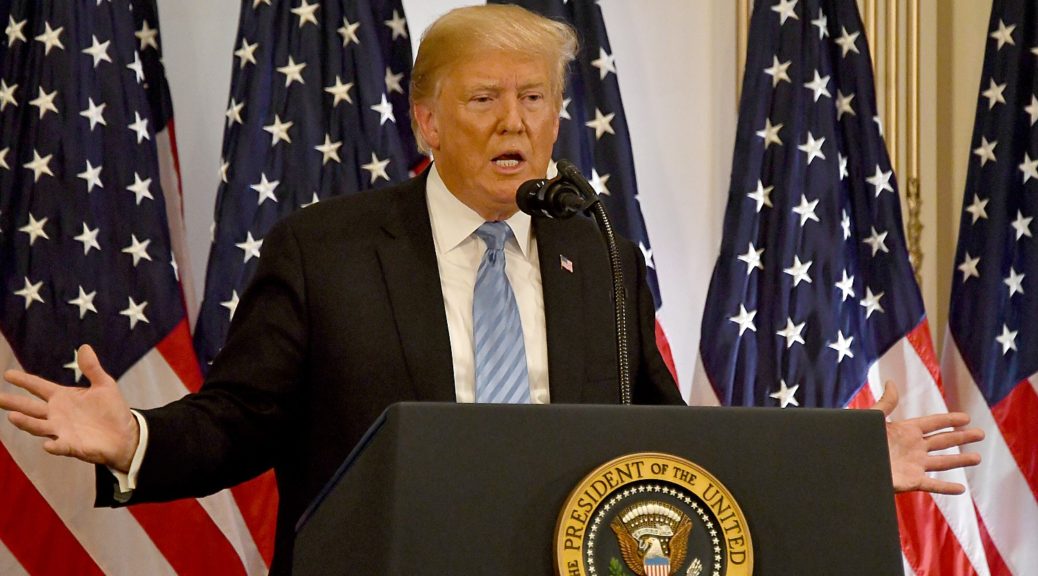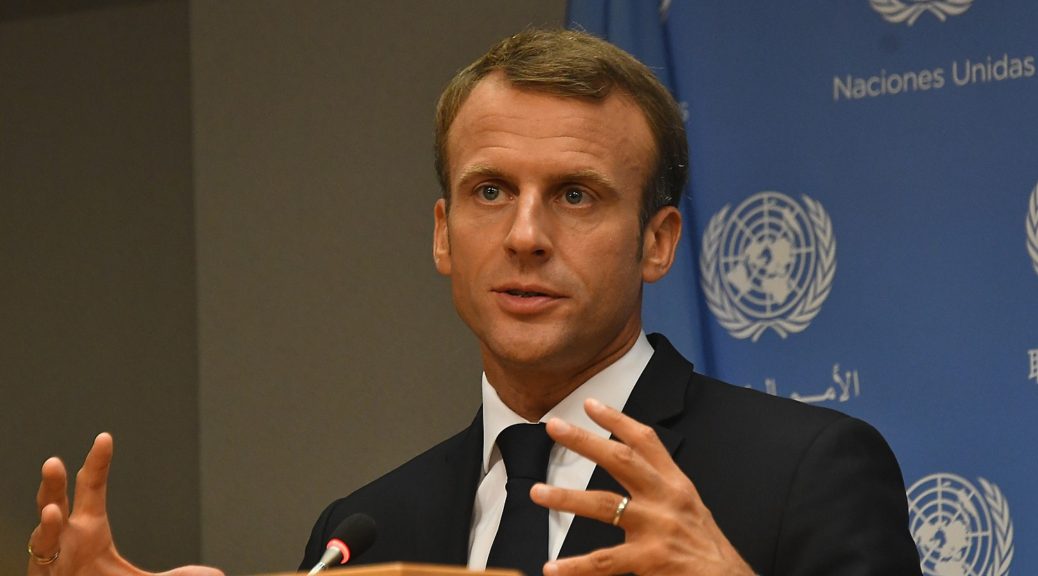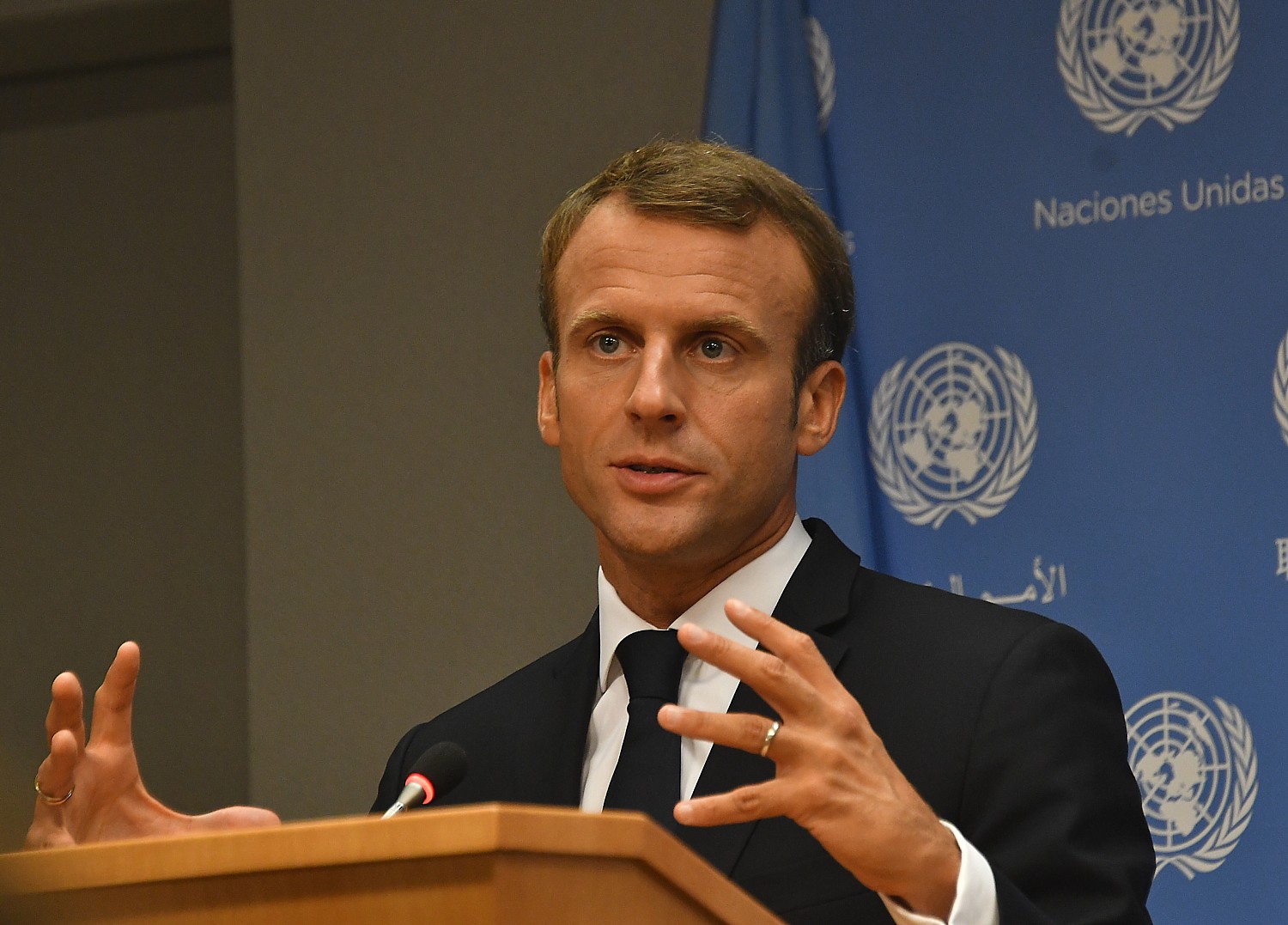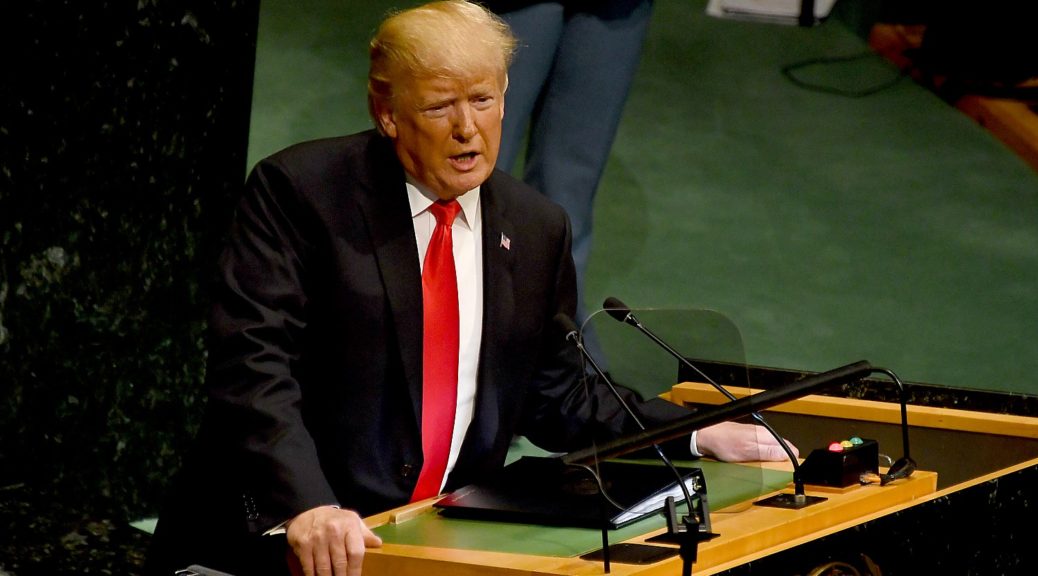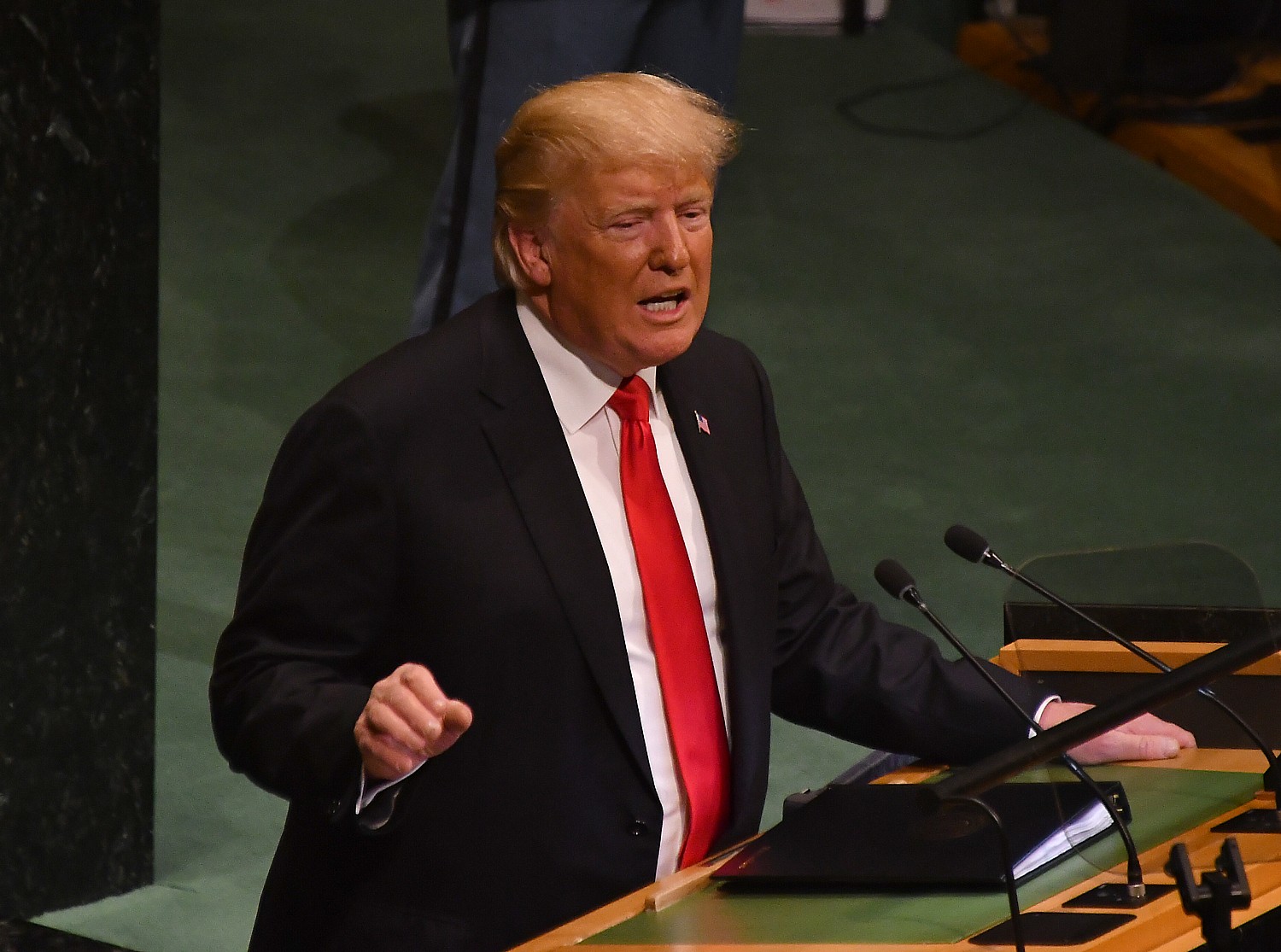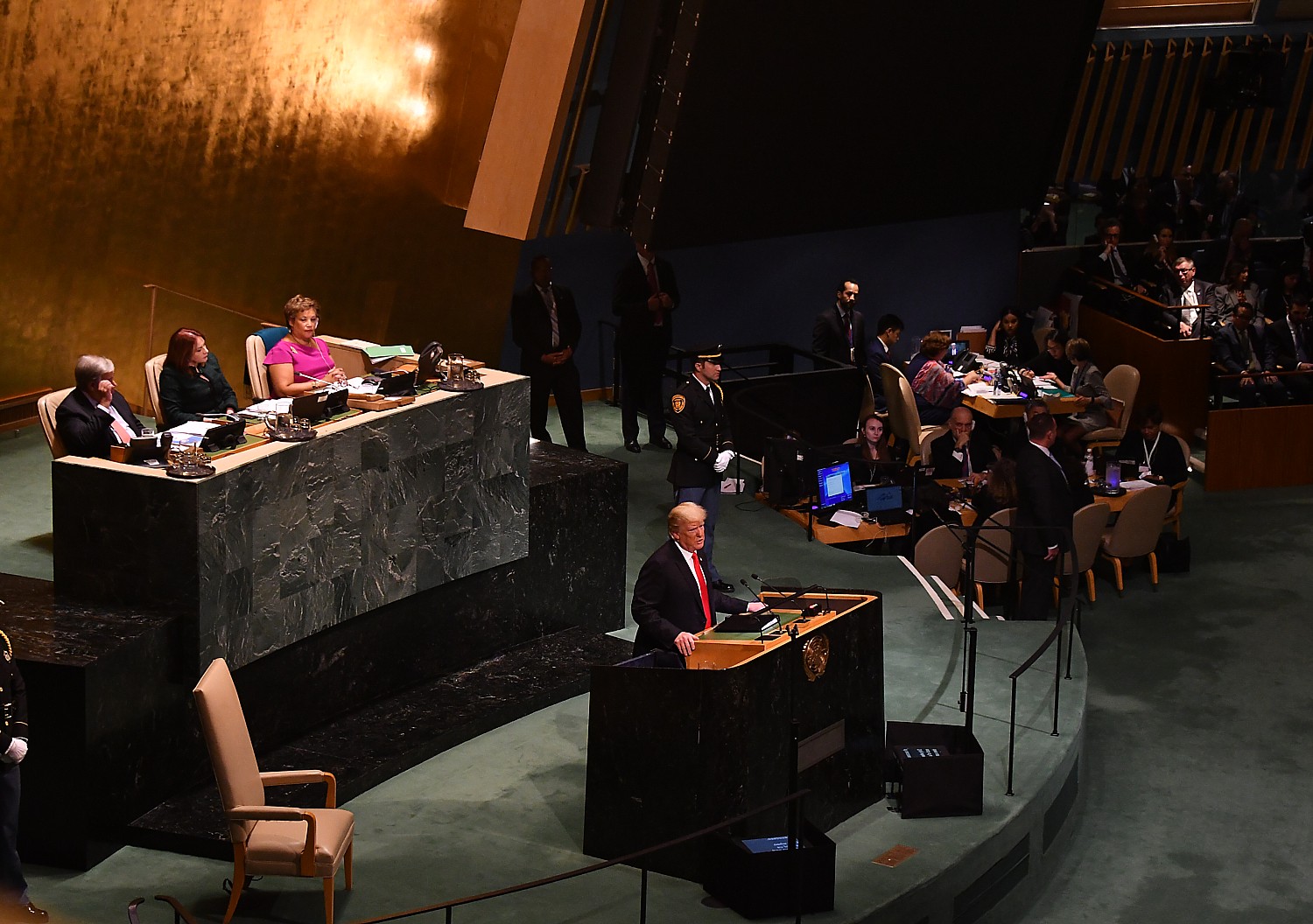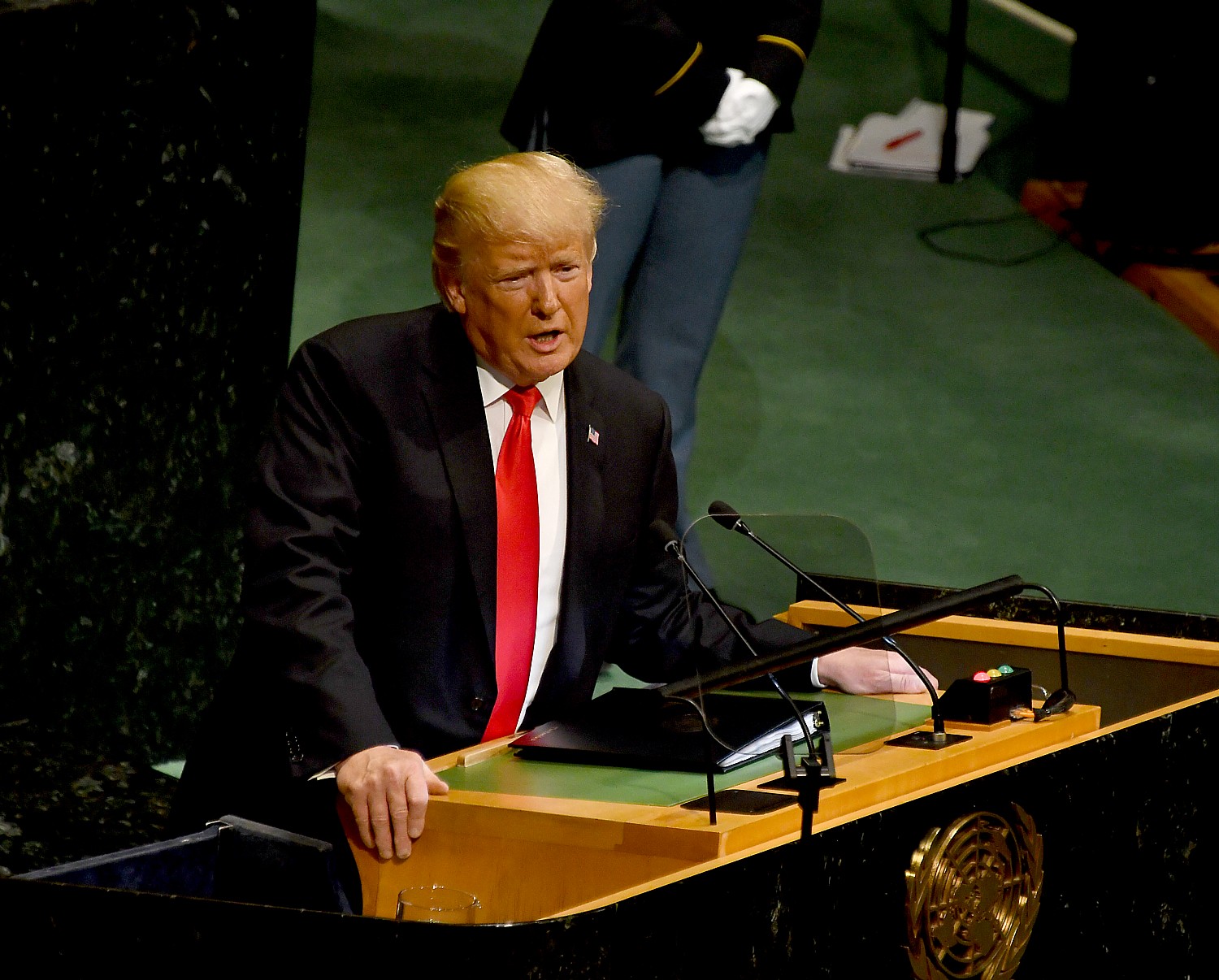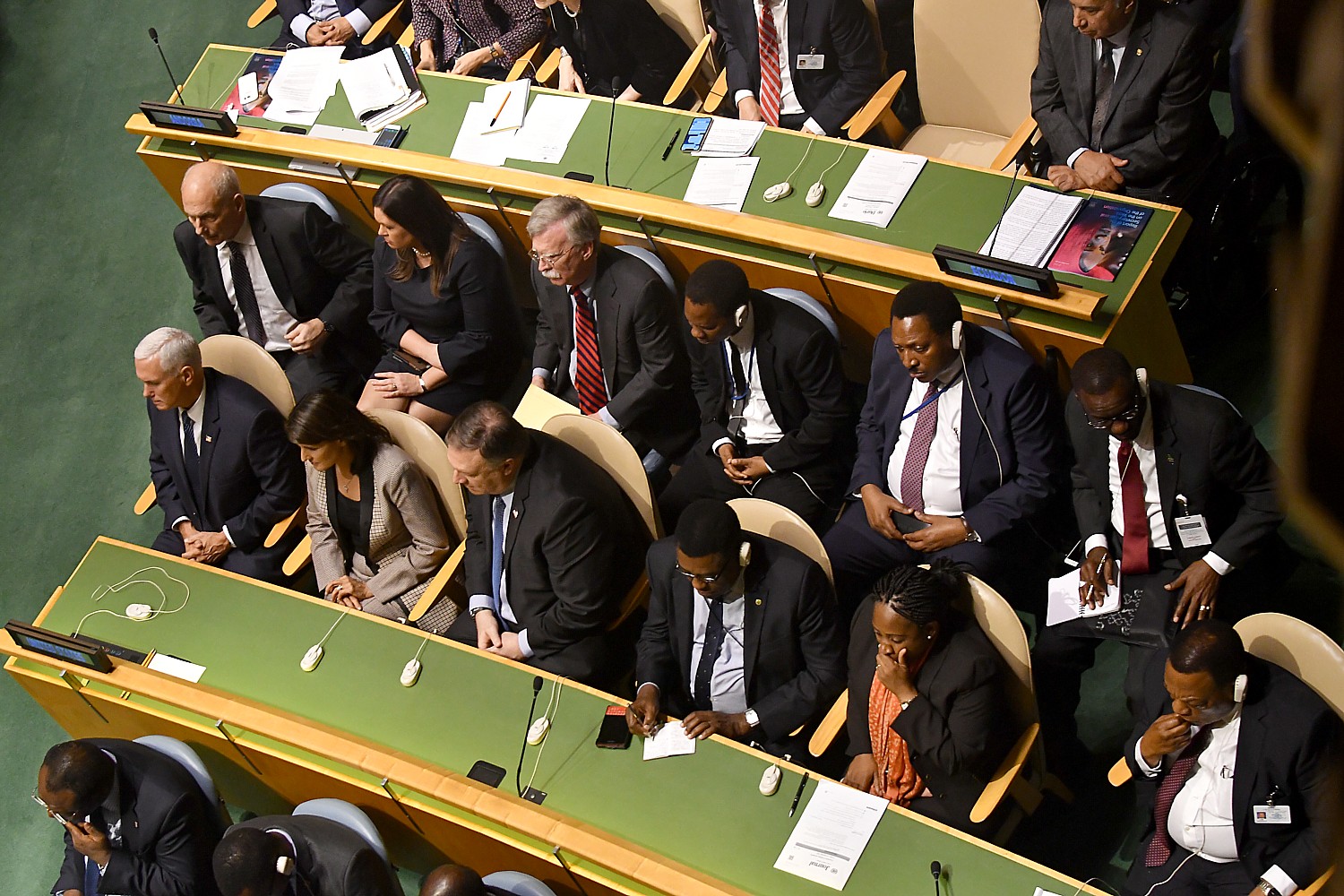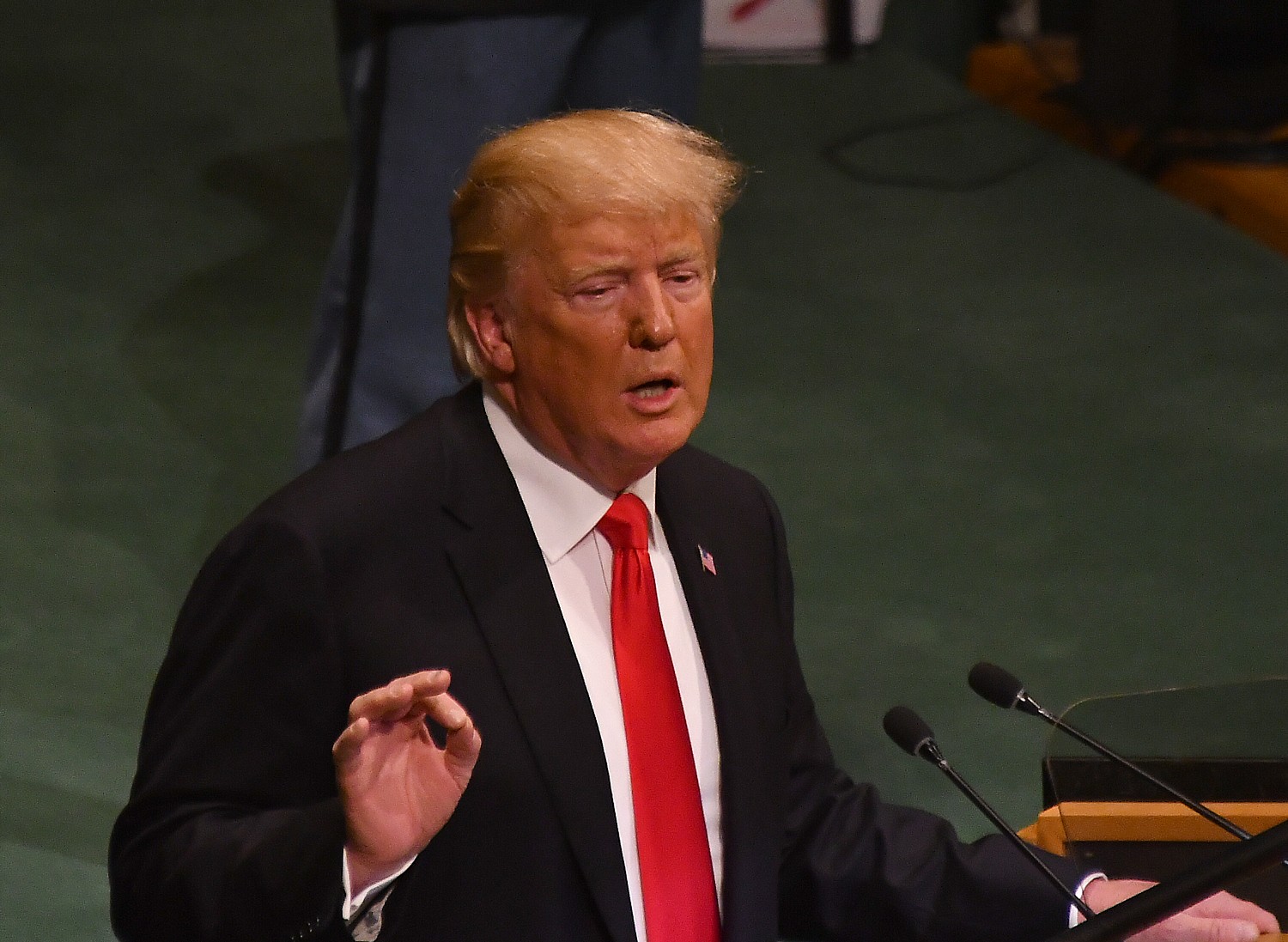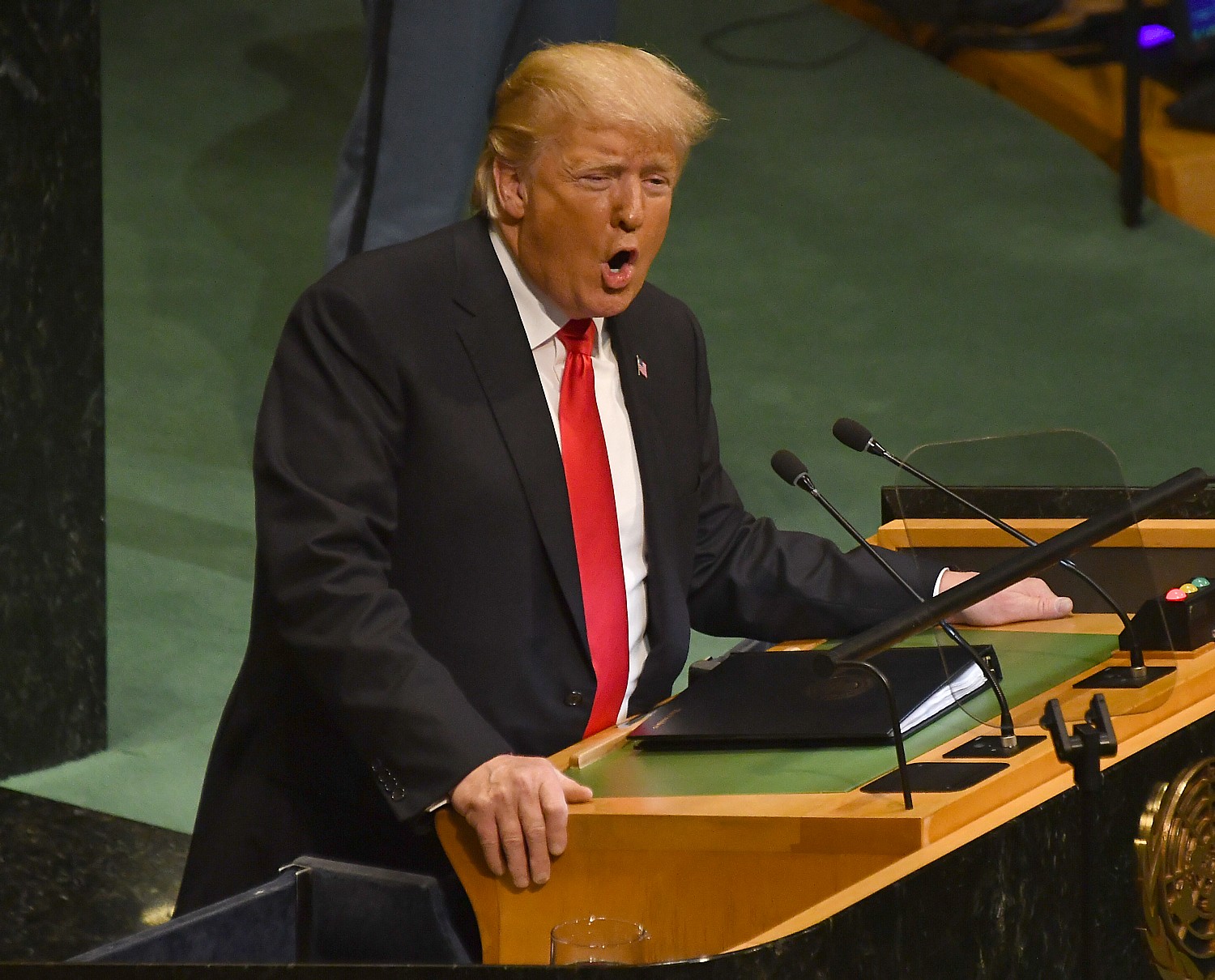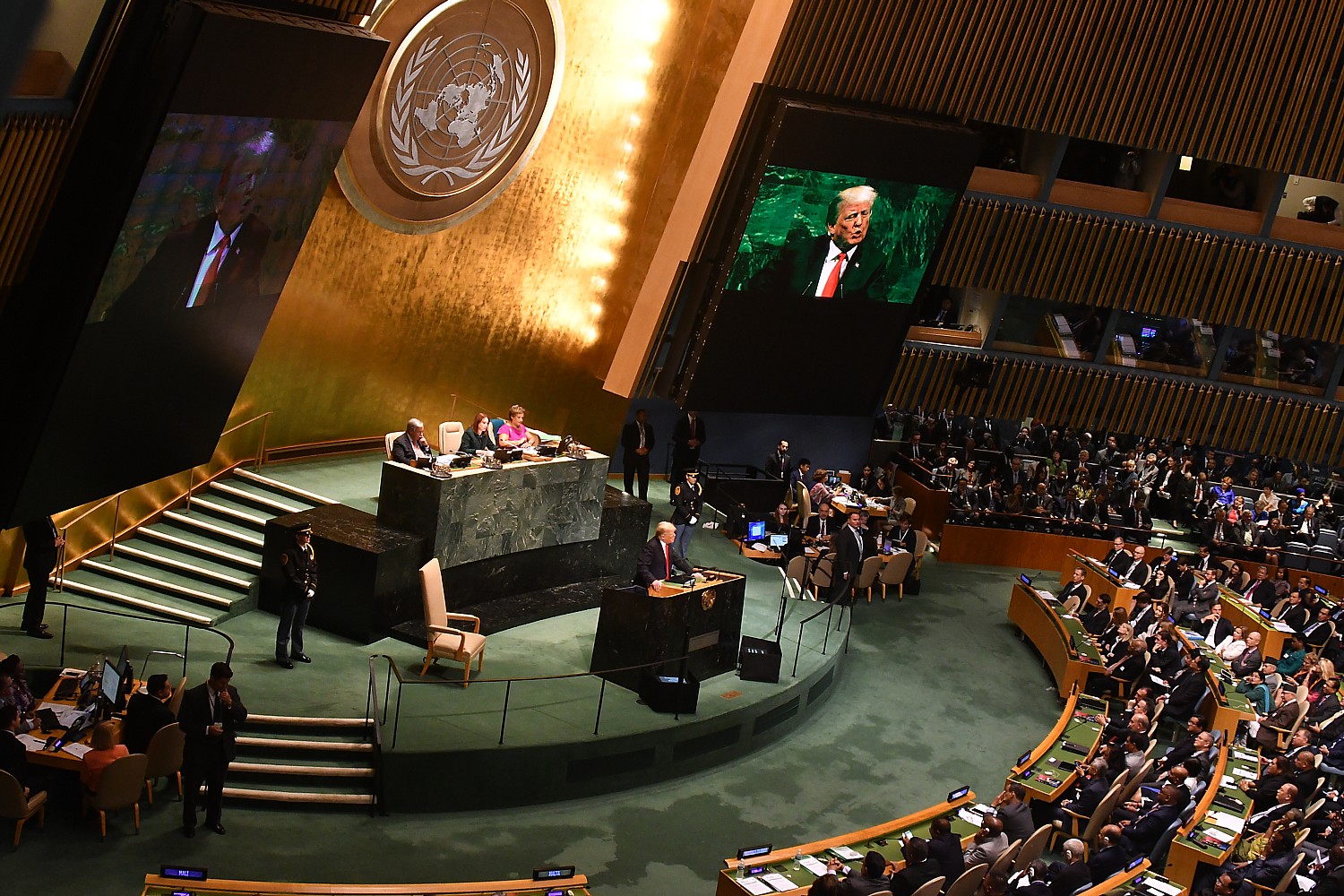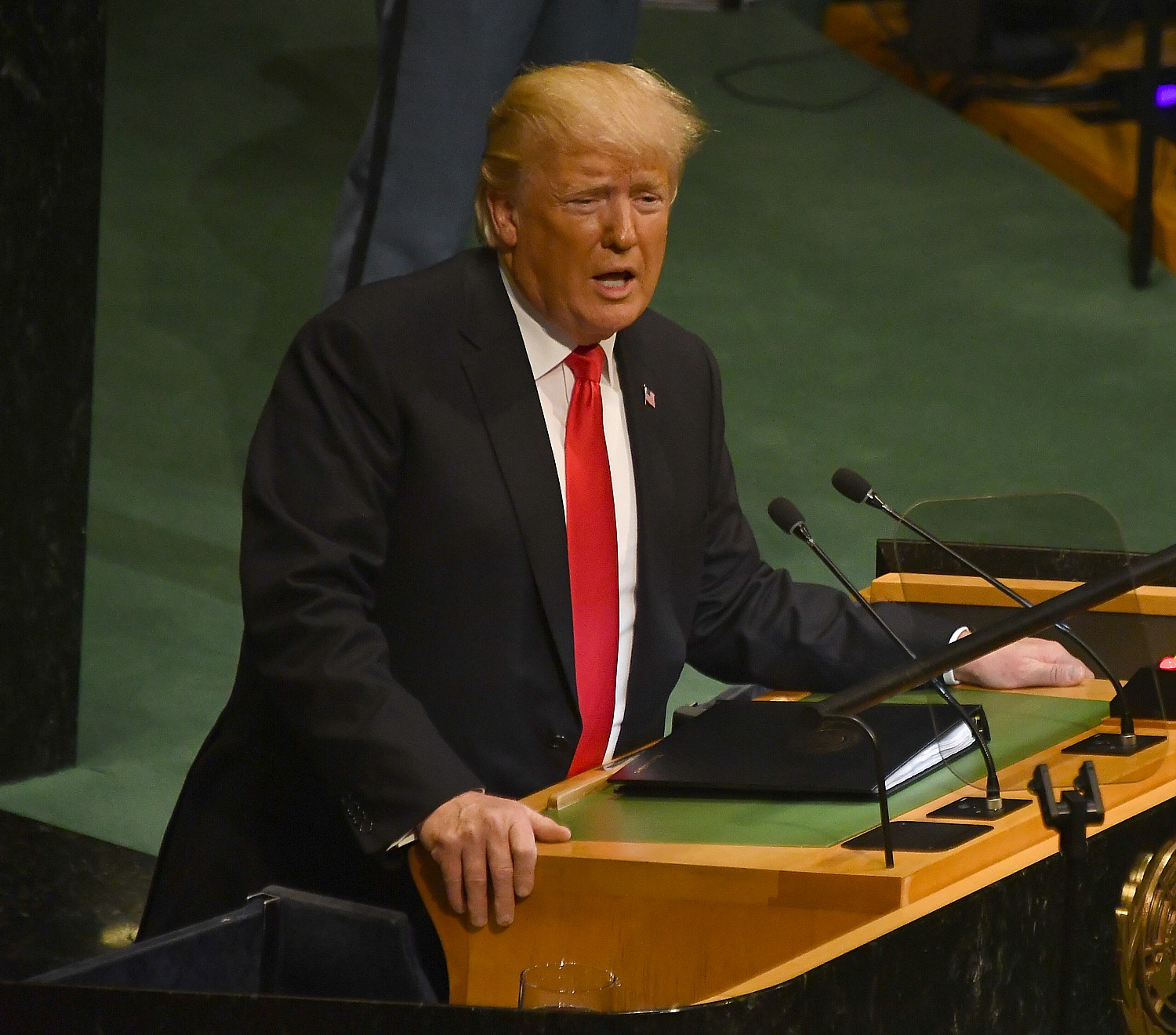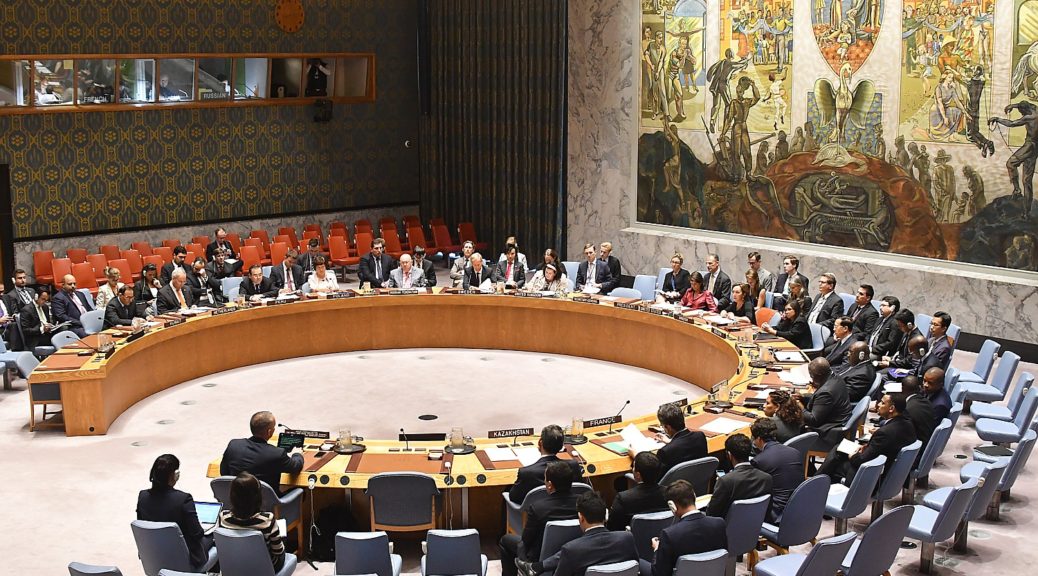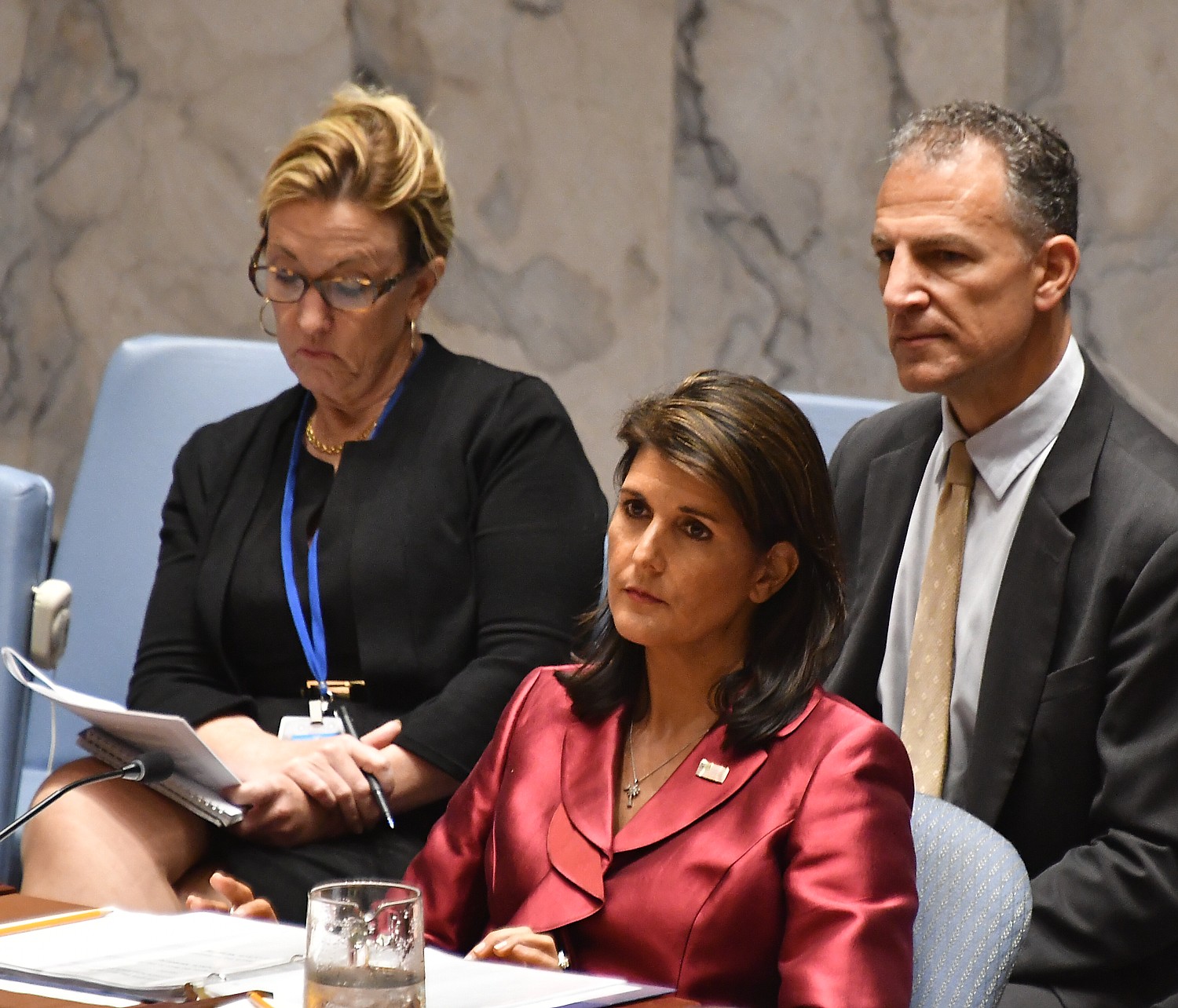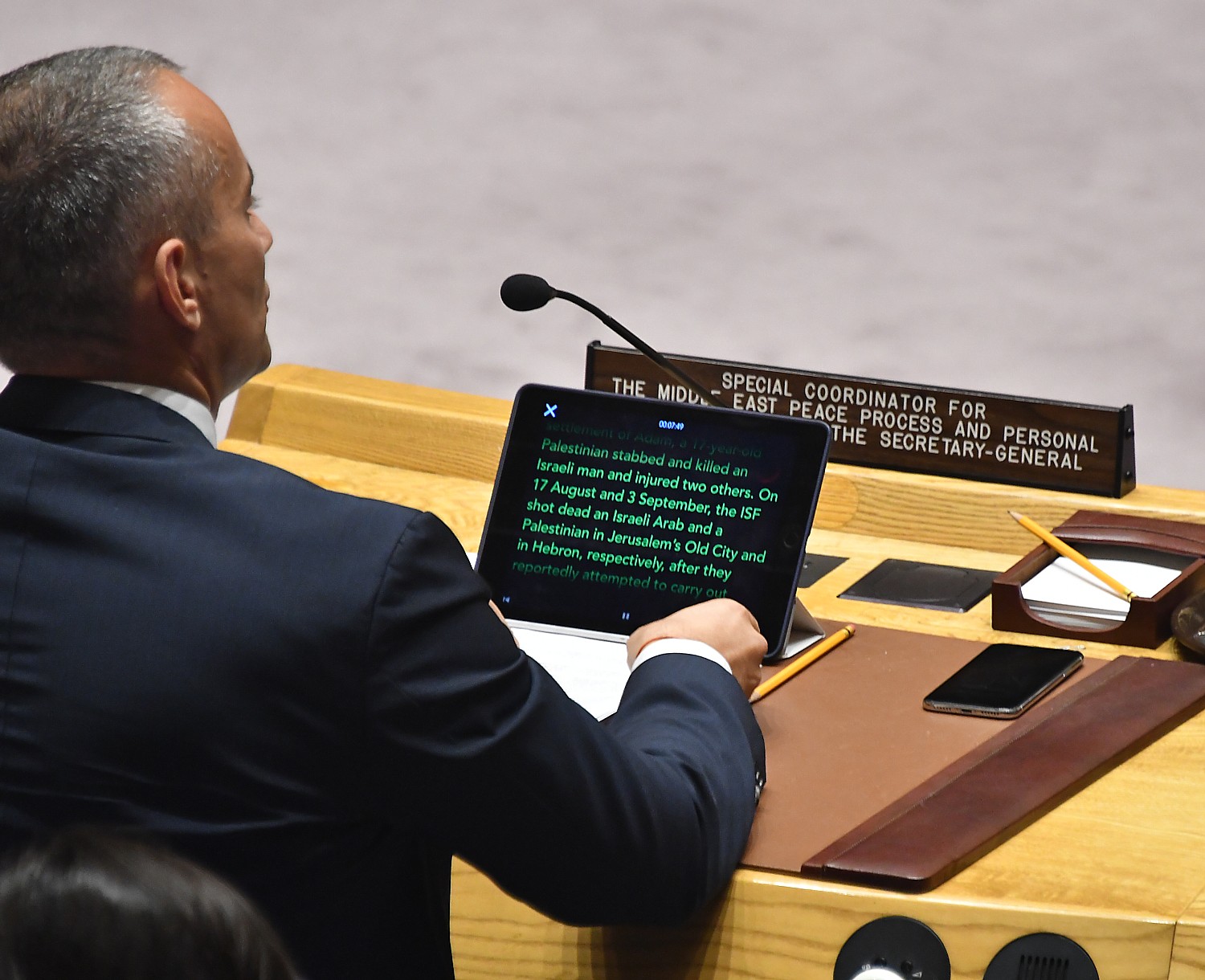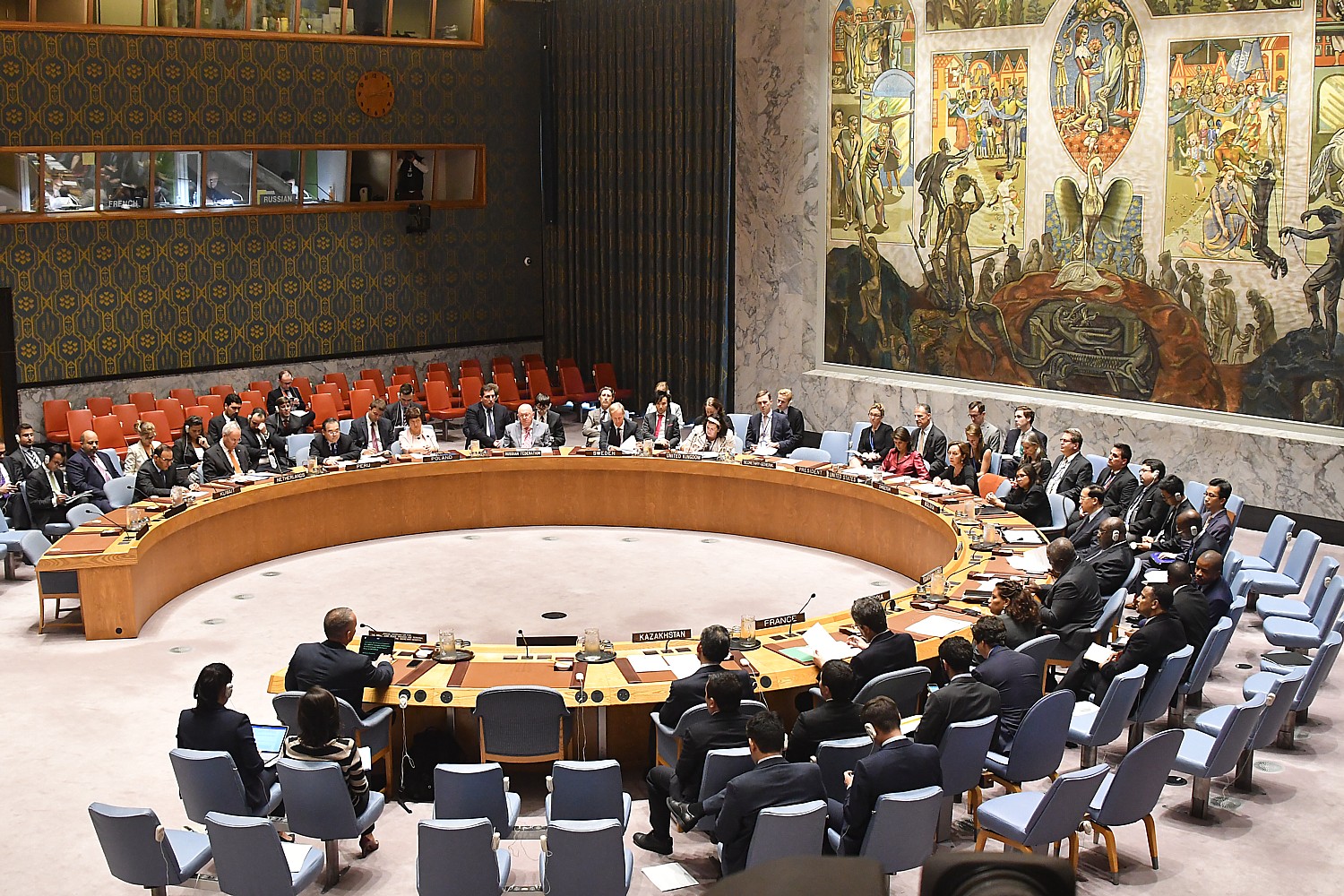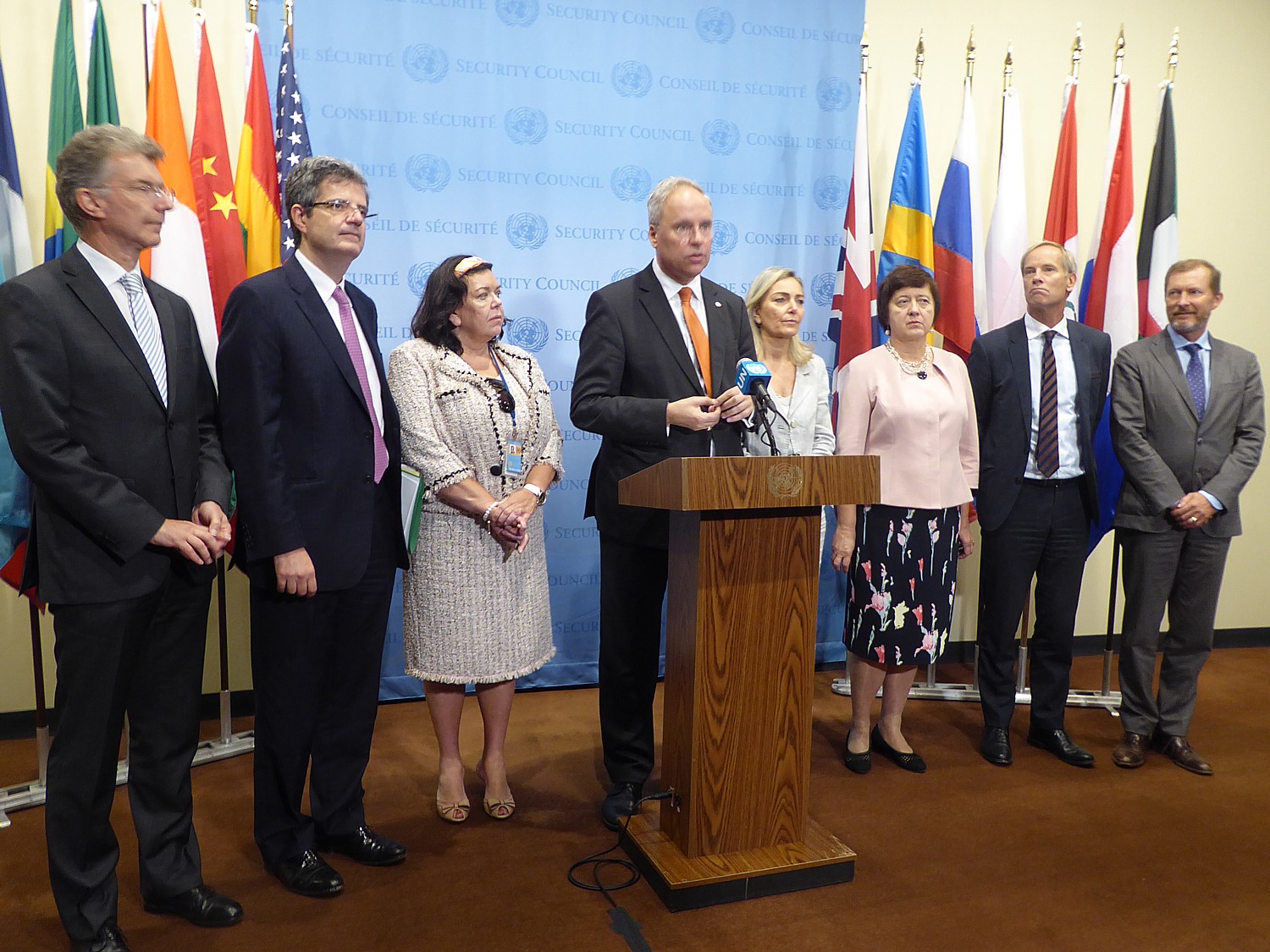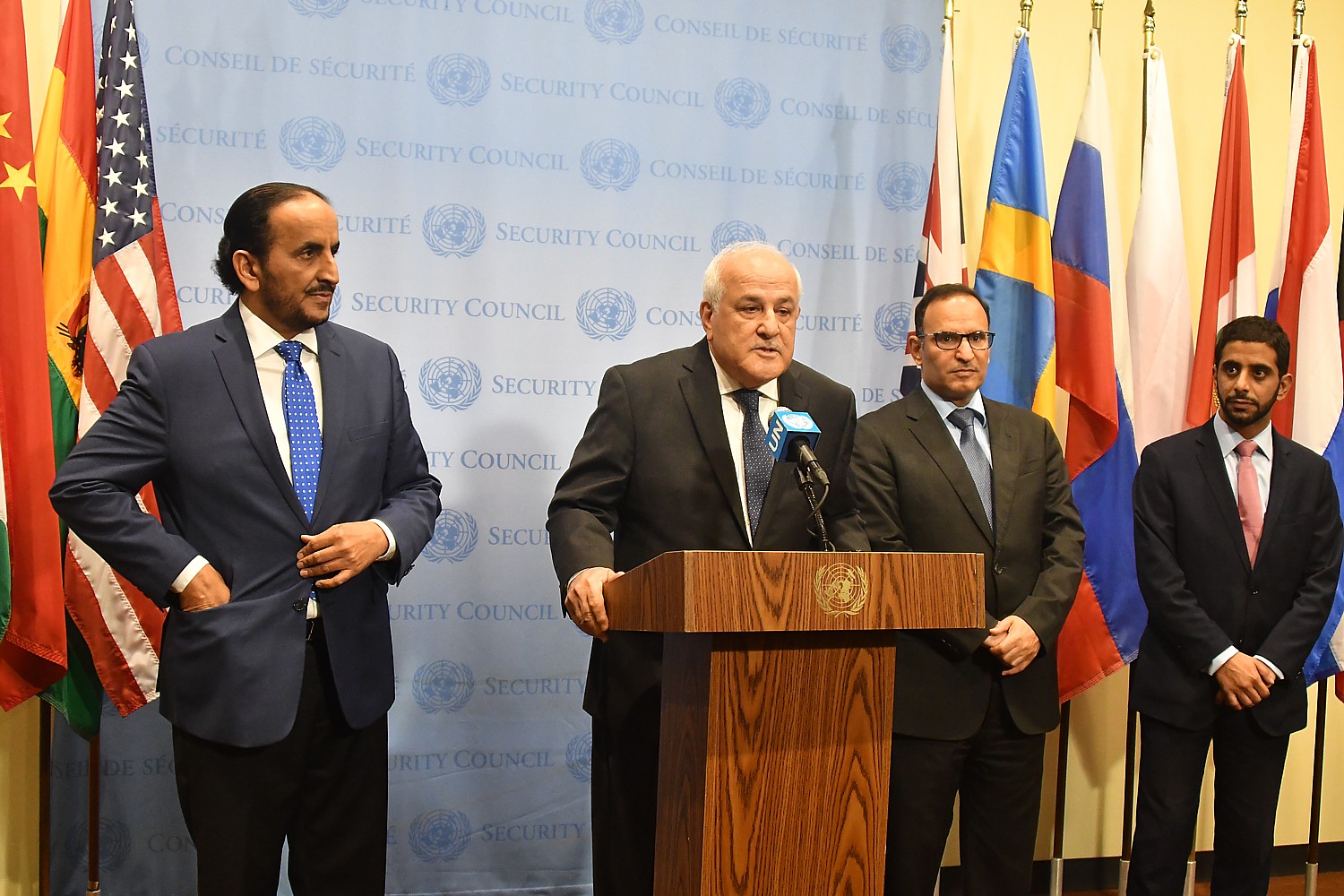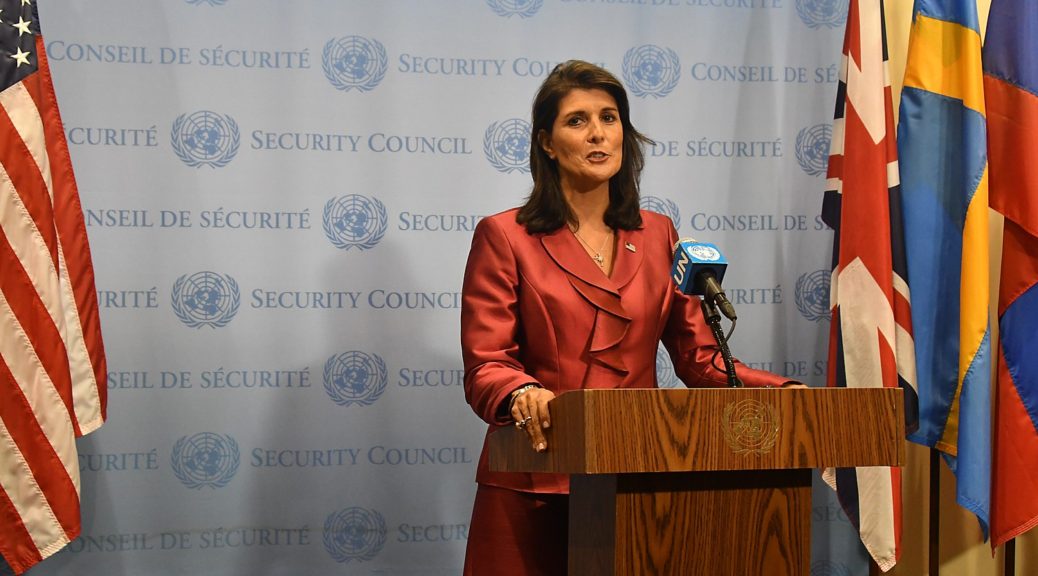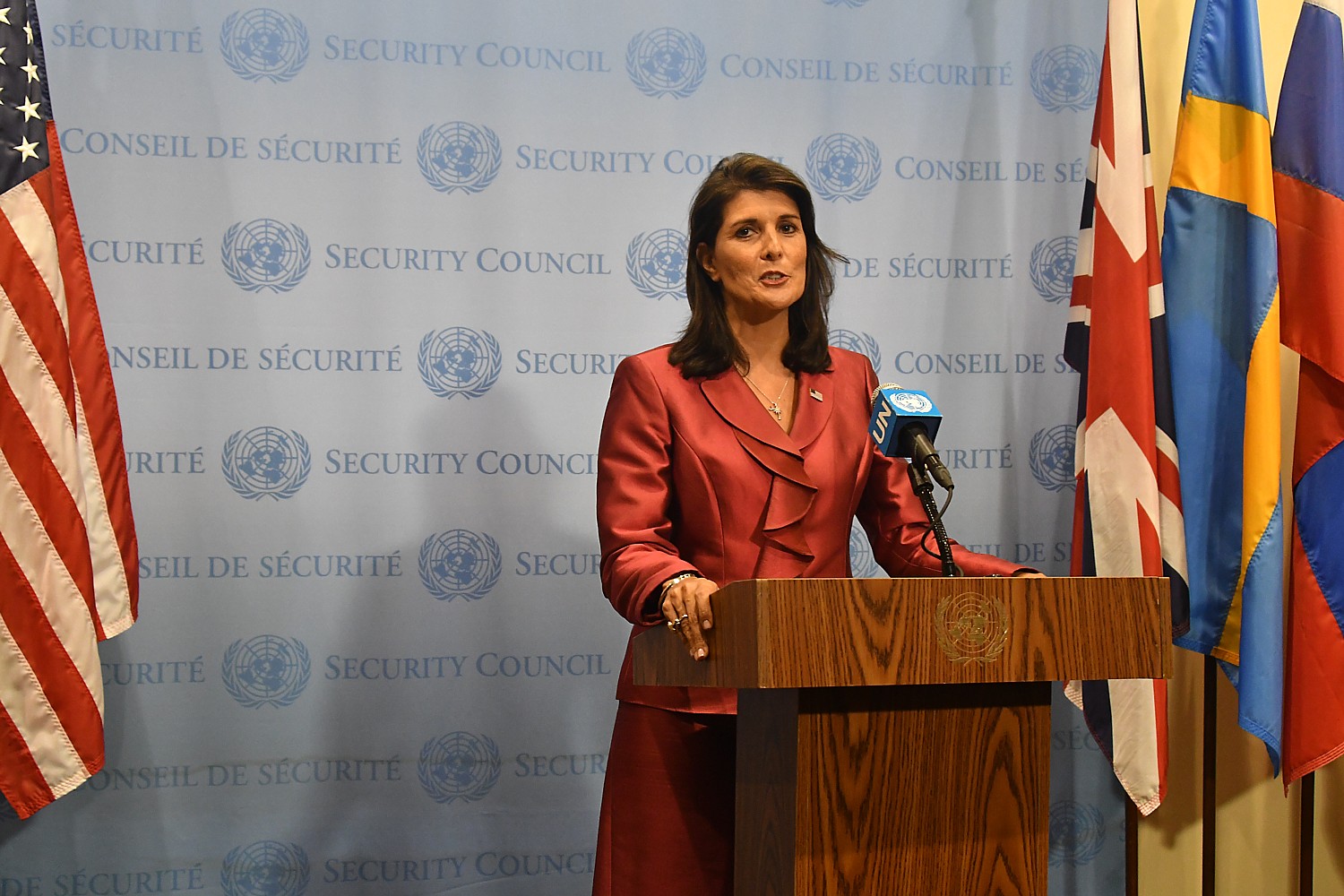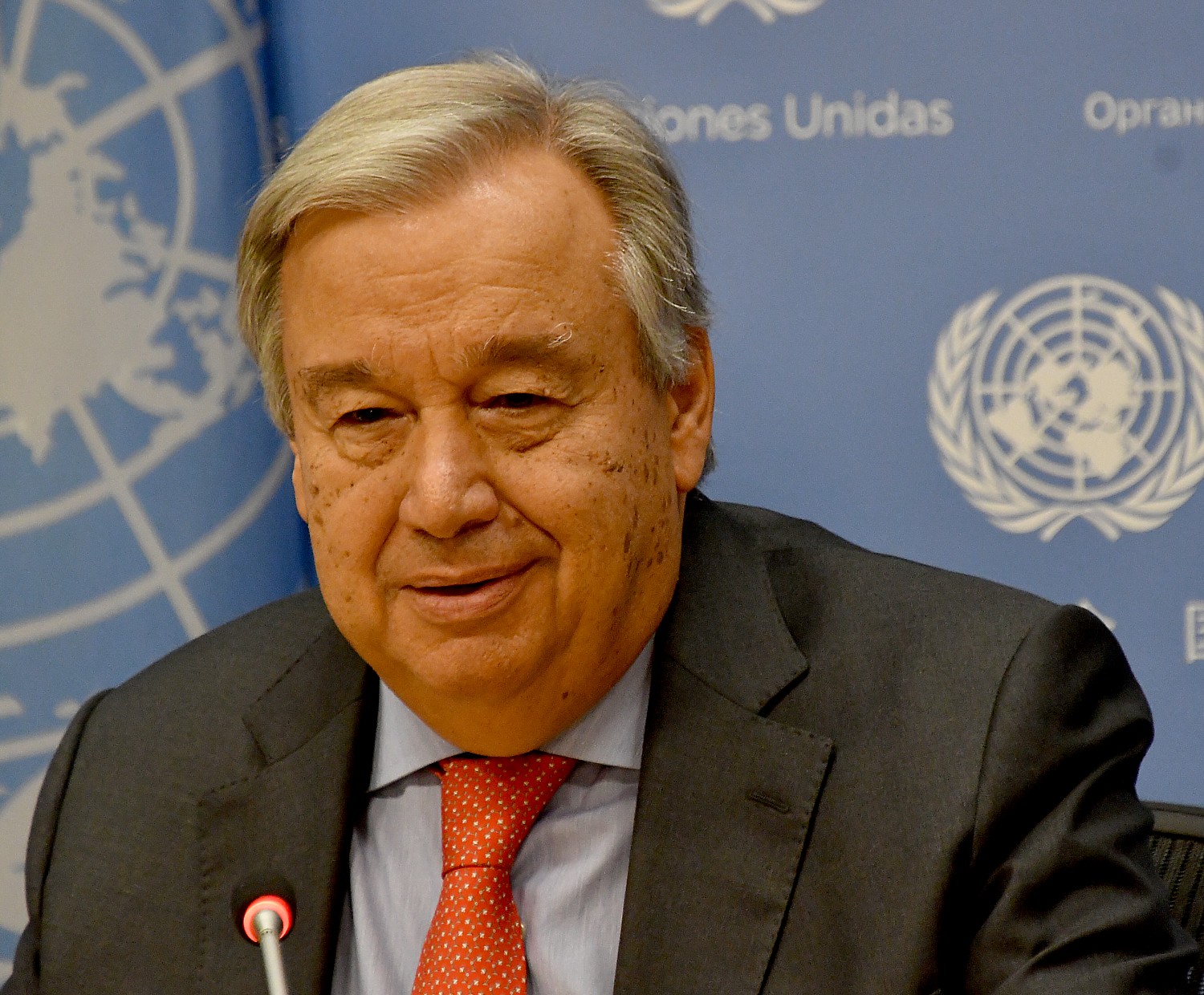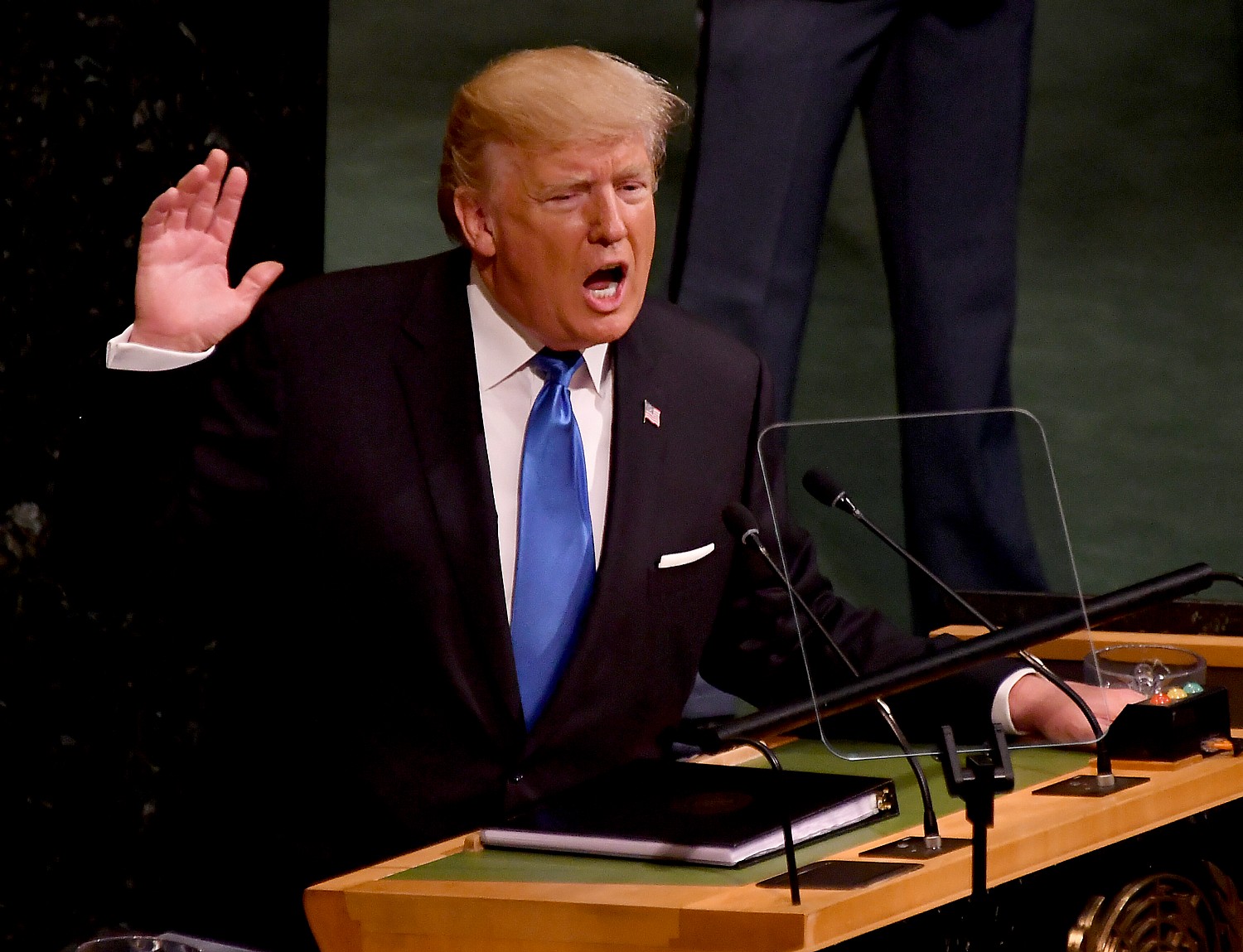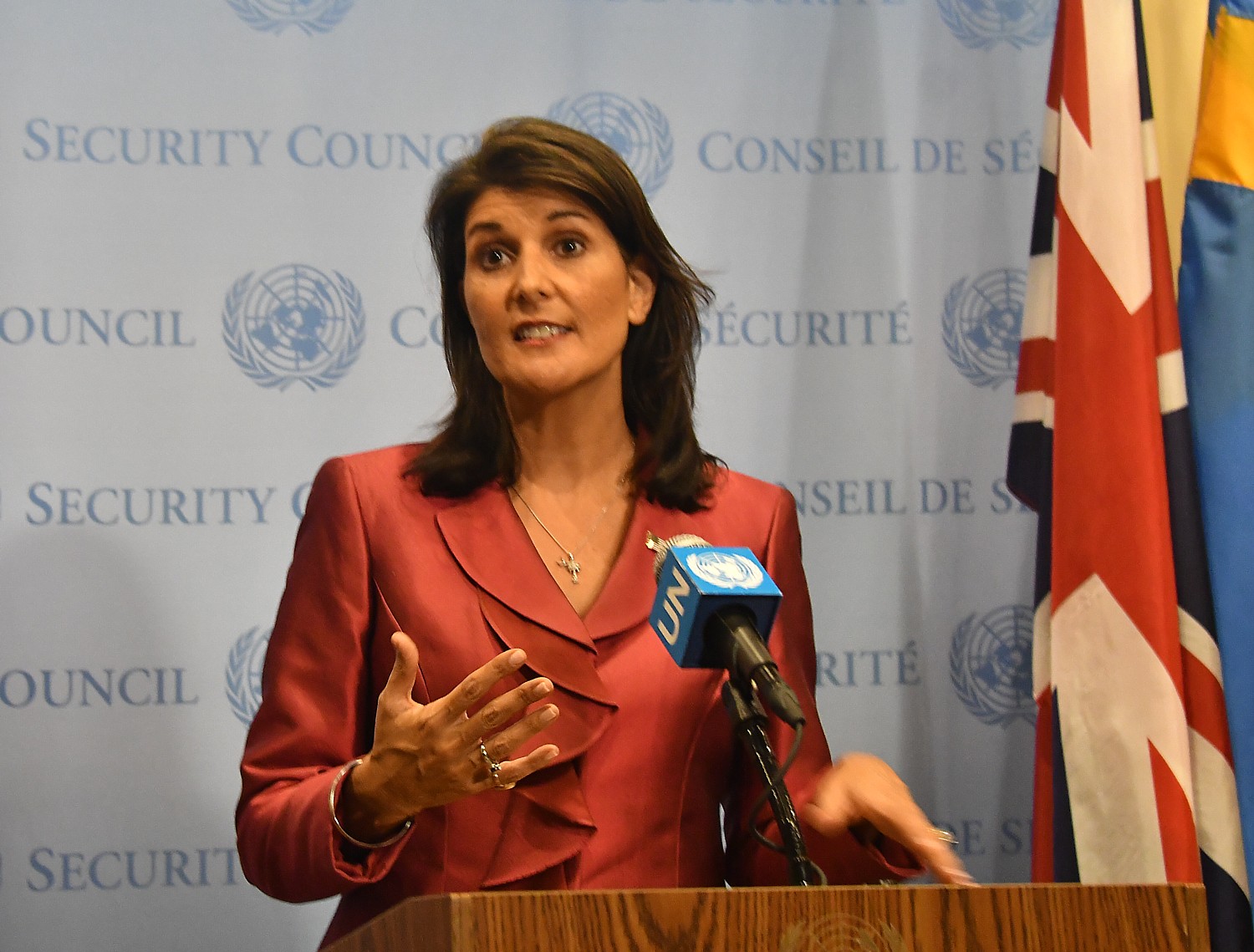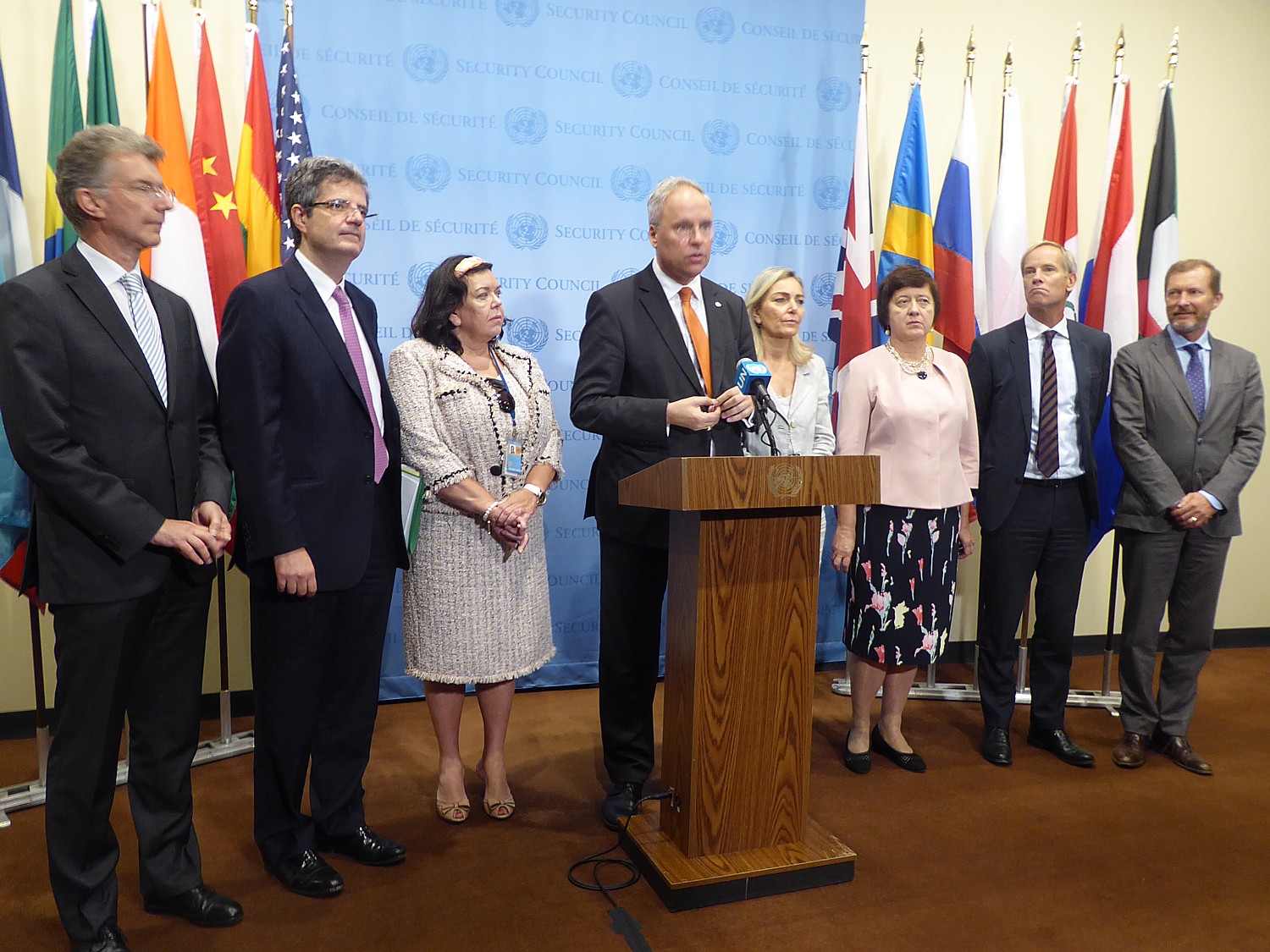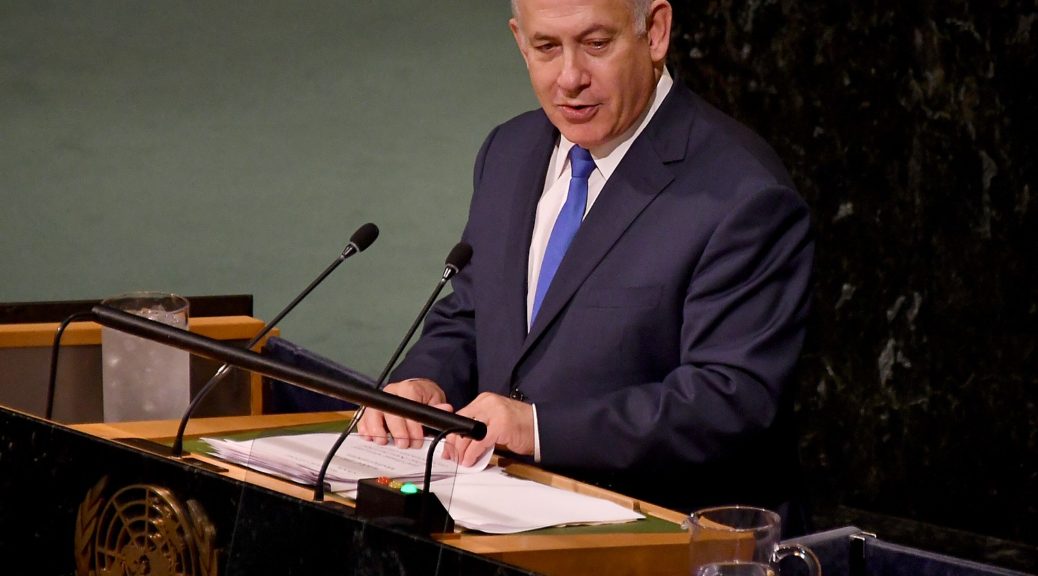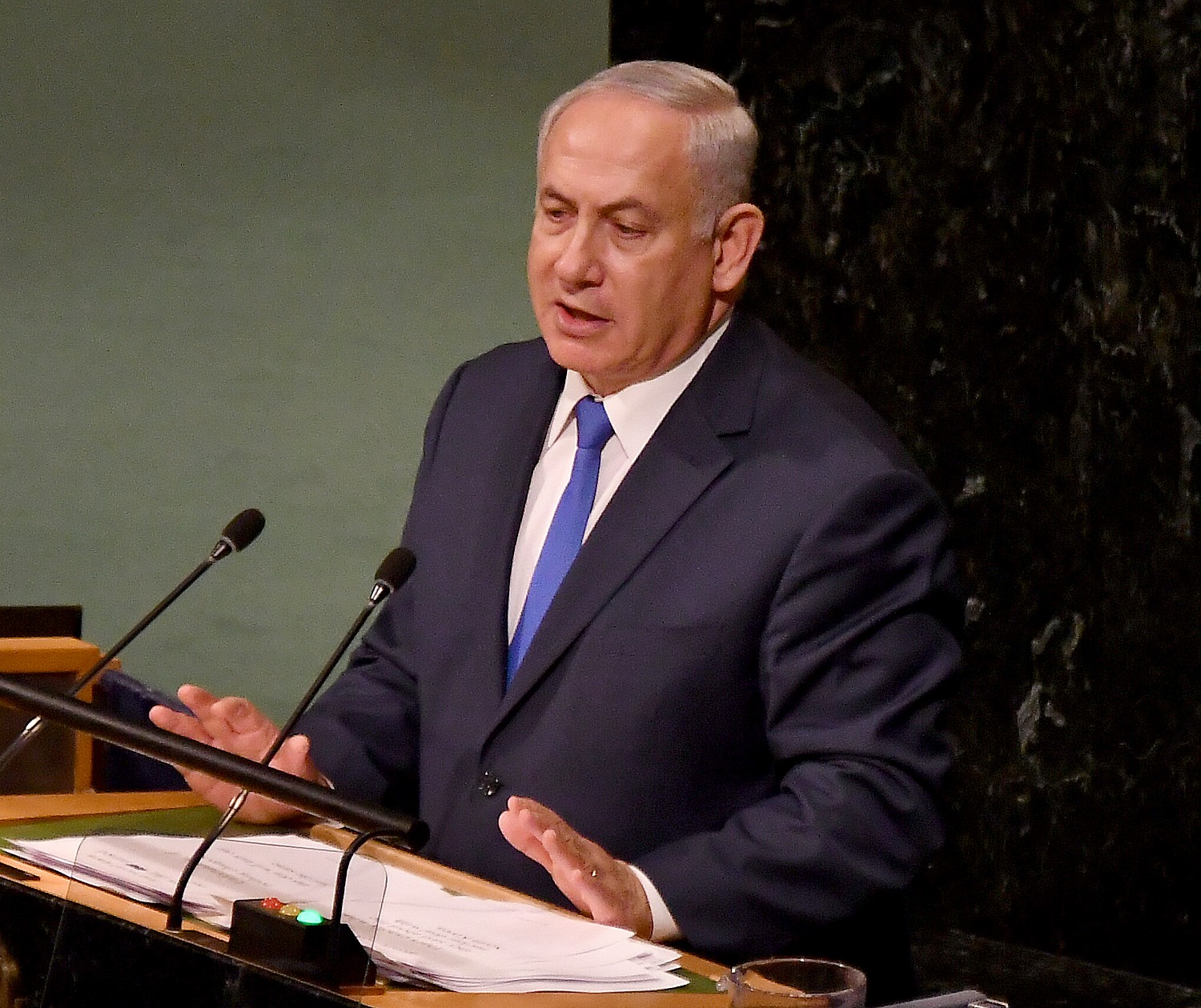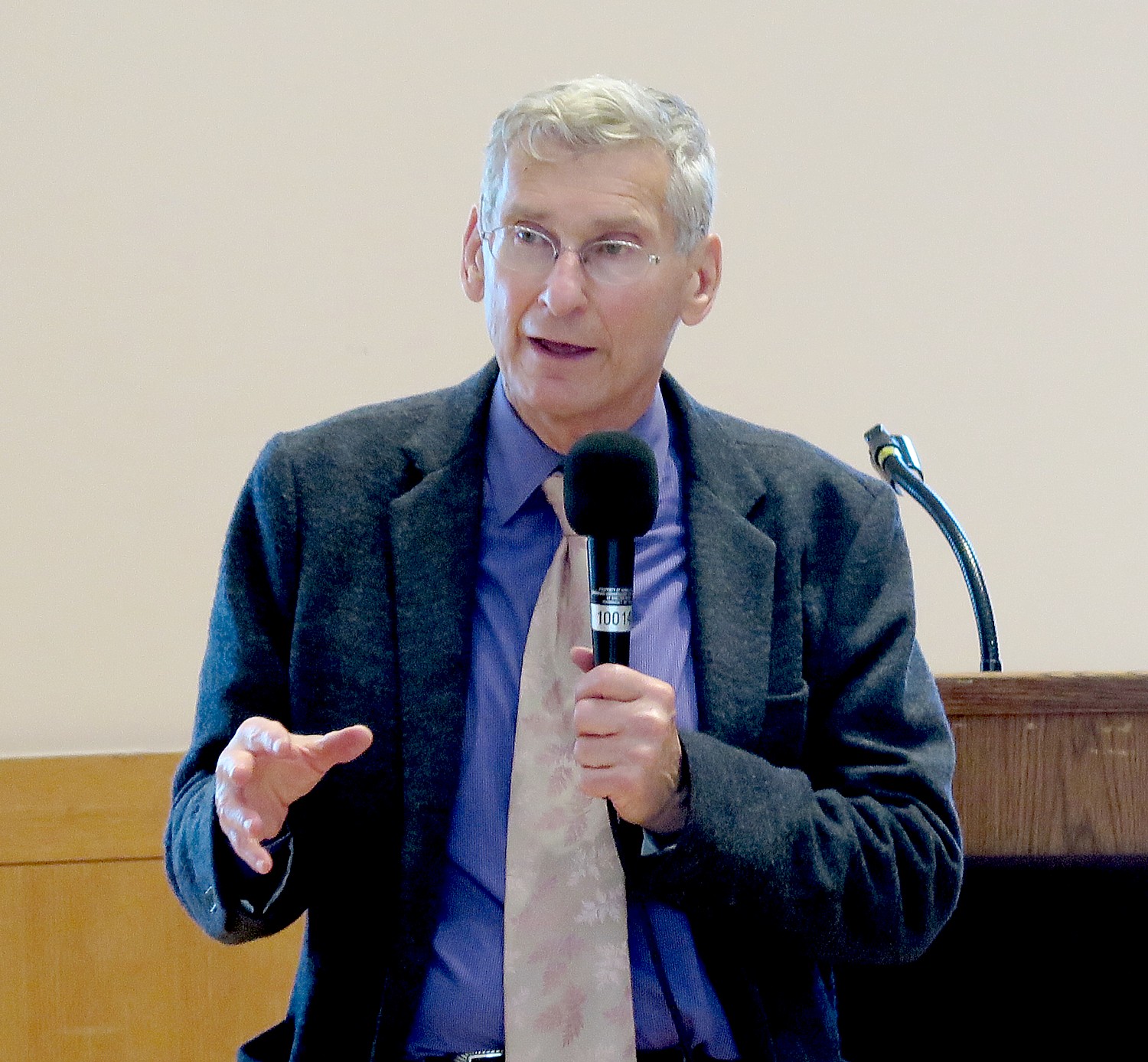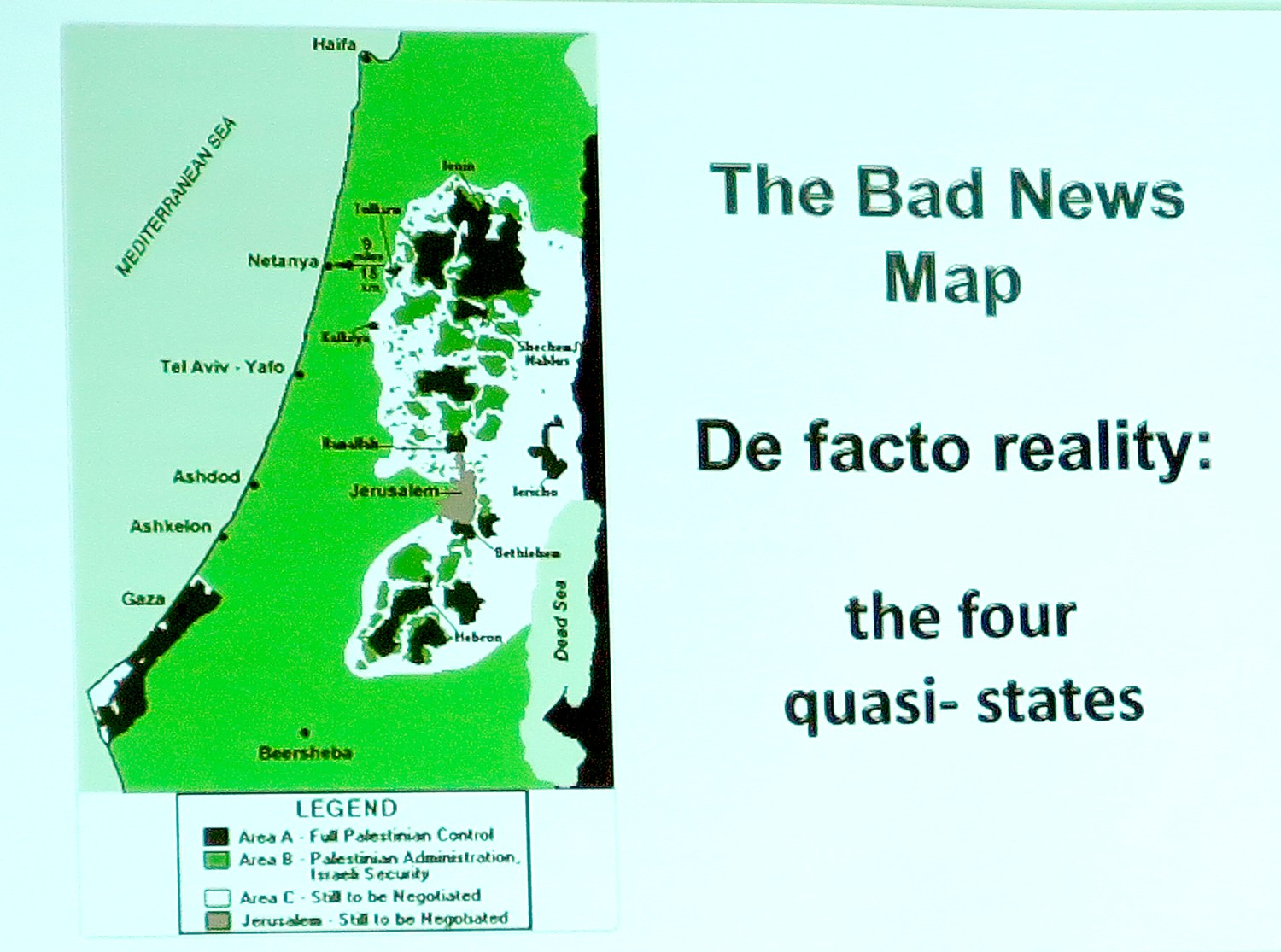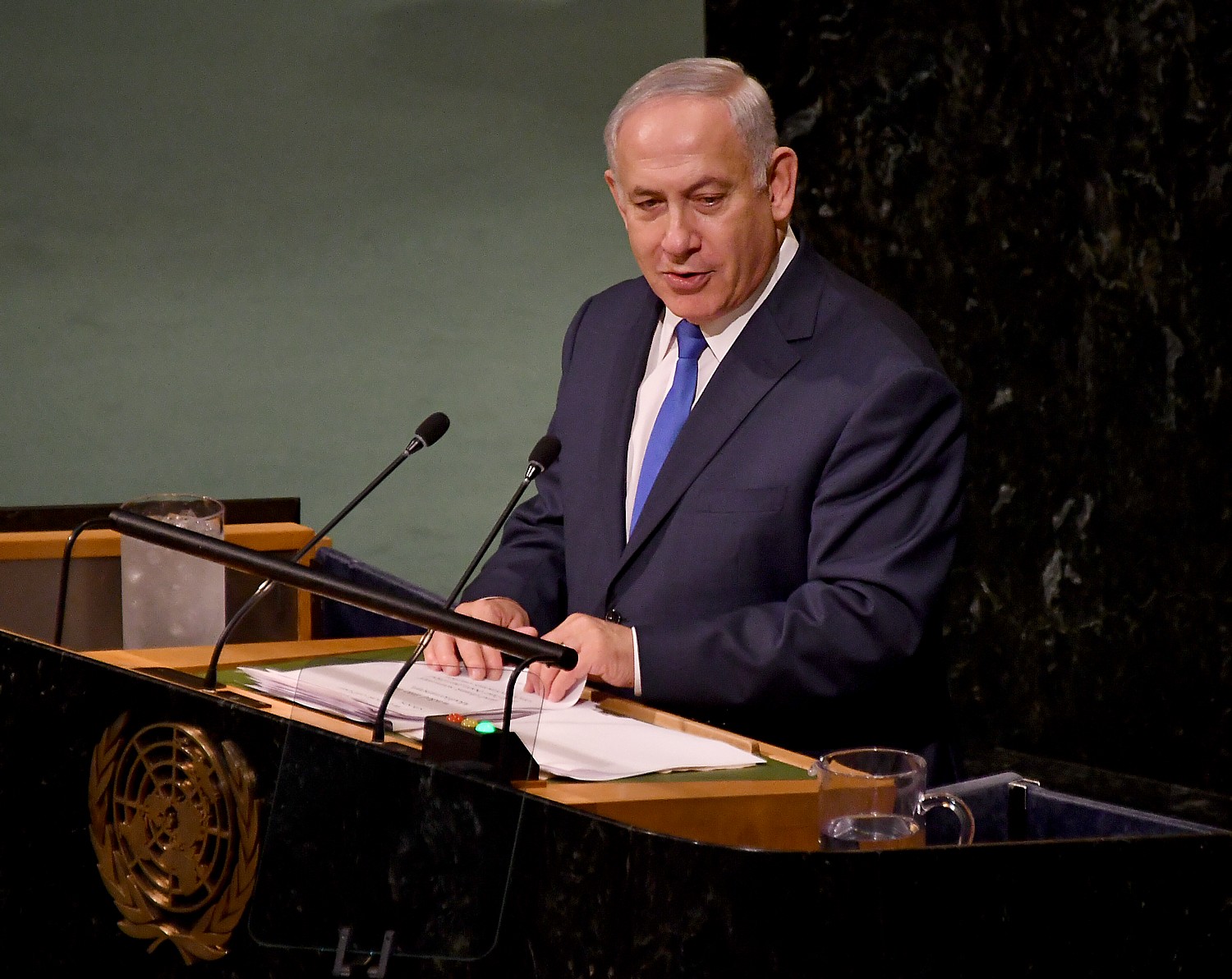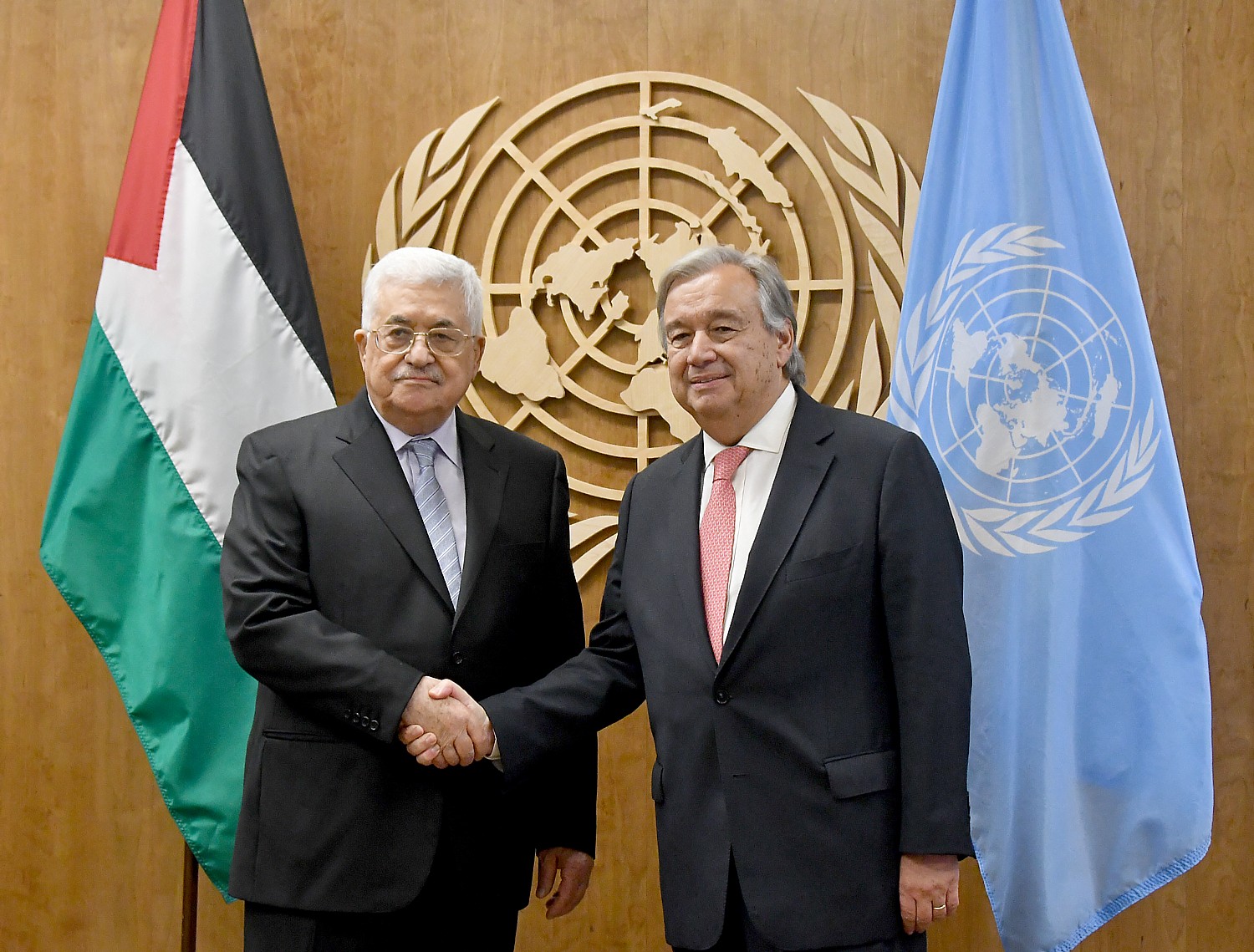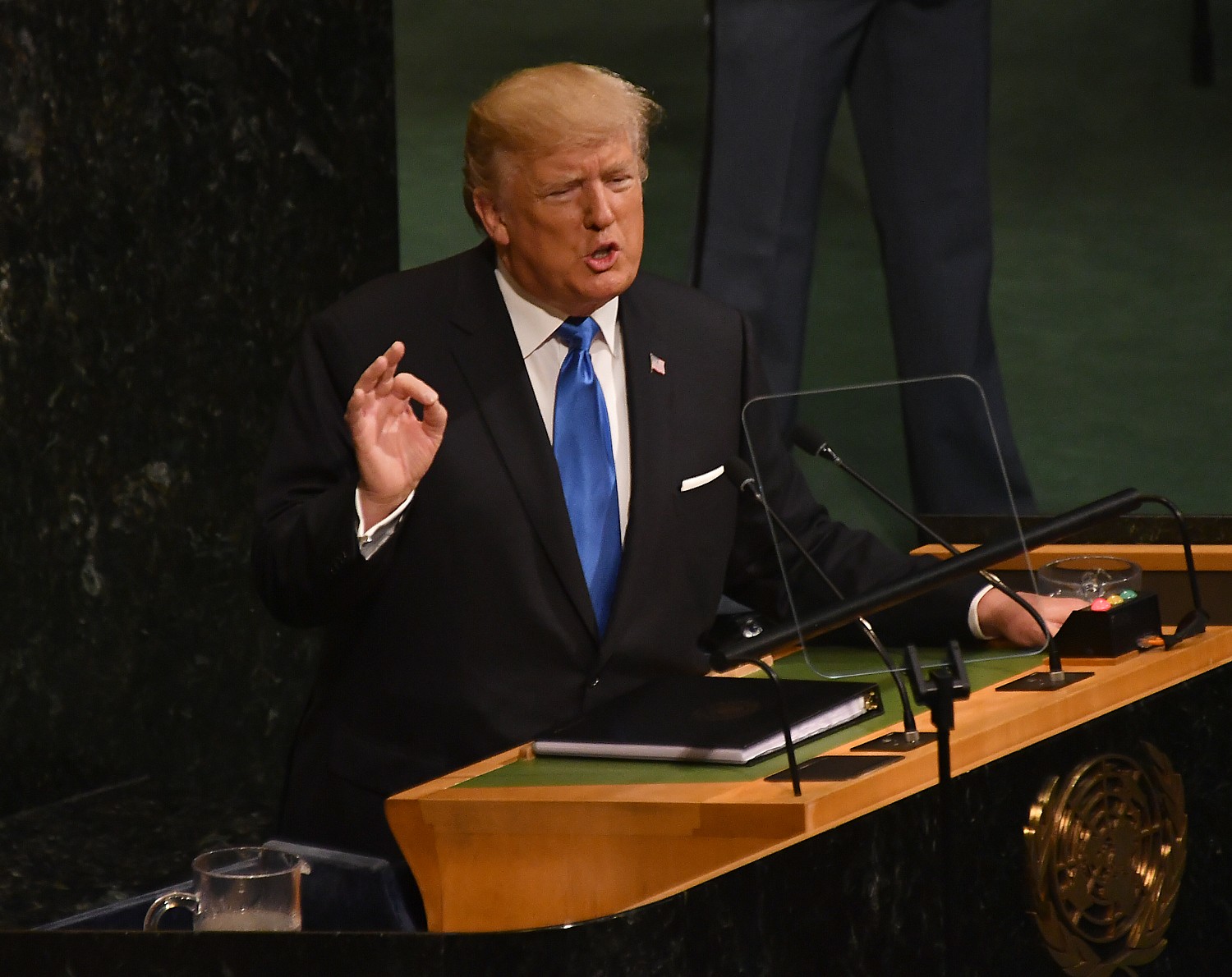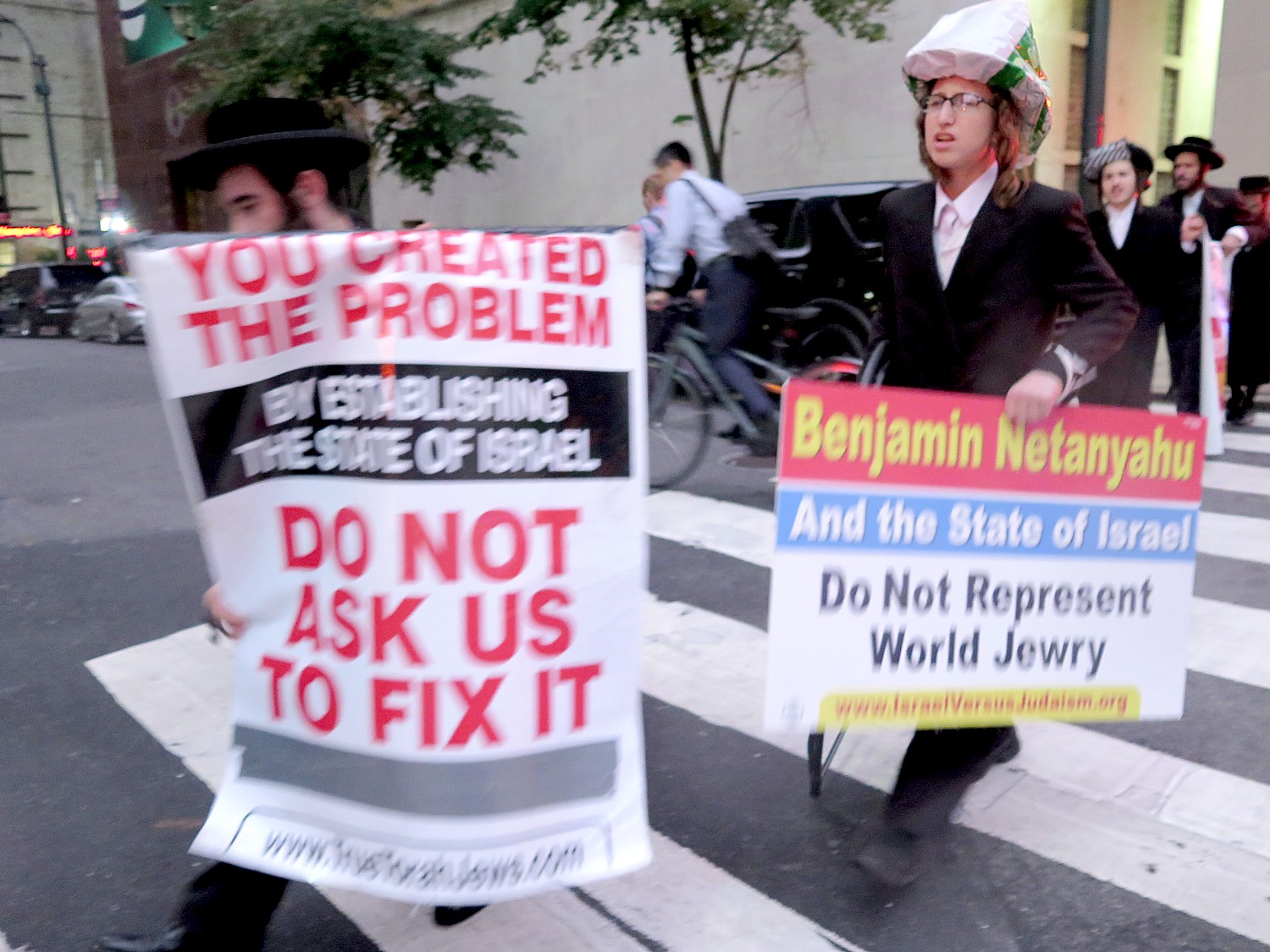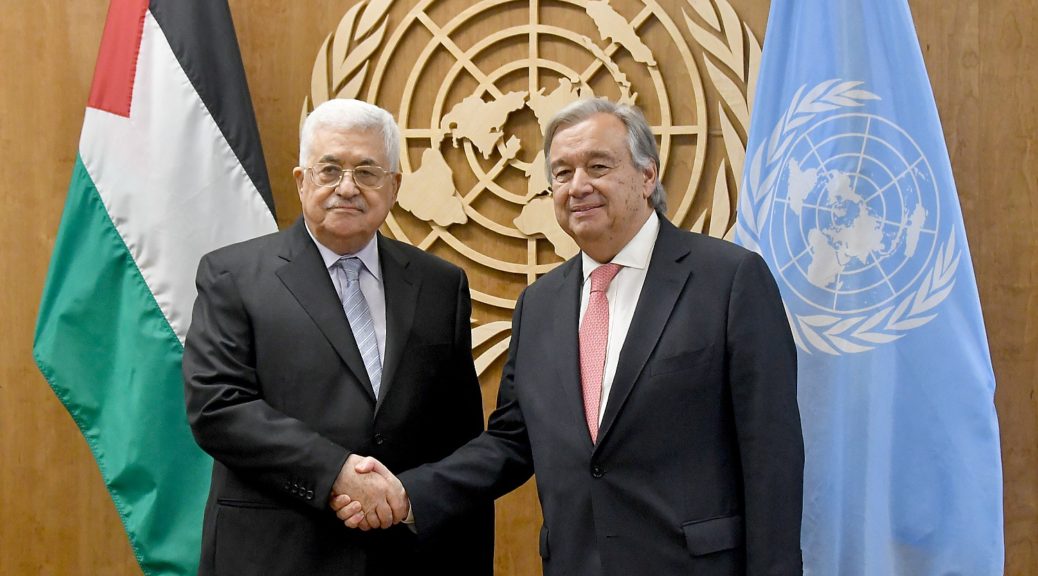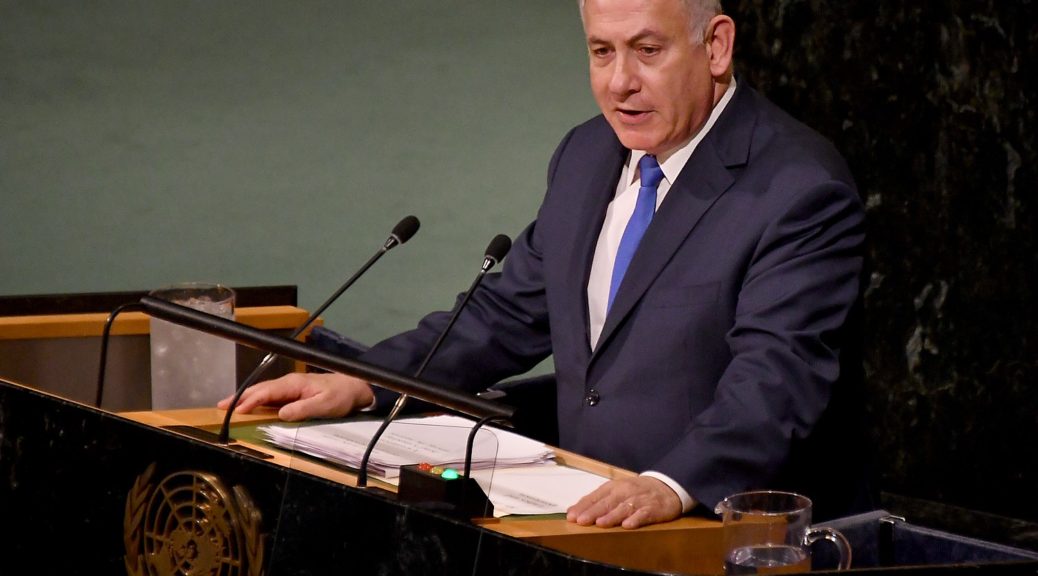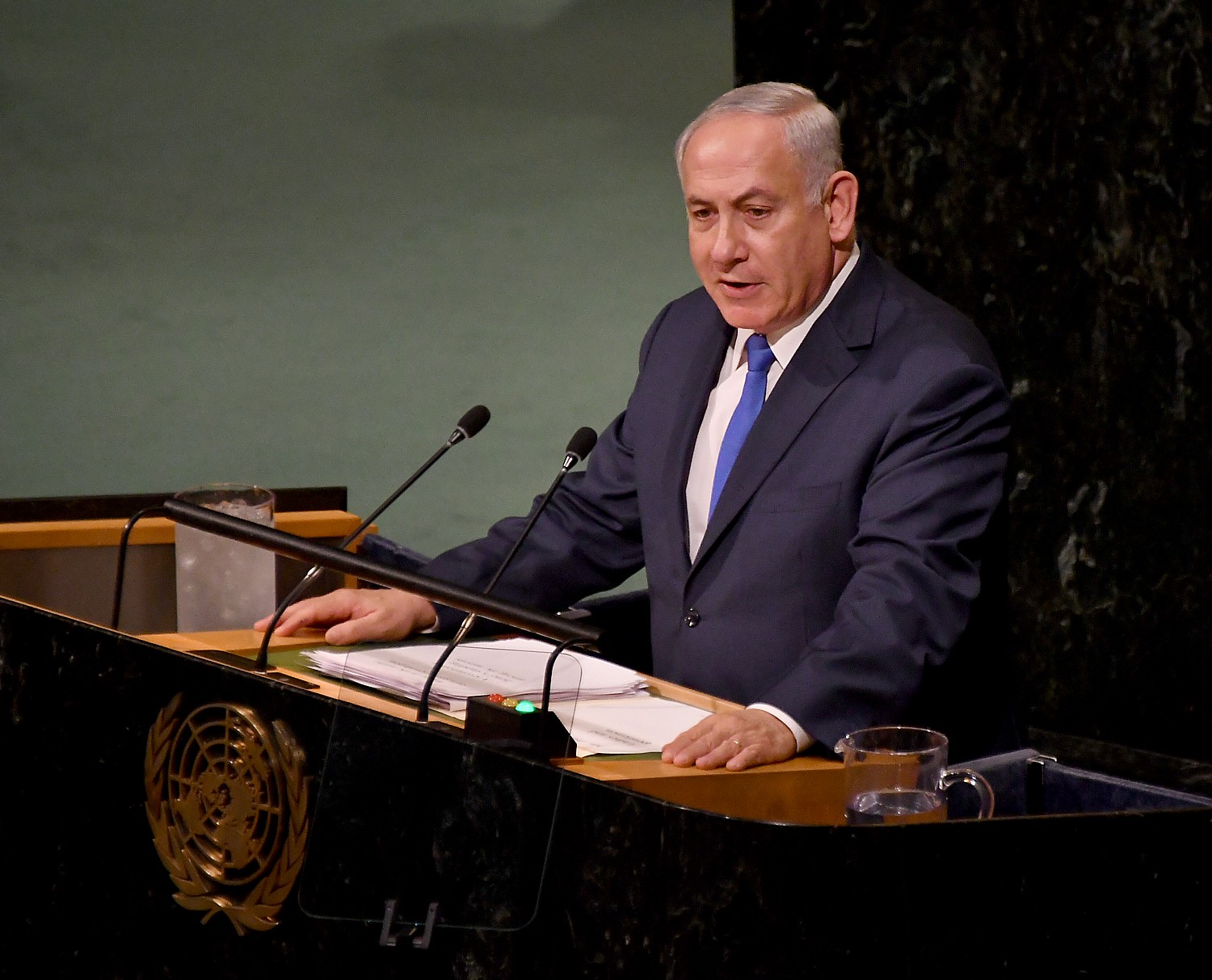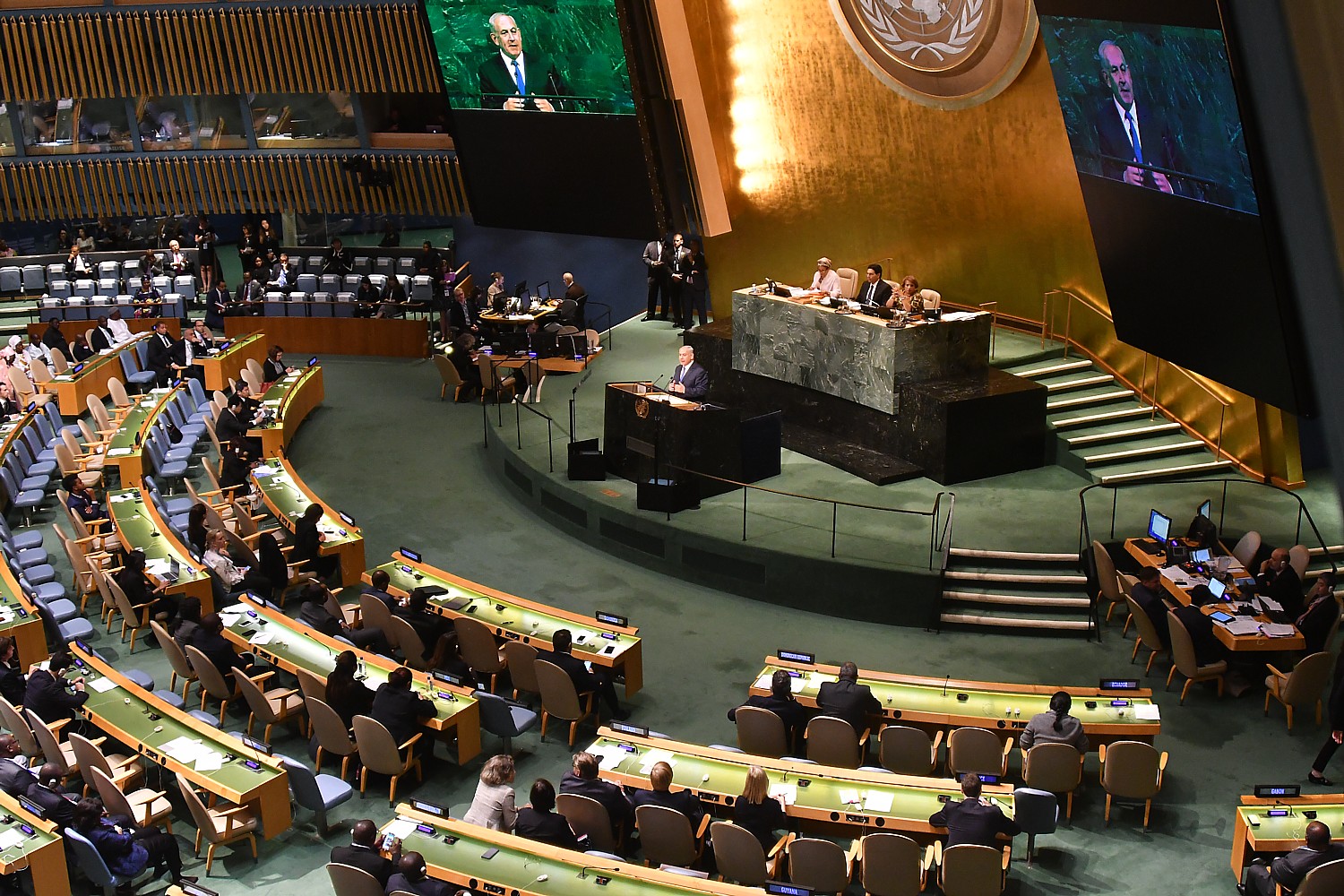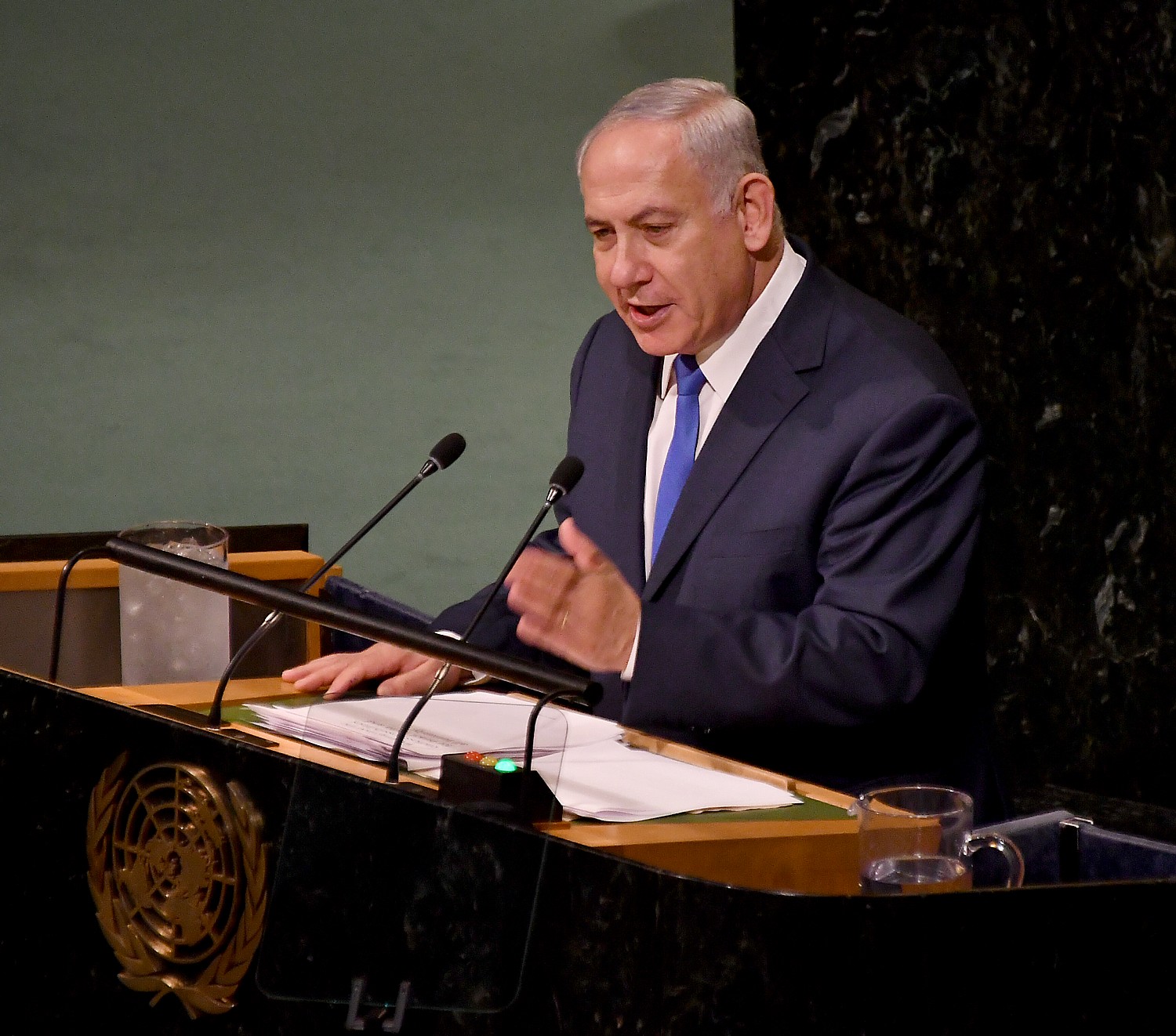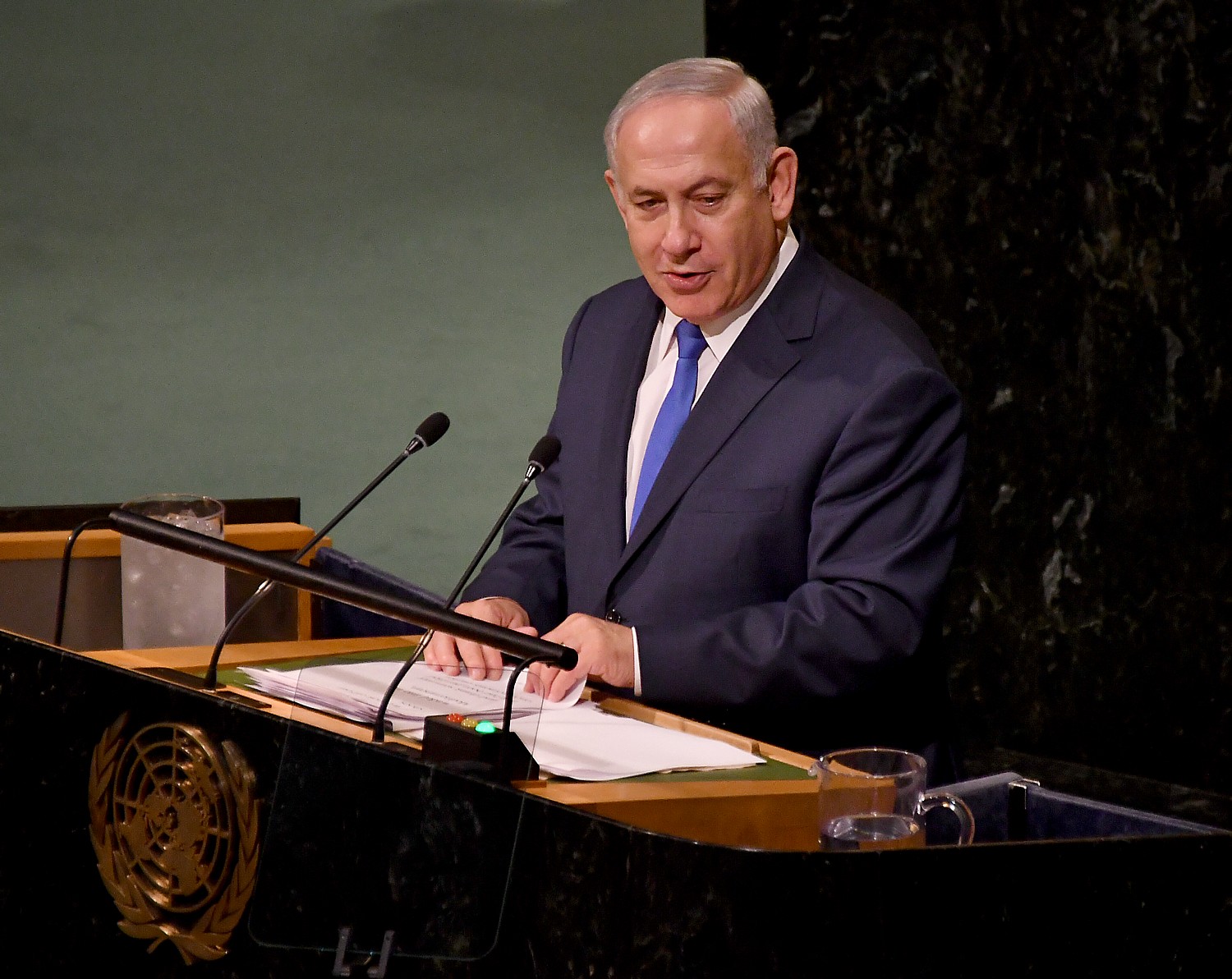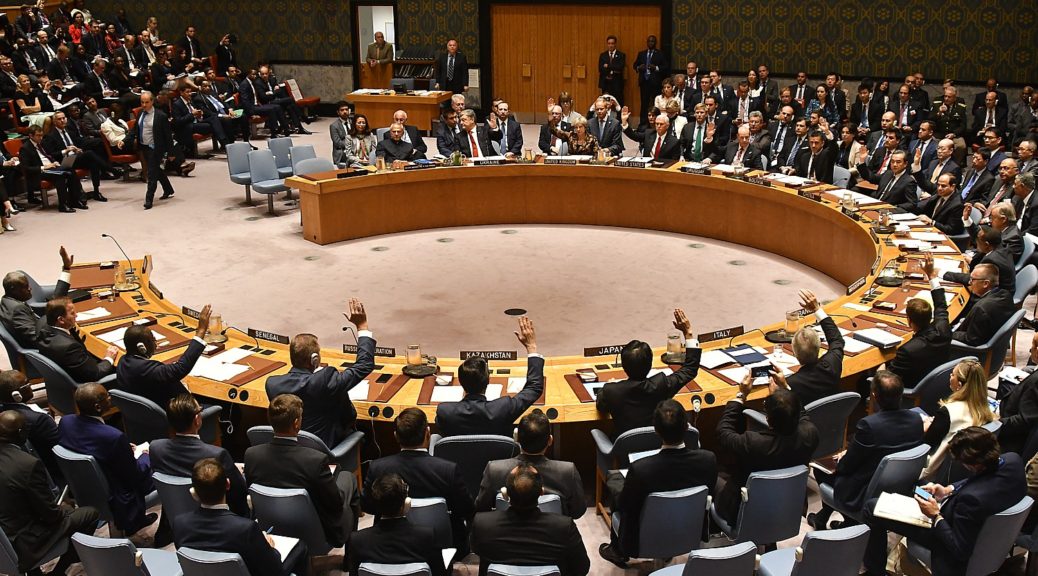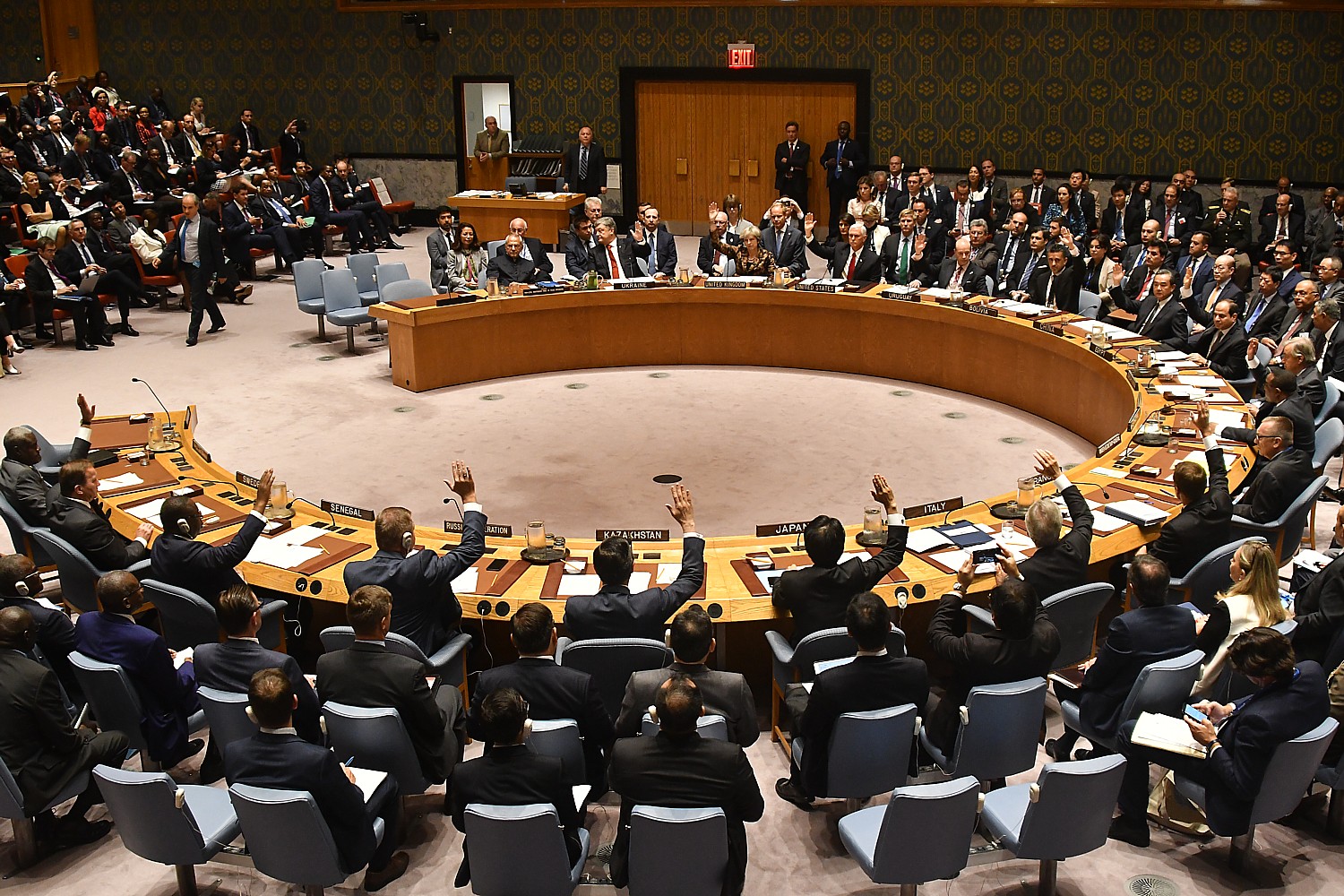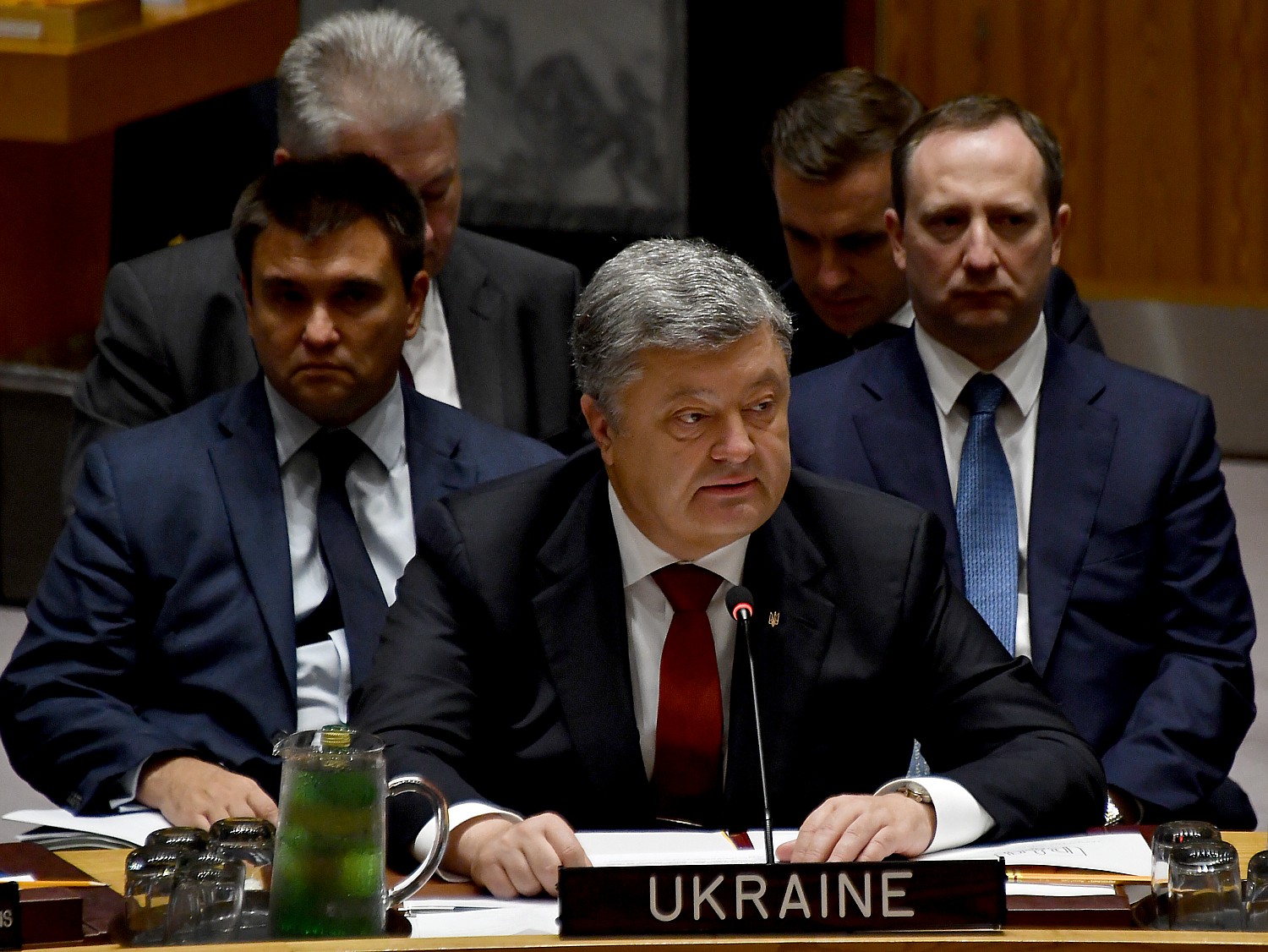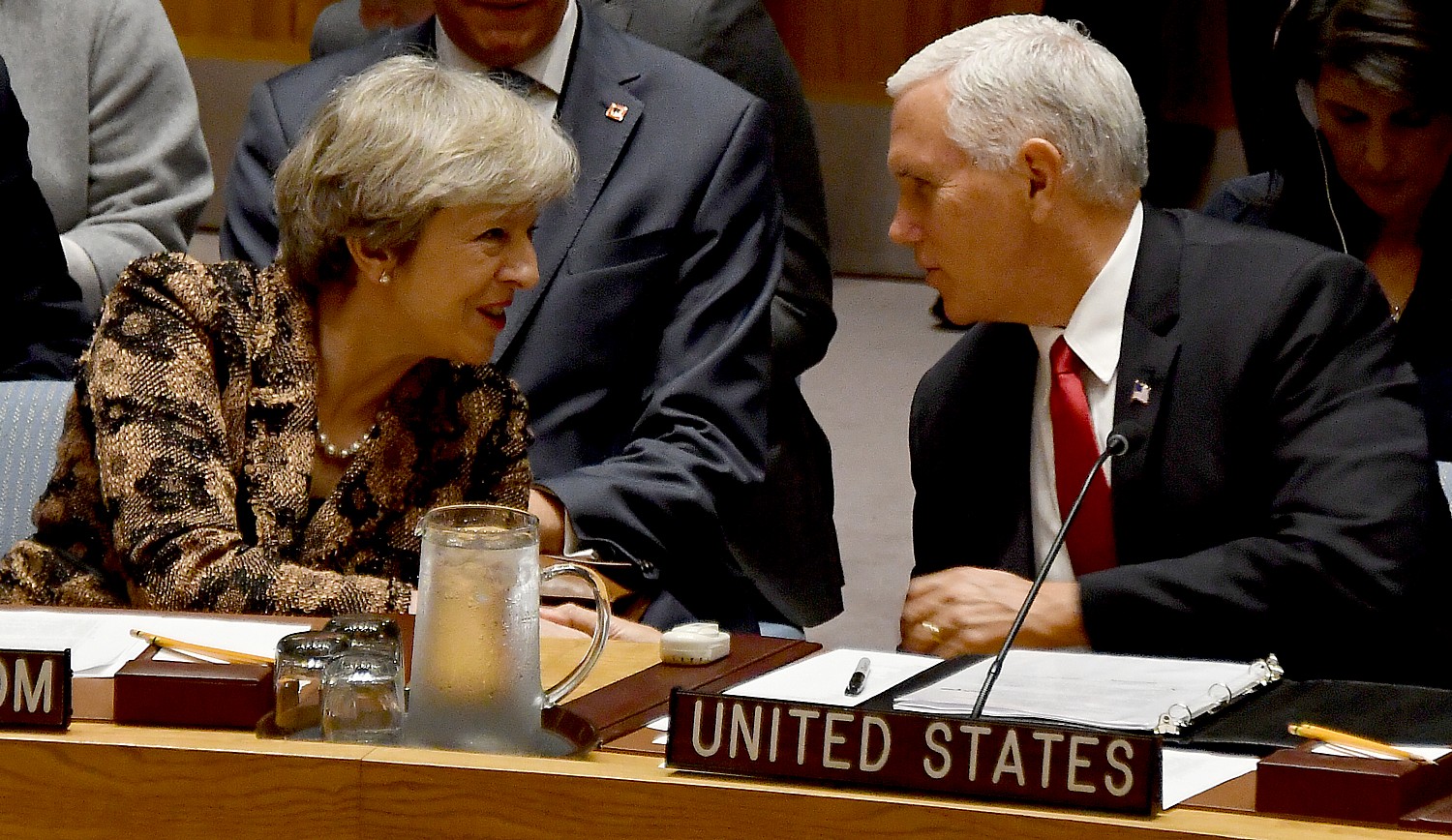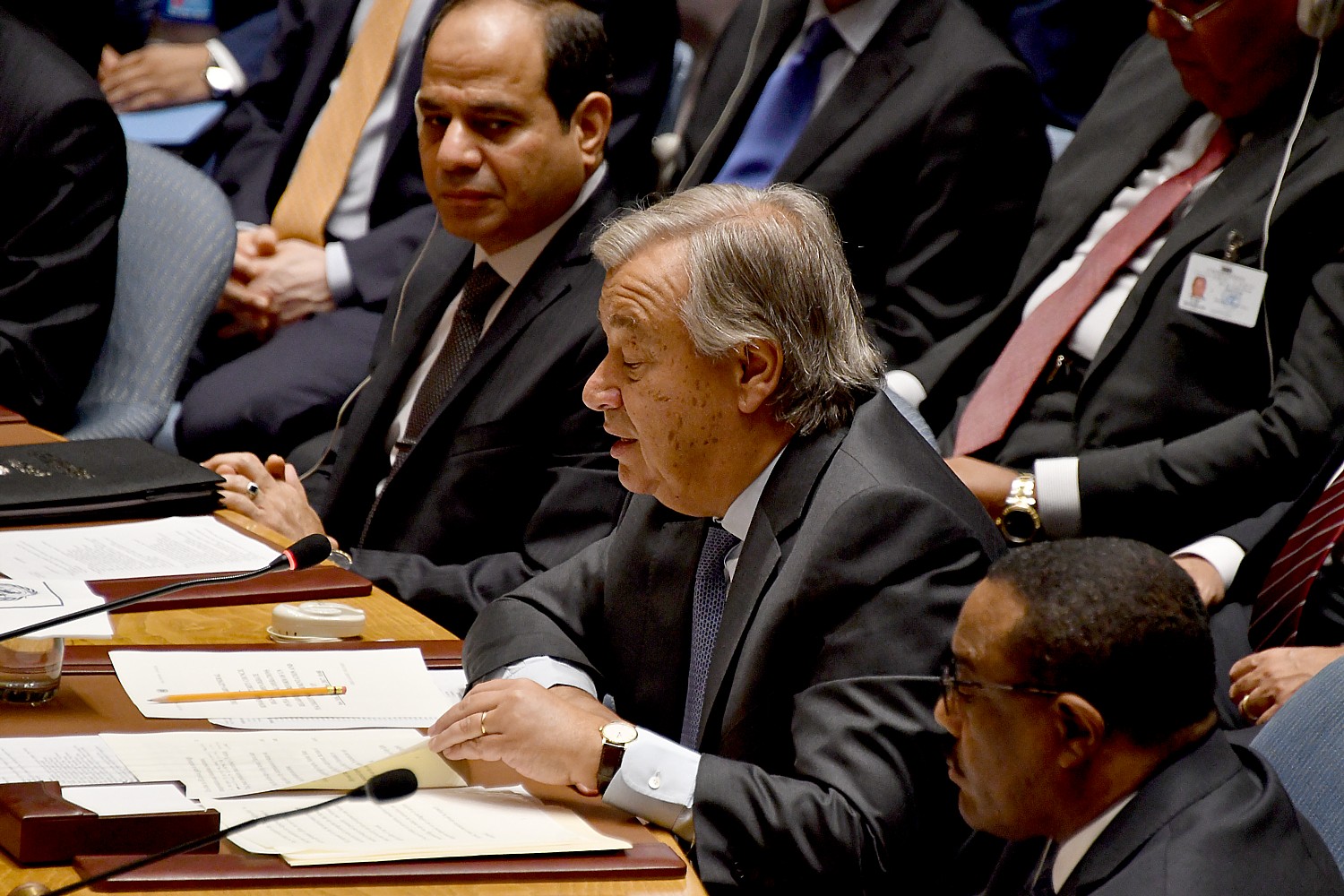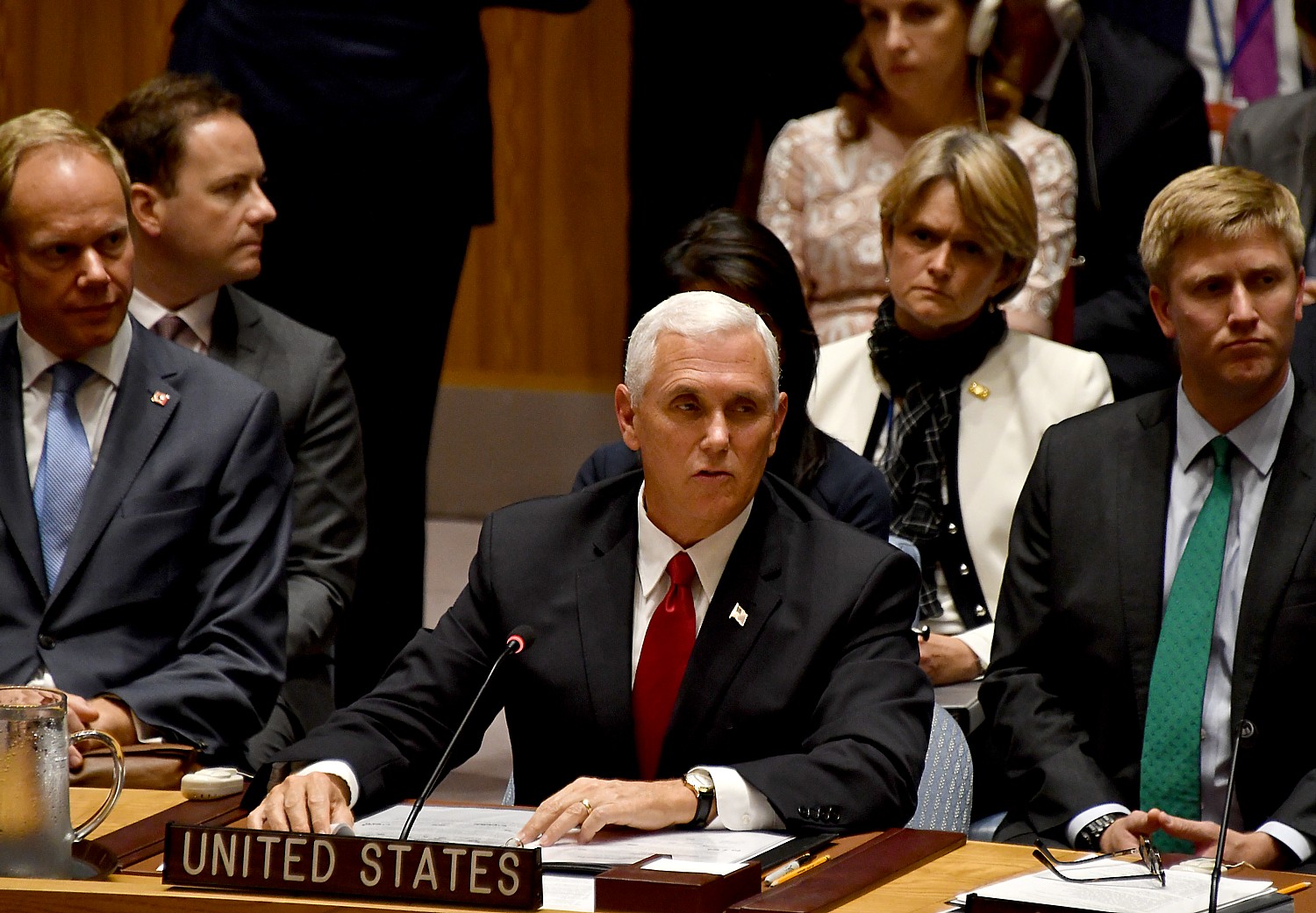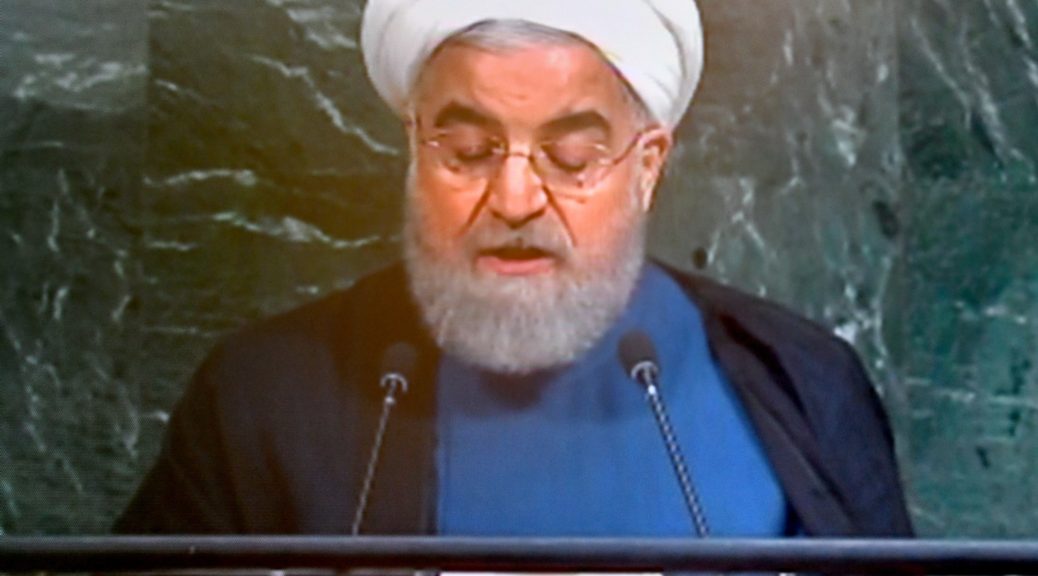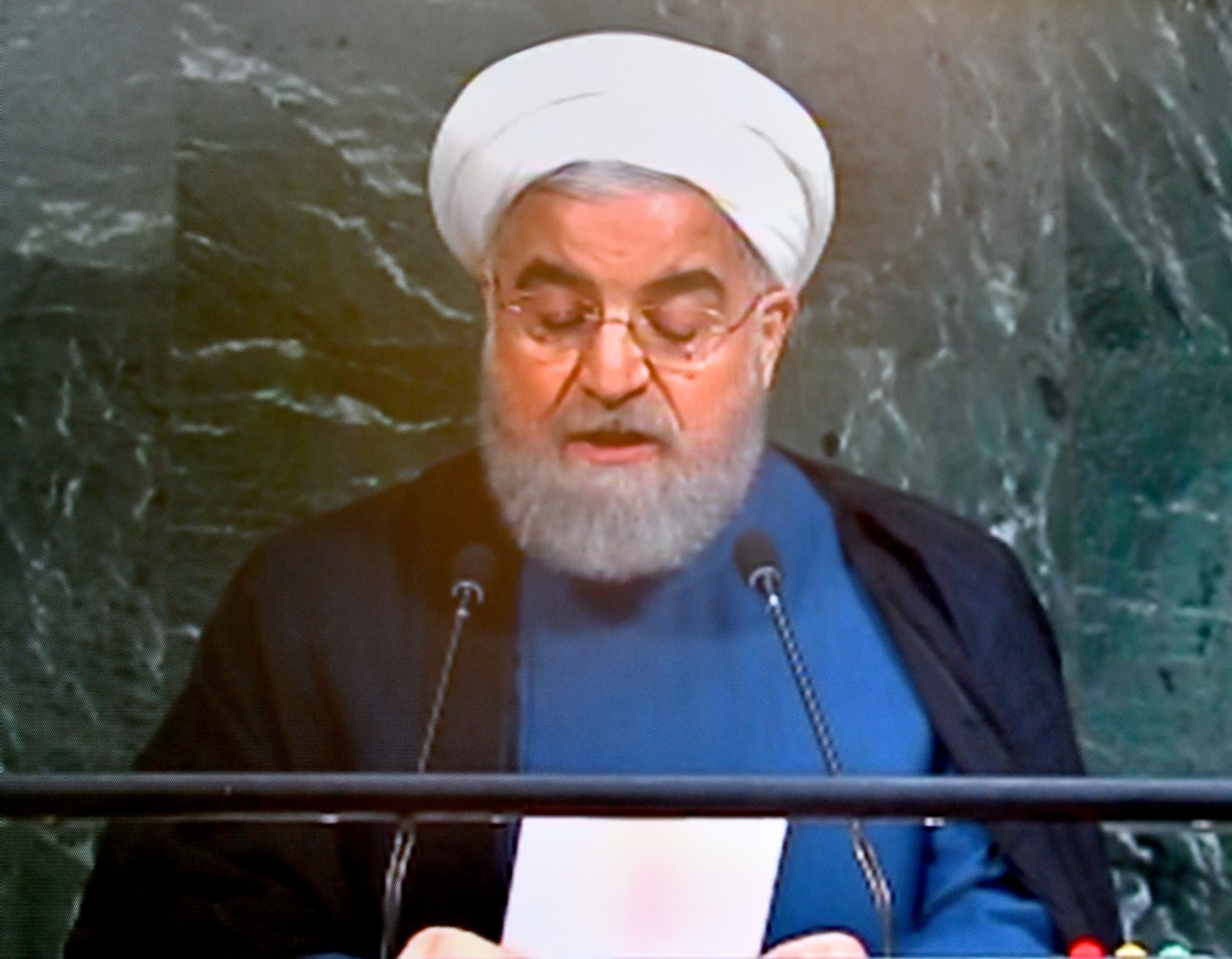
To really get a sense of who Donald Trump is as president, listen to his responses to a wide-ranging press conference, held on the day he chaired a Security Council meeting at the United Nations and the day after he delivered his address to the General Assembly, rejecting multilateralism in favor of America First sovereignty.
In his press conference, he addressed everything from the Brett Kavanaugh nomination to the Supreme Court and the Senate Judiciary Committee’s handling of sexual assault charges, to North Korea, Iran, trade agreements. He accused China of meddling in the 2018 election (by imposing retaliatory tariffs targeting farmers and Red States). He continued to boast about historic gains in the economy while attacking Democrats, Obama, and sniping at Hillary Clinton. (“If others got in, it would have been just the opposite because they were going to put restrictions on. They were going to put regulations on. They were going to choke the economy as it was already choking, but it would have been worse. And they were going to raise your taxes. That’s what they want to do now if they ever got control, which I don’t think they’ll have control for a long time.”)
He attacked Justin Trudeau of Canada while praising Kim Jong Un of North Korea, and anyone else who registered adoration.
He dismissed any suggestion that members in the General Assembly laughed at his boast of accomplishing more in his time in office than any US president in history.
“So the fake news said, ‘People laughed at President Trump.’ They didn’t laugh at me. People had a good time with me. We were doing it together. We had a good time. They respect what I’ve done. The United States is respected again. The United States was not respected. Everybody was taking advantage of us. From jobs, and taking our companies, and not paying the price — to so many other things, even military protection.”
And he managed to get a hit at “fake news” and the “failing” New York Times.
Here, then, is a minimally edited transcript of the press conference. — Karen Rubin, News & Photo Features
PRESS CONFERENCE
BY PRESIDENT TRUMP
Lotte New York Palace New York, New York
September 26, 2018
4:57 P.M. EDT
THE PRESIDENT: Thank you very much everybody. We’ve had a great three days at the United Nations in New York. And this is quite a gathering. Wow. It’s a lot of people. A lot of media. (Laughter.)
We’ve covered a great deal of territory. Just left, as you know, Prime Minister Abe of Japan. We’re starting trade talks with Japan. They were not willing, for years, to talk trade, and now they’re willing to talk trade. And I’m sure we’ll make a very good deal.
Just concluded, as you know — two days ago, signed a deal with South Korea — a trade deal. A tremendous deal with South Korea. It means a lot of business for our farmers. We’re opening up for farmers. We’re opening up for a lot of different groups.
We’re going to be able to sell much more than double the number of automobiles that we were allowed under a deal that was totally defective that was there before. And so we’re very happy with that. That deal is actually concluded.
We’re very well along the way with Mexico. The relationship is very good. And with Canada, we’ll see what happens. They’re charging us 300-percent tariffs on dairy products. We can’t have that. We can’t have that.
With China, as you know, we put out an announcement today. They would like to see me lose an election because they’ve never been challenged like this. But I want to open up China to our farmers and to our industrialists and our companies. And China is not open, but we’re open to them. They charge us 25, 35, 55 percent for things, and we charge them nothing in terms of coming into the country.
Cars, they’re at 25 percent. And we’re at 2 percent and 2.5 percent, and don’t even collect it. But we collect it now.
So we’re doing very well in our situation with China on trade. I have a great relationship with the President of China, President Xi. But it’s got to be a two-way street. It — for 25 years and longer, it was not. And trillions and trillions of dollars was taken out of the United States for the benefit of China. We just can’t have that. We have to make it fair.
So we’re at $250 billion now, at 25 percent interest. And a lot of money is coming into our coffers. And it’s had no impact on our — absolutely, by the way, no impact on our economy, which I said it wouldn’t.
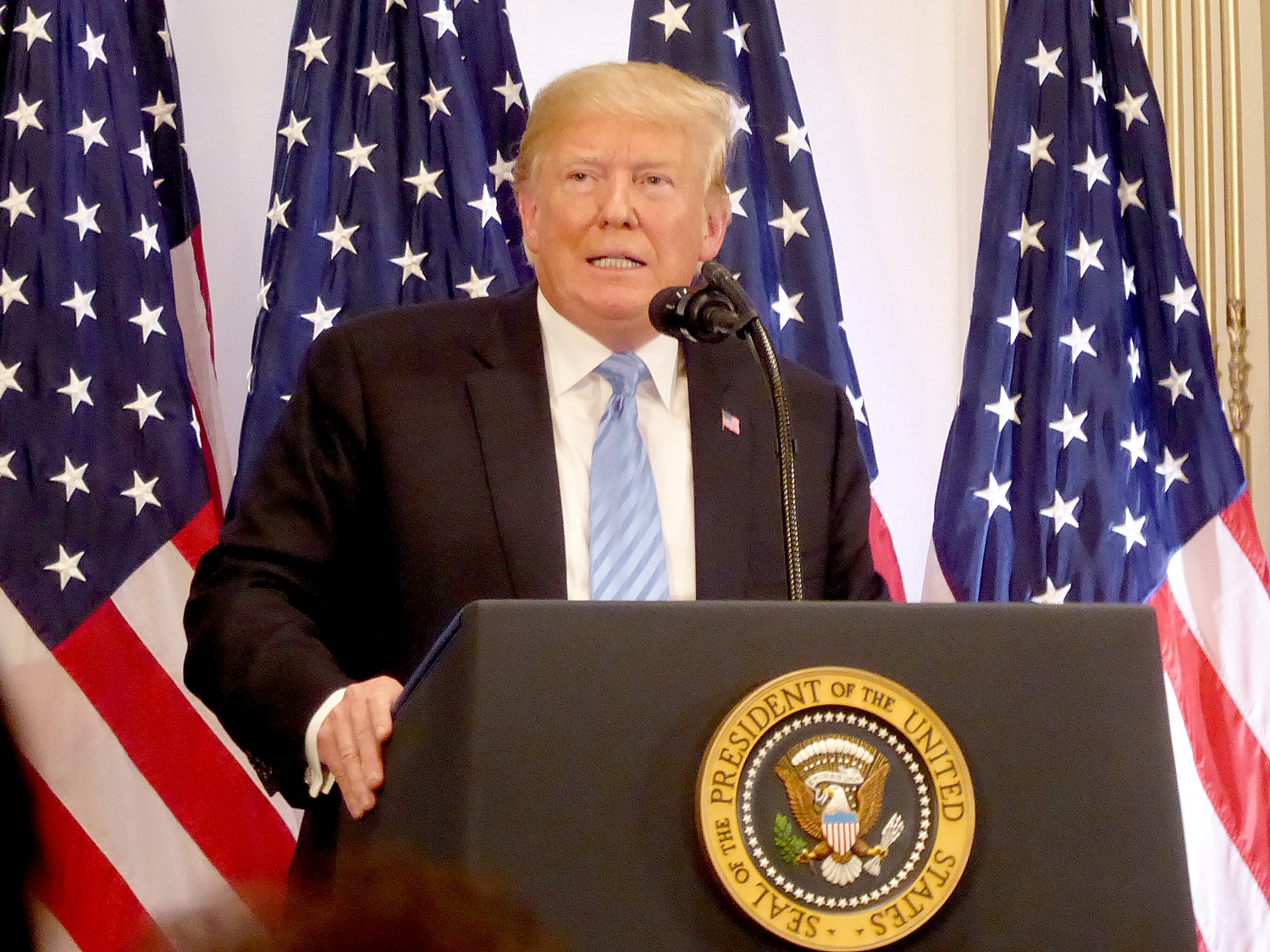
In fact, steel is like the hottest industry there is. If you look at what happened with steel, we’re charging a 25 percent tariff for the dumpers. They dump massive amounts of steel. They want to put the steel companies out of business. And after they’re out of business, they’ll come in and charge five times more than you ever thought possible. And we need steel and we need aluminum. And those industries are doing well.
But steel is incredible. U.S. Steel is opening up a minimum of eight plants. Nucor is opening up plants. And these are big plants — $750 million and a billion dollar plants, in some cases.
So what’s happening with the steel industry is very exciting to me. It’s being rebuilt overnight. If you look at the miners in coal, if you look at energy, LNG — Japan just gave us some numbers that are incredible. They’re doubling the amount that they are going to be buying for Japan. They’re taking the LNG and they’re doubling it up.
I said, “You have to do me a favor. We don’t want these big deficits. You’re going to have to buy more.” They’re buying massive amounts of equipment and military equipment, and other countries are doing the same thing. Because we have trade imbalances with almost everybody. It’s a rare exception that we don’t.
So we are doing great as a country. Unfortunately, they just raised interest rates a little bit because we are doing so well. I’m not happy about that, because I know it’s going to be a question. I am not happy about that. I’d rather pay down debt or do other things, create more jobs. So I’m worried about the fact that they seem to like raising interest rates. We can do other things with the money. And — but they raised them. And they’re raising them because we’re doing so well. You know, we’re doing much better than I had projected in terms of — when I was campaigning, I said we were going to do this and we’re doing much better than anybody ever thought possible.
And, I will say, if others got in, it would have been just the opposite because they were going to put restrictions on. They were going to put regulations on. They were going to choke the economy as it was already choking, but it would have been worse. And they were going to raise your taxes. That’s what they want to do now if they ever got control, which I don’t think they’ll have control for a long time.
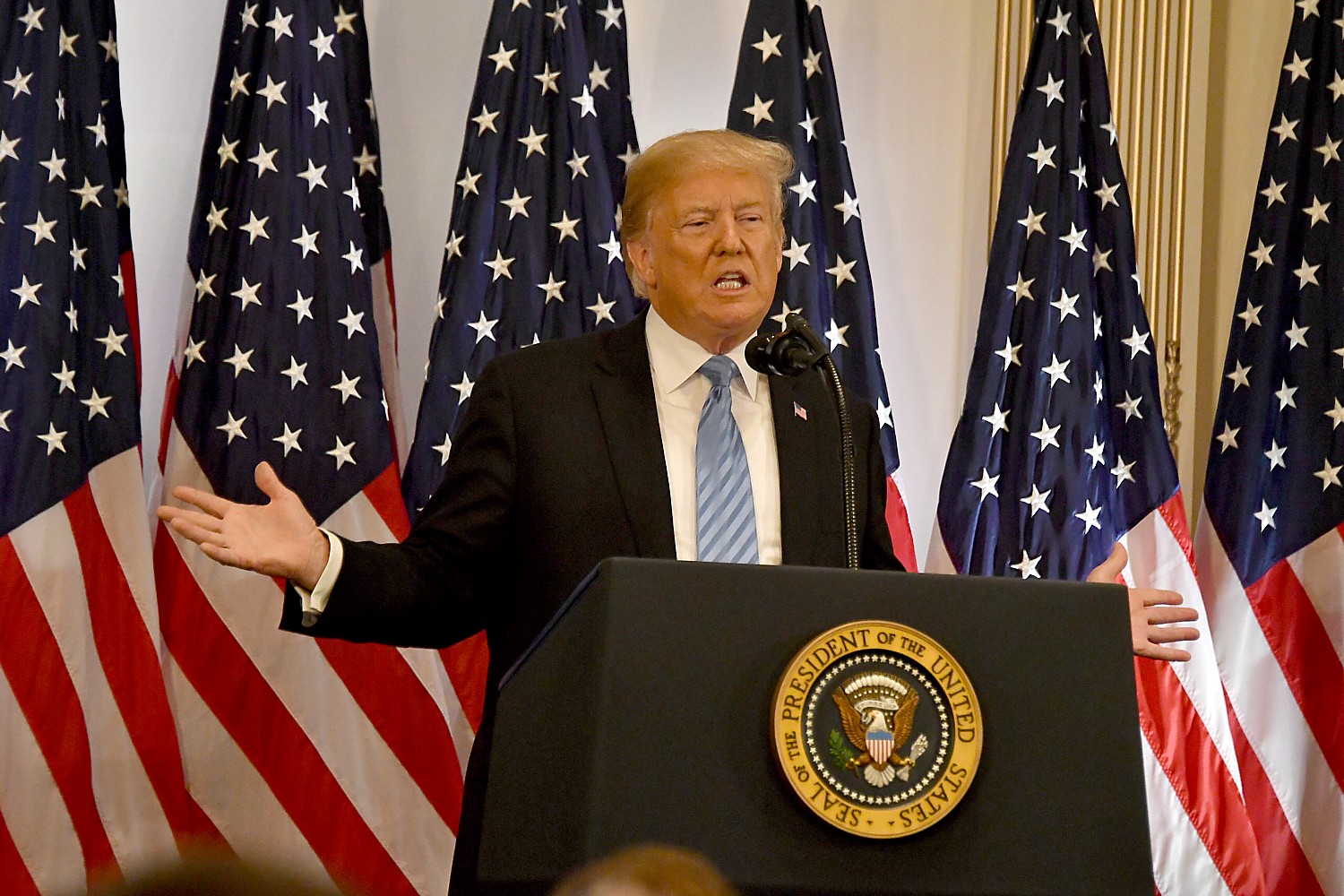
Kavanaugh Confirmation
Q In 1991, when Joe Biden passed along to the Bush 41 White House the allegations that Anita Hill had raised against Clarence Thomas, the Bush White House asked the FBI to look into it as part of Judge Thomas’s background investigation — not a criminal investigation, but the background investigation. When these allegations were raised, why didn’t this White House do the same thing? And with all of the allegations that are coming out now about Judge Kavanaugh, was there an opportunity missed here to have investigators look into this and get some sort of clarity one way or the other?
THE PRESIDENT: Well, the FBI told us they’ve investigated Judge Kavanaugh six times, five times, many times over the years. They know him very well. But here, there was nothing to investigate from at least one standpoint. They didn’t know the location. They didn’t know the time. They didn’t know the year. They didn’t know anything. And it’s like, where do you go?
Also, it’s not for the FBI. If you look at what Joe Biden said, he said, “They don’t do this.” And he said it very clearly.
So I think when you really look at it all, it’s not going to change any of the Democrats’ minds. They’re obstructionists. They’re actually con artists because they know how quality this man is and they’ve destroyed a man’s reputation and they want to destroy it even more.
And I think people are going to see that in the midterms. What they’ve done to this family, what they’ve done to these children — these beautiful children of his — and what they’ve done to his wife. And they know it’s a big, fat con job.
And they go into a room and, I guarantee you, they laugh like hell at what they’ve pulled off on you and on the public. They laugh like hell. So, it wouldn’t have mattered if the FBI came back with the cleanest score. And you understand that very well, John. If they would have come back with the most perfect — “We found everything, and he’s perfectly innocent of everything.” It wouldn’t have made a difference. You wouldn’t have gotten one vote.
Now we will get votes from the Democrats if we win. You’ll have three, four, or five Democrats giving us votes, because they’re in states that I won by 30 and 40 points and they’re going to give us votes.
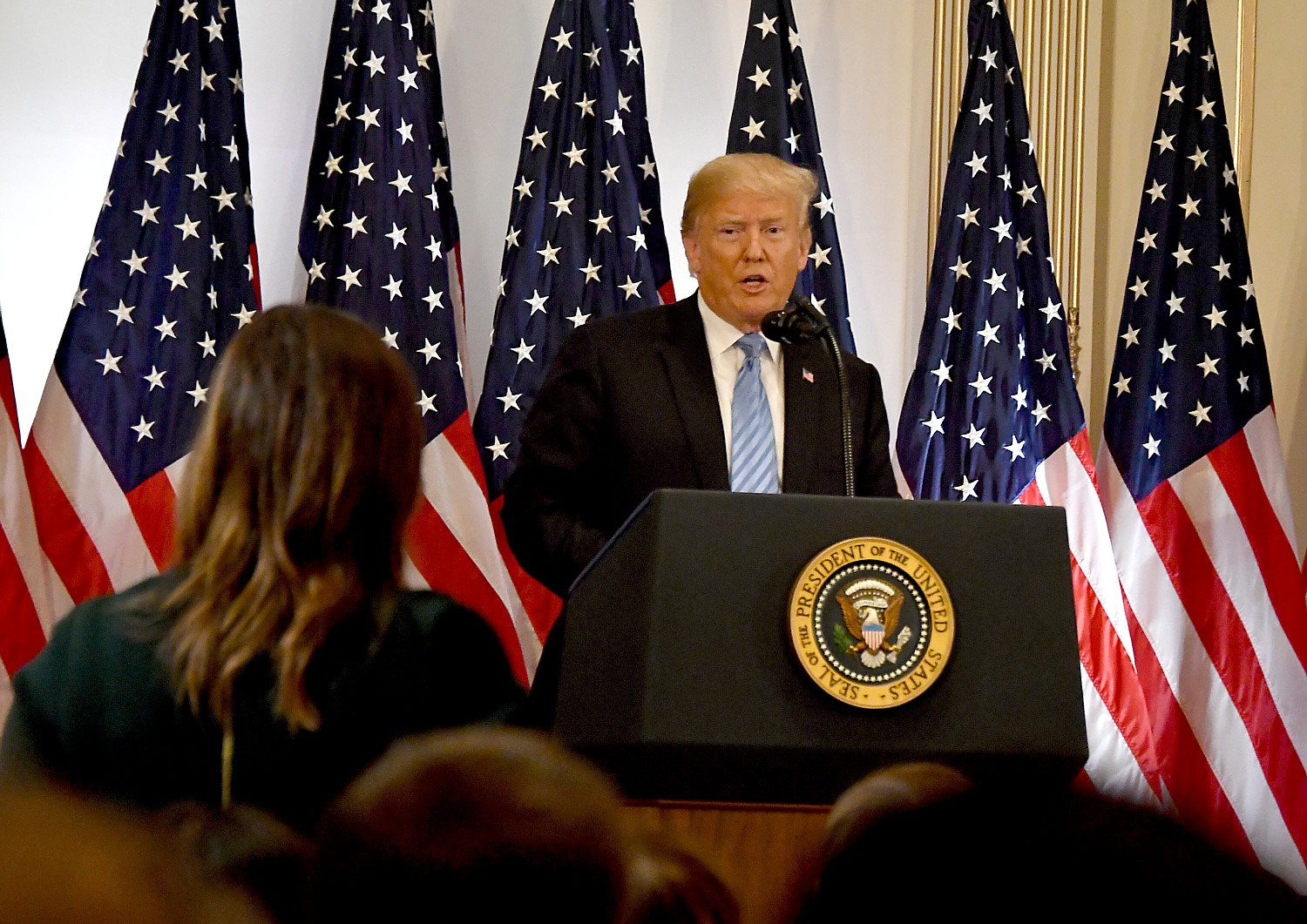
Q Mr. President, there are now three women accusing Judge Kavanaugh of sexual misconduct. Are you saying that all three of those women are liars? Is there anything that can be said at this point tomorrow that could cause you to withdraw the nomination? Anything at all that —
THE PRESIDENT: I won’t get into that game. I’ll only tell you this: This is one of the highest quality people that I’ve ever met, and everybody that knows him says the same thing. And these are all false — to me, these are false accusations in certain cases. And certain cases, even the media agrees with that.
I can only say that, what they’ve done to this man is incredible. You know, it’s very interesting — I pick a lot of judges. I have 145 judges I will be picking by the end of a fairly short period of time because President Obama wasn’t big on picking judges. When I got there, I said, “How is this possible?” I have 145 — including court of appeals — judges. And they just didn’t do it. You know why? They got tired. They got complacent. Something happened. I have 145 judges.
Everybody wants to be a federal judge. Not just a Supreme Court judge, I’m talking about court of appeals; I’m talking about district court. I don’t think they’re going to want to so much. I’ll be calling people, and we’ll have people calling people that do this. And people are going to be scared because we could say it about you, “Thirty-five years ago, you met some…” — and you might know — you might not know what’s going on.
What is going on? Why did they wait so long? Why did Senator Feinstein wait until the hearings were over and make this case? Why didn’t she bring it right at the beginning? When you ask about, as an example, the FBI — why didn’t they bring this right at the beginning, during the hearing? You would have had all the time in the world for the FBI. It would have been fine.
Now the FBI, as you know, did investigate this time, as they have five or six other times. And they did a very thorough investigation. But this is a big con job. And I would love to be in the room with the Democrats, close the door — you guys are all away, outside, waiting. And Schumer and his buddies are all in there laughing how they fooled you all. Let’s just stop them. A big fat con.
Q But, Mr. President, if I could follow up. You have daughters. Can you understand why a victim of sexual assault would not report it at the time? Don’t you understand —
THE PRESIDENT: People are going to have to make a decision. Thirty-six years, there’s no charge. All of a sudden, the hearings are over and the rumors start coming out.
And then you have this other con artist, Avenatti, come out with another beauty today. I only say that you have to look at the facts. The senators are very capable people. They’re very good people. I know many of them. They’re friends of mine. These are very talented, very good people. And they’re going to vote. They’re going to believe what they believe.I can — when I look at what’s happened to the reputation of a great gentleman — a great intellect; a brilliant man; somebody that has a chance to be one of our great Supreme Court Justices in history, intellectually — I think it’s a shame.

Cuba
Q Mr. President, yesterday at the speech at the U.N., you spoke about how Venezuela’s problem was because of Cuba and the Castros — how they went in there and they brought socialism and communism to Venezuela, and now to Nicaragua as well. Mr. President, are you going to be more proactive now against Cuba as well?
THE PRESIDENT: I’ve been very proactive against Cuba. I don’t like what’s happening in Cuba. As you know, President Obama gave them a pass and I didn’t like it. Neither do Cuban people based in Miami and based in our country that came from Cuba and suffered in Cuba.
I don’t like what he did. I’ve ended much of it — most of it. I don’t like what’s happening in Cuba, and I certainly don’t like what’s happening in Venezuela.
Q You said also that you had a call-to-action to ask the leaders around the world to also end socialism. Would you like to be recognized as —
THE PRESIDENT: Well, I wouldn’t say that socialism has been working really well around the world, okay. You can take a look at Venezuela as your number one — your number one — I guess, the one that is most obvious. But you take a look around the world, socialism is not exactly riding high.
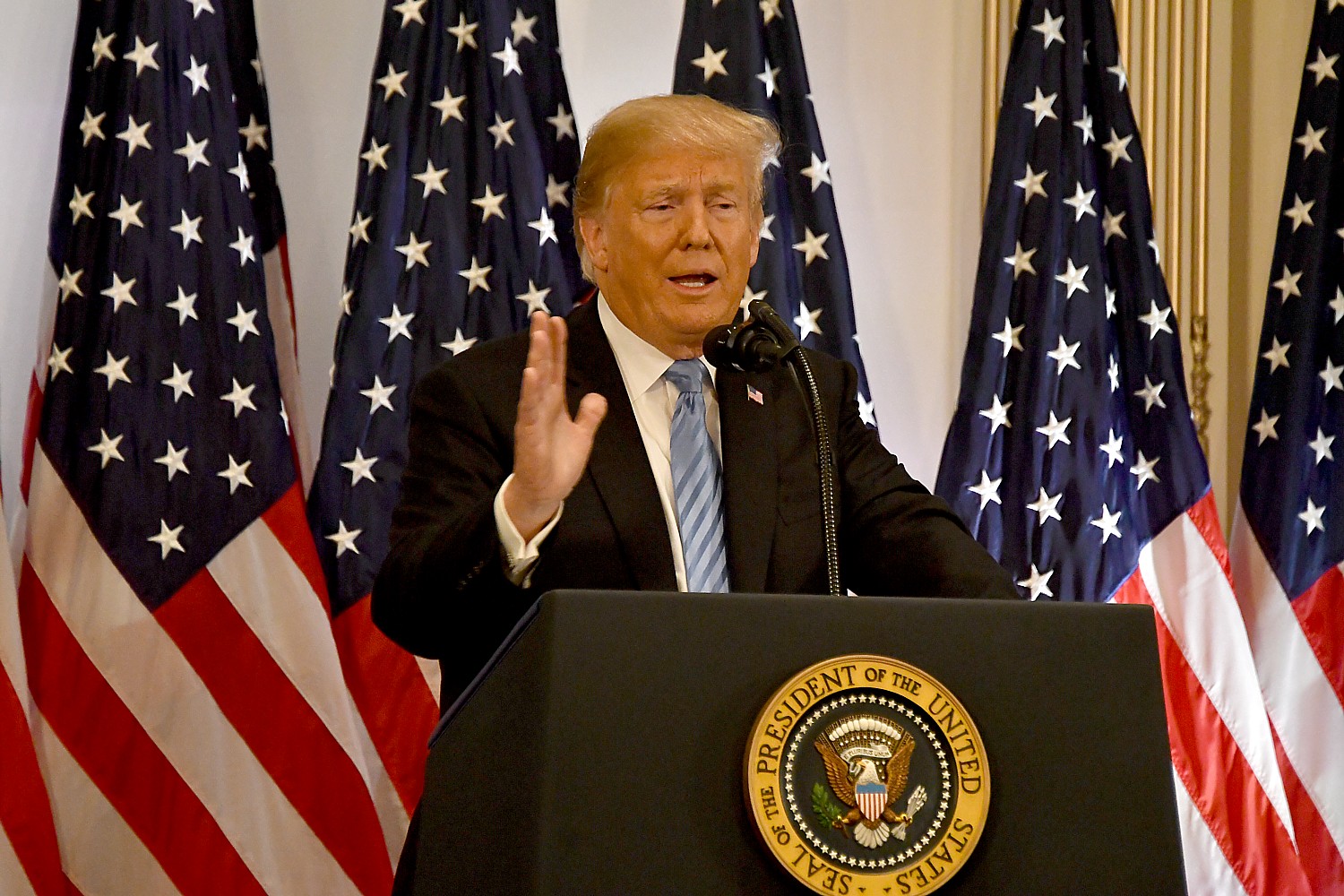
Standing By His Men
Q Why is it, Mr. President, that you always seem to side with the accused and not the accuser? You have three women here who are all making allegations, who are all asking that their stories be heard. And, you know, if you look at the case of Roy Moore, if you look at the case of one of your staffers, you seem to, time and again, side with the accused and not the accuser. Is that because of the many allegations that you’ve had made against you over the years?
THE PRESIDENT: Well, first of all, I wasn’t happy with Roy Moore. Let’s get that straight. But Roy Moore was a Republican candidate —
Q But you stood by him.
THE PRESIDENT: — and I would have rather had a Republican candidate win. I was very happy with Luther Strange, who was a terrific man from Alabama, but Luther Strange had a lot of things going against him.
As far as women, whether it’s a man or a woman, these are — you know, it can happen the other way. Allegations can go the other way also. You understand that. And whether it was a man or a woman, 30 years ago, 36 years ago — in fact, they don’t even know how many years ago because nobody knows what the time is. That’s a long time.
And I could pick, as an example — hopefully I won’t have to do it as a replacement because hopefully this is going to go very well on Thursday. It’s going to go very well on Monday, or Saturday, or Sunday, or whenever they vote. But I could pick a woman and she could have charges made from many years ago also.
Q First of all, do you think these women — all three of them are liars? Yes or no?
THE PRESIDENT: I can’t tell you. I have to watch tomorrow. I have to read. I just heard about one a little while ago. I can tell you her lawyer is a low life, okay? So I can’t tell you whether or not they’re liars until I hear them.
I don’t know what happened today because I’ve been very busy with Japan, with South Korea, with China, and about seven other countries, as you know — and I chaired the Security Council.
So I don’t know about today’s person that came forward. I do know about the lawyer. And you don’t get much worse — bad reputation, too. Take a look at his past.
So, as far as the other women are concerned, I’m going to see what happens tomorrow. I’m going to be watching — you know, believe it or not. I’m going to see what’s said. It’s possible that they will be convincing.
Now, with all of that being said, Judge Brett Kavanaugh has been, for many years, one of the most respected people in Washington. He’s been on — I guess you’d call it the second highest court. And every single person knows him; a lot of people know him well. And those people don’t believe what’s going on. I can always be convinced. I have to hear it.
Q It sounds like what you’re saying is, there is a situation, there is a scenario under which you would withdraw Brett Kavanaugh’s nomination. Is that correct? And have you talked about that with him?
THE PRESIDENT: If I thought he was — if I thought he was guilty of something like this, yeah sure.
THE PRESIDENT: I want to watch. I want to see. I hope I can watch. I’m meeting with a lot of countries tomorrow, but I will certainly, in some form, be able to watch. And I’ll also rely on some very fair and talented Republican senators who — look, if we brought George Washington here and we said, “We have George Washington,” the Democrats would vote against him, just so you understand.
And he may have had a bad past, who knows, you know. (Laughter.) He may have had some, I think, accusations made. Didn’t he have a couple of things in his past? George Washington would be voted against 100 percent by Schumer and the con artists. I mean 100 percent. One hundred percent.
So it really doesn’t matter from their standpoint. That’s why when John asked about the FBI — if the FBI did the most thorough investigation in the history of the FBI, and they found him to be 100-percent perfect, he would lose every single vote.
Now, if the Republicans win tomorrow, I think you’re going to get some votes from the Democrats. You know why? Because — we all know why — because it’s called politics. Then you’ll probably get some votes.
Q Has there ever been an instance when you’ve given the benefit of the doubt to a woman?
THE PRESIDENT: I’ve known them. Hallie, I’ve know them for a long time and — a lot of these people. A lot of people. And some I’ve been disappointed with. I have been disappointed with some. Others, like — you know, there are charges that are pretty weak.
But I’ve known people for a long time. I never saw them do anything wrong. I never saw them do anything wrong. And there are some that probably — I agree. I can tell you there are some that I — I’ve been watching for a long time. And in a couple of cases, they weren’t Republicans. In a lot of cases, they were not; they were exactly the opposite.
But I’ve been watching them for a long time. And I knew for a long time these were not good people. And they were never brought up.

I Was Accused…Fake News
Q How have your personal experiences being accused by more than a dozen women of sexual misconduct —
THE PRESIDENT: I’ve been accused. I’ve been accused. False accusations.
Q — right, how have those —
THE PRESIDENT: Excuse me. I’ve been accused. And I was accused by — I believe, it was — four women. You can check with Sean Hannity. You can check with Fox, because they covered it very strongly — who got paid.
Q And how has (inaudible) —
THE PRESIDENT: Excuse me. Excuse me. I was accused by four or five women who got paid a lot of money to make up stories about me. We caught them, and the mainstream media refused to put it on television. They refused to even write about it.
There were four women, and maybe more — I think the number is four or five. But one had a mortgage paid off her house, $52,000. Another one had other things happen. And the one that reported it, I believe, was offered $750,000 to say bad things about me — and she is the one that reported it. This woman is incredible. She reported it, instead of taking the money.
So I’ve had numerous accusations about me.
Q Right.
THE PRESIDENT: I mean, they made false statements about me, knowing they were false. I never met them. I never met these people. And, what did they do? What did they do?
They took money in order to say bad things. I’ve had stories written in the New York Times — front page — about four women. The whole top center front page of the New York Times. I think it was four big pictures.
I said, “Wow. That’s a big thing. What’s that?” These were women that were quoted saying bad things about me. Not the worst things about me, but bad things. And I said, “Gee, that’s too bad.” I knew them a long time ago — 15 years ago, 20 years ago. I said, “That’s too bad. I’m surprised at them.”
And then all of a sudden I see them on television — nothing to do with me. The next day or a day later, they were incensed. They said, “Donald Trump is a nice guy. We never said this. The New York Times did false reporting. They’re fake news.” And you know what? The New York Times would not report that their story was fake.
These women said great things. Not only did they not say the bad stuff, they said great things about me. Front page. And those women — they’re incredible women — they went on television — and they didn’t want to, and I didn’t ask them. And they said, “The New York Times made it up. They gave false quotes.” And they went on a lot of shows. They were really incensed and they couldn’t believe it.
That’s why people know that a lot of the news is fake. And a lot of the people sitting here are fake. But 20 percent of them are wonderful. Okay?
Q If I could just actually ask my question, Mr. Trump. I — you didn’t let me ask my question.
THE PRESIDENT: You’ve been asking a question for 10 minutes, all right?
Q No, you interrupted my question.
THE PRESIDENT: Please sit down. Please.
Q I’m asking you —
THE PRESIDENT: Go ahead. Go ahead.
Q — how did those impact your opinions on the allegations against Judge Kavanaugh?
THE PRESIDENT: Well, it does impact my opinion. You know why? Because I’ve had a lot of false charges made against me. I’m a very famous person, unfortunately. I’ve been a famous person for a long time. But I’ve had a lot of false charges made against me — really false charges.
I know friends that have had false charges. People want fame. They want money. They want whatever. So when I see it, I view it differently than somebody sitting home watching television, where they say, “Oh, Judge Kavanaugh…” this or that.
It’s happened to me many times. I’ve had many false charges; I had a woman sitting in an airplane and I attacked her while people were coming onto the plane. And I have a number-one bestseller out? I mean it was total phony story. There are many of them.
So when you say, does it affect me in terms of my thinking with respect to Judge Kavanaugh? Absolutely. Because I’ve had it many times.
And if the news would have reported these four people — I couldn’t believe it. When I heard that they caught these four people, I said, “Wow. That’s a big story.” And it was — for Fox. Okay.

Accuses China of Meddling in 2018 Elections
Q Earlier today and just now, you made a significant allegation against the Chinese government. You suggested that the Chinese had meddled in or are meddling in the 2018 midterm elections.
THE PRESIDENT: That’s what I hear.
Q What evidence do you have of that, sir? Is there a national intelligence estimate, for example, that you’re prepared to put forward?
THE PRESIDENT: We have evidence. We have evidence. It’ll come out. Yeah, I can’t tell you now, but it came — it didn’t come out of nowhere, that I can tell you.
Now, if you — they’ve actually admitted that they’re going after farmers. I mean, I think most of you can cover that.
I like that you’re shaking your head, “yes.” I’m going to ask you the next question because of that. Okay? It’s probably going to be the killer of all questions. (Laughter.) But let me just explain —
Q But why make the charges now —
THE PRESIDENT: No, no, no. Let me —
Q — if you’re not prepared to come forward with the evidence, sir?
THE PRESIDENT: China, now, put on $250 billion, and they’re paying 25 percent on that. They’re paying billions and billions. This has never happened to China. And I like China. And I like President Xi a lot. I think he’s a friend of mine. He may not be a friend of mine anymore, but he — I think he probably respects —
From what I hear — if you look at Mr. Pillsbury, the leading authority on China — he was on a good show — I won’t mention the name of the show — recently. And he was saying that China has total respect for Donald Trump and for Donald Trump’s very, very large brain. He said, “Donald. Donald Trump. They don’t know what to do.” It never happened.
Well, one thing they are trying to do is they are trying to convince people to go against Donald Trump. Because a normal, regular, political person that has no concept of what the hell he’s doing would let China continue to take $500 billion a year out of our country and rebuild their country.
I mean, they were building 29 massive bridges like the George Washington Bridge. They’re building things that we don’t build anymore. But we’re starting to build them again.
And our economy now is hotter than it’s ever been. I don’t know you if you saw the confidence levels this morning that just came out. Fantastic.
And in all fairness to the Fed raising rates, they’re raising rates because we’ve never done like we’re doing now. And one of the things that is nice about the rates — the people that were hurt the worst by these zero interest rates and, you know —
When President Obama had an economy that was — it was the worst comeback since the Great Depression and all that — you’ve all heard that. But remember, he was playing with zero-interest money. He was playing with funny money. That’s easy. I’m playing with fairly expensive money.
So when he does that, the people that benefit are people that actually — in their whole life, they would save 10, 15, 20 percent of their salary and put it in the bank. Those people got killed because they put their money in the bank. They were going to live off the interest, and there was no interest.
Now, those people are starting to get interest. And those are the people, frankly, that deserve to — you know, they did a great job. The people that did it right, the people that did the best job got hurt the most.
So in one sense I like it, but basically I’m a low-interest-rate person. I hate to tell you.
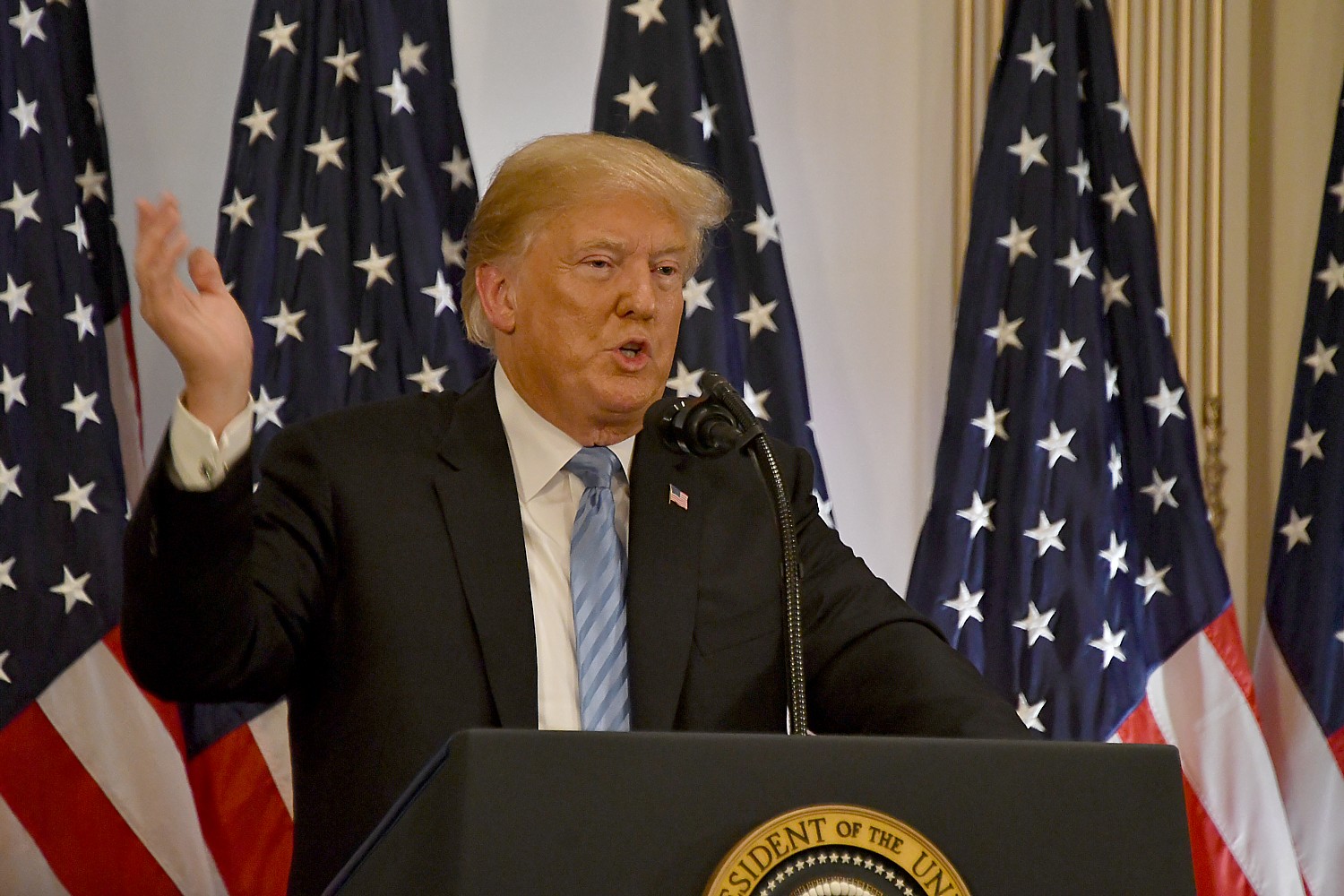
Fire Rod Rosenstein?
Q Are you planning to fire Rod Rosenstein?
THE PRESIDENT: I’m talking to him. We’ve had a good talk. He said he never said it. He said he doesn’t believe it. He said he has a lot of respect for me, and he was very nice and we’ll see. And he’s a member of the Trump administration, in that sense; it’s the Justice Department.
I would certainly prefer not doing that. There was no collusion. There was no obstruction — I mean, unless you call obstruction the fact that I fight back. I do fight back. I really fight back. I mean, if you call that obstruction, that’s fine.
But there’s no obstruction. There’s no collusion. I’m going to meet with him tomorrow. I may call Rod tonight or tomorrow and ask for a little bit of a delay to the meeting, because I don’t want to do anything that gets in the way of this very important Supreme Court pick. So I don’t want it competing and hurting the decision — one way or the other decision. Again, I want to hear what she has to say.
But I want to do — so I may delay that. I’m going to see. I don’t want to do anything that’s going to conflict with that. But my preference would be to keep him, and to let him finish up.
You know, I call it a “witch hunt.” And it is a witch hunt. If you look at the FBI statements with Strzok and his lover Lisa Page. If you look at all of the things that have gone on in the FBI. If you look at McCabe taking $700,000 from a Hillary Clinton-PAC essentially run by Terry McAuliffe, who’s her best friend in the world, and he gives them hundreds of thousands of dollars. And he’s in charge of her campaign, and his wife is getting all of this money to run — she lost — to run. I mean, what’s going on?
If you look at the horrible statements, like “Way to go, Page. Great story you put into a newspaper.” Essentially, now we’ll go and investigate that group. It’s terrible. We have caught people doing things that are terrible.
I would much prefer keeping Rod Rosenstein. Much prefer. Many people say I have the right to absolutely fire him. He said he did not say it. He said he does not believe that. And nobody in this room believes it.
By the way, I deal with the people in this room. I was with Mike Pompeo before, and we were dealing, at a very high level, with Japan. And I was saying things that nobody in the room even understood. And I said them a long time ago, and I was right. He said, “That’s not the 25th Amendment that I’m looking at.” I think I can say that from Mike.
Q So you don’t think anyone in your administration has ever discussed using the 25th Amendment against you?
THE PRESIDENT: I don’t think so. Well, yeah — enemies, sure. You use anything you can.
Q Was it in your administration or your Cabinet?
THE PRESIDENT: Hey, you use anything they can. They’re not in love with me. They’re not going to beat me in the election; they know that. They’re not going to beat me. The people that I’m looking at are total lightweights. I dream of running against those people.
Q But within your administration?
THE PRESIDENT: Maybe they’ll come up with somebody that’s not — they’re not going to beat me. I’m against what they want to do. I’m in favor of law enforcement. I’m in favor of safety and security, and low taxes. I want low taxes.
I want borders. We’re getting another $1.6 billion in borders. I want borders. We’ve spent $3.2 [billion] and we’re getting another $1.6 [billion]. And then eventually, we’re getting the whole thing and we’ll complete the wall.
They don’t want that. They don’t want that. They don’t want the things that I have.
Now, I must say, I know many of the Democrats. They’ll say things and then wink at me. And again, it’s the same old story. They’ll say things; they don’t mean it. Its politics. The reason they don’t want me is because they want to run the show. They want it. It’s power. It’s whatever you want to call it. But what they’ve done here is a disgrace. A total disgrace.
And what they do — I know, it’s sort of interesting — in one case, they say, “He’s a fascist. He’s taking over the government. He’s the most powerful President ever. He’s a horrible human being. He wants to take over the entire government, and he’s going to do it. We can’t stop him.” That didn’t work.
The next week, he said, “Uh, he’s incompetent.” I said, “Well, wait a minute.” In one case, I’m taking over the world. And in the other case, “He’s incompetent.” They tried that for a week. That didn’t work.
Look, these are very dishonest people. These are con artists. And the press knows it, but the press doesn’t write it.
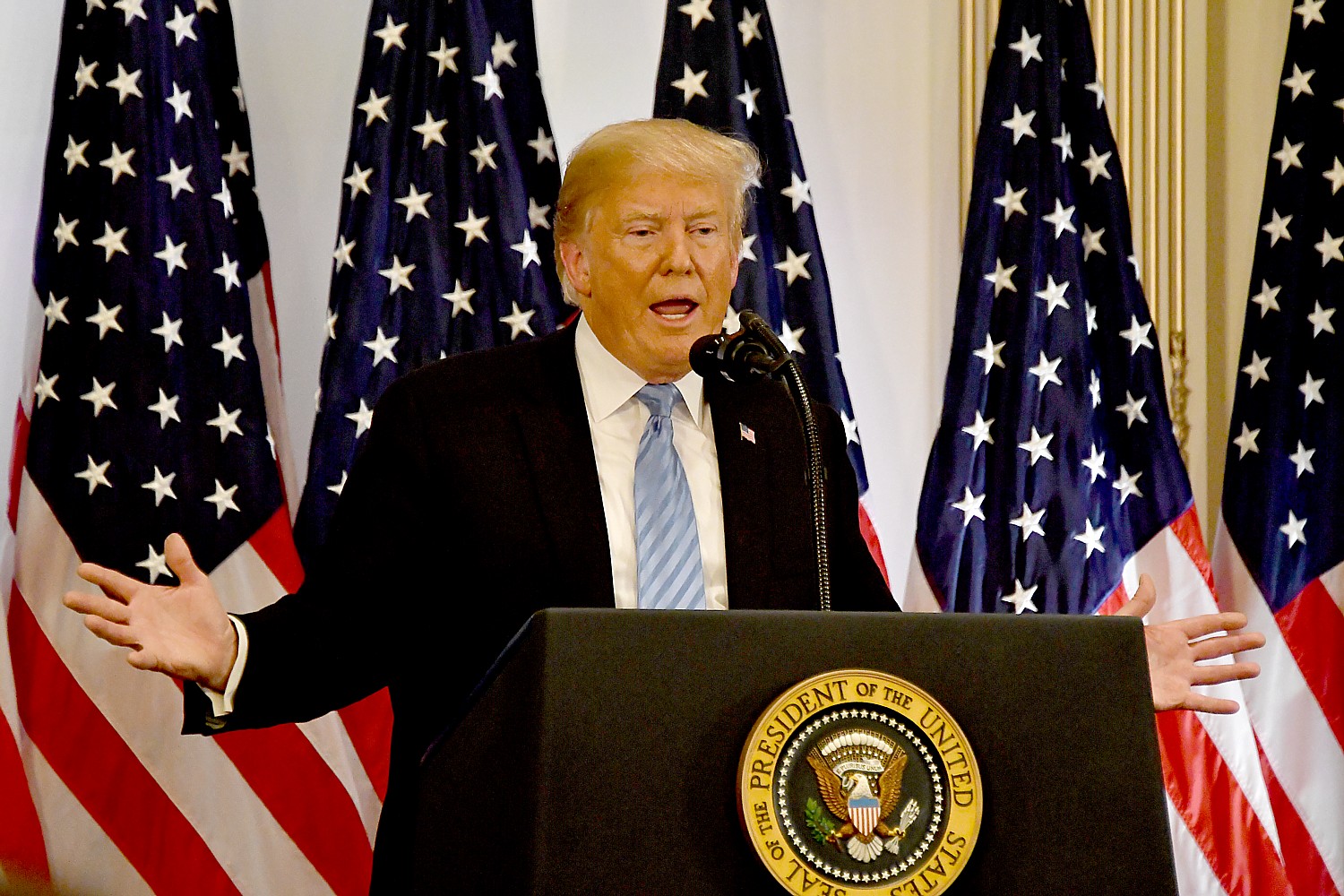
No Timeline for North Korea
Q You’re getting letters from Chairman Kim. Why do you need a second summit with the North Korean leader so soon? And what do you —
THE PRESIDENT: Because he’d like it.
Q What would it be for?
THE PRESIDENT: So I’ve received two letters from Chairman Kim. At some point, I’ll, you know, give these letters — they’re incredible letters. They’re letters that are magnificent in the sense of his feeling for wanting to get this done. I really believe he wants to get it done. I may be wrong.
I heard somebody on a certain network last night — I won’t mention which one — say, “Why has President Trump given so much to North Korea?” I said, “Wait a minute.” I asked Sarah Huckabee, “Please call this person.” I gave nothing — other than I met. What did I give them?
I didn’t do what Obama did: Give them $1.8 billion in cash to get back four hostages. I got back our hostages; I never paid them anything. I haven’t paid them 10 cents.
But he wants to make a deal and I’d like to make a deal. We actually have a very good relationship together — a lot different than the last time I was at the United Nations. That was a little bit rough.
Don’t forget, that time, they said, “Oh, Trump is saying these horrible things. He’s going to get us into a war.” You were going to have a war. If I wasn’t elected, you’d be in war. And President Obama essentially said the same thing. He was ready to go to war.
You would have had a war, and you would have lost millions, not thousands. You would have lost millions of people. Seoul has 30 million people — 40 miles and 30 miles from this very dangerous border. If I wasn’t elected, you would have had a war.
President Obama thought you had to go to war. You know how close he was to pressing the trigger for war? Millions of people. With me, nobody is talking about that. Nobody is talking about that.
We have a very good relationship. He likes me. I like him. We get along. He wrote me two of the most beautiful letters. When I showed one of the letters — just one — to Prime Minister Abe, he said, “This is actually a groundbreaking letter. This is an incredible — this is a historic letter.” And it is a historic letter. It’s a beautiful — it’s a beautiful piece of art. And I think we’re going to make a deal.
Will we make a deal, Steve? I don’t really know. But I think we’re going to.
In the meantime — and I’ve said it a thousand — I don’t want to bore you: no rockets, no missiles, no nuclear tests — you know, for over a year, where you haven’t seen.
Before I got here, everybody in this room thought you were going to war. And then what happened — it was funny — they said, “He was terrible. He was so rough with Chairman Kim — Kim Jong Un. He was so rough. It’s terrible. He’s going to cause…”
Well, I had a great meeting with President Putin. And on that one, they said, “He was too soft with President Putin.” I had a great meeting with the President. It lasted for two hours. We discussed everything: Ukraine, Syria, Israel and Israel’s protection. We had a great meeting. They wanted me to end up in a boxing match.
And you know what? If I was killer-tough with President Putin, they would have said, “He was too tough.” You can’t win with these people, but you just keep going. In the meantime, we’re doing well.
Q How long do you think it should take North Korea to denuclearize?
THE PRESIDENT: I don’t know. I don’t want to get into —
Q We’ve seen estimates of one year, two year —
THE PRESIDENT: Steve, I don’t want to get into the time game. You know why? I told Mike Pompeo, I said, “Mike, don’t get into the time game.” We stopped them. They’re taking down plants. They’re taking down a lot of different testing areas. They’re going to take down some more. You’ll be hearing about that very soon. I don’t want to go ahead of myself, but you’ll be hearing about it soon. They have no interest right now in testing nuclear.
You know, we had a case just about when I was coming into office — you all remember it — where there was a massive — they thought it was an earthquake. A mountain moved over an inch and a half. We’re talking about mountains. You know, North Korea is very mountainous. Beautiful land. Beautiful. This mountain actually shifted. It shifted. And somebody thought it was an earthquake. And then they found out, no, this was nuclear testing. Shifted a mountain. Now I’m talking about serious stuff. Serious size.
When I came in, and certainly before I came in — and even at the beginning of mine because when I was having rhetorical contests — you know, contests, really, I guess you could call it — with Chairman Kim, which we both smile at now and we laugh at. But everybody thought that was a horrible thing.
We’ve had — many Presidents were unable to do anything, anything at all with North Korea. We now have a good relationship. We have a good relationship. And most importantly, all of the things that you’ve been hearing about –the horror stories — in my opinion, they’re gone.
Now, could they start up again? Yes. I’m a deal guy. Could they start? Yeah. Could be that we don’t work it out.
I think — I have it right here — I think that what we’ve done behind the scenes, which nobody really knows about — and I don’t blame you for not knowing about, you know, personal letters, private letters. But saying they want to get it done. We know much more than the media for a change. Much more. But if you saw what’s going on behind the scenes, I think you’d very impressed.
We were a country going to war. I really believe that President Obama would admit that he said it’s by far his biggest problem. When I sat with him, prior to going to office — going into office, he said to me that’s by far the biggest problem. And he said to me that he was very close to going into war.
And millions of people — not — you know, I — they say, “Oh, thousands of people…” No, no, no, not thousands. Millions of people would have been killed. And that could have left — you’re right next to China. You’re right — that could have been a world war very easily.
Right now, we’re in a great position. I don’t want to play the time game. I told Mike Pompeo, “Don’t let them do that to you.” I haven’t given anything.
And all of a sudden — we got back, it was a few weeks ago. I think we were back like two and a half months from the summit, which was a great success. And people are screaming, “What’s taking so long?” I said, “Oh, I get it.” You got to understand the media. I’ve been dealing with the media all my life. Too much. Too much.
They’re screaming and I saw that. And our guys were — and not Mike — but our guys were being, “Oh well, we’re working as fast…” I said, “I got all the time in the world. I don’t have to rush it.” There’s no — you know, secession of sanctions. We got the sanctions on. I didn’t take any sanctions off.
I did see a reporter last night — a guy I like, personally, a lot. And he asked a question to President Moon of South Korea. He said, “Why did the President give so much?” I didn’t give anything. I gave nothing. What have I given, other than some time? Yes, I flew to Singapore. We had a meeting.
Now, giving would be if I took the sanctions off. I didn’t want to do — if you asked General Mattis, for a year and a half, I said, “Why don’t we stop these ridiculous,” in my opinion, “the military games?” I call them the “military games.” If I told you how much those games cost — and, frankly, I told South Korea, “You should be paying for these games.” We pay for them.
They say, “Well, we fly the planes in from a short distance away.” I said, “Where is that?” “Guam.” “Oh, huh. How long a trip is that?” “Seven hours.” “Oh, great.” We’re flying these massive bombers and everything. I’ve wanted to stop this for a long time. I consider that an asset.
But we’ve done — we’re saving, by the way — just for the taxpayer, we’re saving a fortune. And if we need them, we can start them up immediately. If I think we need them, I’ll start them before the generals will start them.
The fact is, this reporter said that. I said, “What have we done? I haven’t given anything.” And we’re really onto the cusp. I think we’re really going to do something that’s going to be very important.
But we’re not playing the time game. If it takes two years, three years, or five months, it doesn’t matter. There’s no nuclear testing and there’s no testing of rockets.
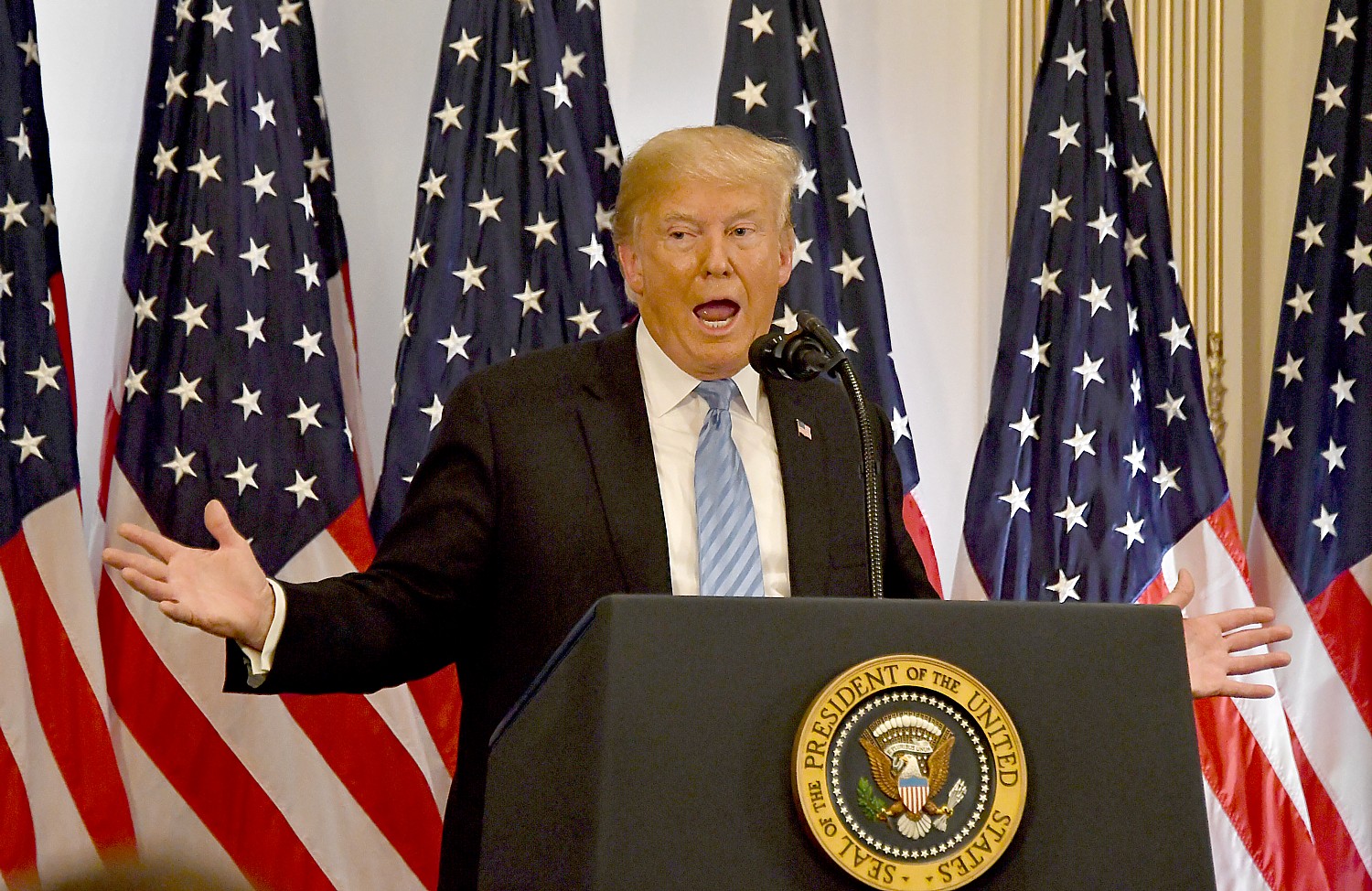
Democrats’ Con Job
Q Are you at all concerned at the message that has been sending — being sent to the women who are watching this when you use language like “con job” in relation to allegations of sexual assault?
THE PRESIDENT: Oh, I’ve used much worse language in my life than “con job.” That’s like probably the nicest phrase I’ve ever used. I mean, con job — it is. It’s a con job. You know, confidence — it’s a confidence job. But they short — it’s a con job by the Democrats. They know it.
Q What about the message that’s being sent to women who are watching?
THE PRESIDENT: They did the same thing with the Russia investigation. They tried to convince people that I had something to do with Russia. There was no collusion.
Think of it. I’m in Wisconsin. I’m in Michigan. I say, “Gee, we’re not doing well.” I won both those states. “We’re not doing well. Uh, let me call the Russians to help.” Does anybody really believe that? It’s a con job.
And I watch these guys — Little Adam Schiff, and all of the guys. He takes a call from a Russian who turned out to be a faker. You know, he was a comedian or something. “This is so-and-so calling for…” — he took the call. Why is the taking a call from a Russian?
Senator Warner took a call from a Russian. He was a comedian or something, but he said, “We have pictures of President Trump.” “Oh, where can I get them?” If we ever did that, it would be like a big deal.
Yeah, it’s a con job. And it’s not a bad term. It’s not a bad term at all.
THE PRESIDENT: I’ll tell you one thing I can say: I’ve had a lot of people talking about this to me, with respect to what’s happening, because it’s a horrible precedent.
I’m going to have to get other judges and other Supreme Court judges, possibly. I could have a lot of the Supreme Court judges, more than two. And when I called up Brett Kavanaugh — spoke to him and his family — and told them that I chose them, they were so happy and so honored. It was as though — I mean, the biggest thing that’s ever happened. And I understand that — U.S. Supreme Court.
I don’t want to be in a position where people say, “No, thanks. No, thanks. I don’t want to.” You know, “I spoke to somebody 38 years ago, and it may not be good.” We have a country to run. We want the best talent in the world.
But I’ll tell you this: The people that have complained to me about it the most — about what’s happening — are women. Women are very angry.
You know, I got 52 percent with women. Everyone said, “This couldn’t happen — 52 percent.” Women are so angry. And I, frankly, think that — I think they like what the Republicans are doing, but I think they would have liked to have seen it go a lot faster. But give them their day in court. Let her have her day in court. Let somebody else have a day in court.
But the ones that I find — I mean, I have men that don’t like it, but I have women that are incensed at what’s going on. I’ve always said women are smarter than men. I’ve said that a lot and I mean it. But women are incensed at what’s going on.

I Like Kurds A Lot
Q Rudaw Media Network from Kurdistan region, north of Iraq. I’m a Kurd. Sir —
THE PRESIDENT: Good. Good. Great people. Are you a Kurd?
They’re great people. They’re great fighters. I like them a lot. Let’s go. I like this question so far.
Q Mr. President, you always say you support your allies. Kurds right now, after the defeat of ISIS, are under a lot of pressure in Syria and in Iraq by many adversaries.
THE PRESIDENT: It’s true.
Q What will you do to elevate their position to support them in order — after they help the United States to defeat ISIS? Thank you very much.
THE PRESIDENT: Well, we are helping them a lot and we’ve been very friendly with them. And, as you know, we’ve fought side-by-side. And we have defeated ISIS, essentially, a very short while ago, in the Middle East. And we did it with a lot of help from the Kurds. And they are — they’re great fighters.
You know, some people are great fighters and some people aren’t. The Kurds are great fighters. And they’re great, great people. And we’re going to be working — we’re discussing that situation exactly right now.
Q What will you do to support them, sir, (inaudible) Syria?
THE PRESIDENT: Well, I’m just telling you, we’re going to be discussing that situation. We have already started discussing that situation. But we have tremendous support from the Kurds in defeating ISIS. Okay?
Q And about Syria: Sir, in your speech you did not mention —
THE PRESIDENT: Uh, yes. Go. Uh oh.

Prospects for NAFTA
Q Did you reject a one-on-one meeting with the Canadian Prime Minister Justin Trudeau?
THE PRESIDENT: Yeah, I did.
Q Why?
THE PRESIDENT: Because his tariffs are too high, and he doesn’t seem to want to move, and I’ve told him, “Forget about it.” And frankly, we’re thinking about just taxing cars coming in from Canada. That’s the motherlode. That’s the big one. We’re very unhappy with the negotiations and the negotiating style of Canada.
We don’t like their representative very much. They’ve taken advantage — I love Canada, by the way. I have so many friends. I have everybody, and so many friends. But that has nothing to do with this; I’m representing the United States.
Mexico was totally — I mean, they were great. By the way, the new President has been great. The deal is done. Now, it has to go through Congress and, you know, a lot things have to happen. But we’ve done — Bob Lighthizer, who’s here someplace. Where’s Bob? Bob. Bob Lighthizer has done a great job of negotiating, as they have. But the deal is done. It’s up to Congress.
THE PRESIDENT: But Canada has treated us very badly. They’ve treated our farmers in Wisconsin, and New York state, and a lot of other states very badly.
Dairy products — 300 percent. Three hundred percent. How do you sell a dairy product at 300 percent? The answer is: You don’t. What it is, is a barrier. It’s — basically, they’re saying, “We don’t have any barriers. By the way, it’s 300 percent.” So you don’t send it in, because you can’t compete.
So Canada has a long way to go. I must be honest with you, we’re not getting along at all with their negotiators. We think their negotiators have taken advantage of our country for a long time. We had people that didn’t know what they were doing. And that’s why we had — over the last five or six years, if you average it out, we had $800 billion a year in trade losses. It’s ridiculous. It’s not going to happen.
Q What does that mean for NAFTA? Will you be pulling out of NAFTA?
THE PRESIDENT: I don’t like NAFTA. I never liked it. It’s been very bad for the United States. It’s been great for Canada. It’s been great for Mexico. Very bad for us.
THE PRESIDENT: I’m not going to use the name “NAFTA.” I refuse to use it. I’ve seen thousands of plants and factories close. I’ve seen millions of jobs lost to auto companies that moved. I mean, Mexico has 25 percent of our auto business now because of NAFTA.
Under our deal, it’s not going to happen anymore. I hate to tell you, it’s not. We’re going to keep companies. And I told the Mexicans, I said, “We have to keep companies.” But they’re getting a lot, also. They’re getting other things. They’re getting a lot of good things. Mexico made a very good deal.
But with Canada, it’s very tough. What we’re doing is if we made a deal with Canada — which is, you know, a good chance still. But I’m not making anything near what they want to do. We’re going to be fair.
Q But you’re — are you going to notify Congress of pulling out of NAFTA?
THE PRESIDENT: What we’re probably going to do is call it the “USMC.” Like the United States Marine Corps, which I love. General Kelly likes it even more. Where’s General Kelly? He likes that. “USMC” — which would be U.S., Mexico, Canada. But it’ll probably or possibly be just “USM.” It’ll be United States and Mexico.
Q Yes or no, are you going to —
THE PRESIDENT: Canada will come along. Now, if Canada doesn’t make a deal with us, we’re going to make a much better deal. We’re going to tax the cars that come in. We will put billions and billions of dollars into our Treasury. And frankly, we’ll be very happy because it’s actually more money than you can make, under any circumstance, with making a deal. Okay?
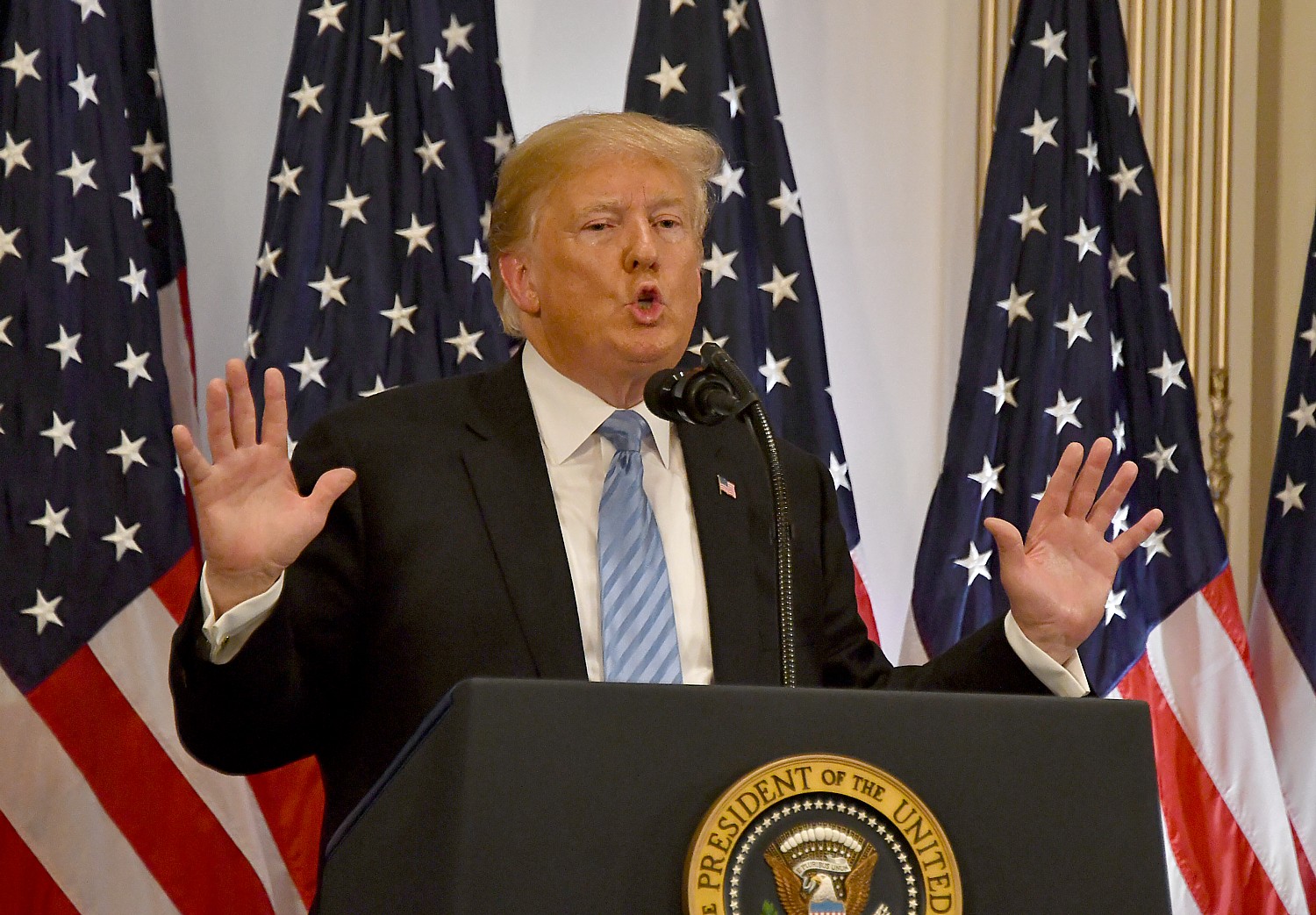
Kurds, Syria, Iran, Iraq, Turkey
Q What will be the U.S.A. relations with the Kurds —
THE PRESIDENT: Oh, I thought I just answered that.
Q — post-ISIS. Post-ISIS.
THE PRESIDENT: Okay. We’re trying to get along very well. We do get along great with the Kurds. We’re trying to help them a lot. Don’t forget, that’s their territory.
THE PRESIDENT: We have to help them. I want to help them.
Go ahead, what’s next?
Q Then, what —
THE PRESIDENT: They fought with us. They fought with us. They died with us. They died. We lost — tens of thousands of Kurds died fighting ISIS. They died for us and with us. And for themselves. They died for themselves. But they’re great people. And we have not forget — we don’t forget — I don’t forget. What happens someday later — but I can tell you that I don’t forget. These are great people.
Q About Iran, Mr. President. About Iran, one question: What is your clear plan to stop Iranian influence in Iraq, in Syria, and especially in Iraqi Kurdistan?
THE PRESIDENT: I think there’s been no greater change — other than maybe China, because China — unfortunately, their markets have dropped — would you say, 30 percent in the last four months, right? I think I watched you recently when you said that. I said, “I think she’s wrong. I think it’s actually 32. But that’s okay.” But a lot.
There’s been no — other than maybe that, but even that. Because China is a very special place. And Iran is a very special place. But I think there’s been no country that’s changed so much as Iran.
In the last six months, since I took off the horrible, horrible Iran nuclear deal, as they called it — one of the dumbest deals ever made. As an example, why didn’t they take care of Yemen in the deal? Why didn’t they take care of Syria in the deal? You know what Kerry said — the reason? “It was too complicated.”
We’re giving $150 billion, we paid $1.8 billion in cash — cash. This whole room would be filled up with hundred-dollar bills. And you’d need probably five rooms like this. But you have $1.8 billion in cash. Why didn’t we take care of Yemen? Why didn’t we take care of Syria and other? And he said, “Because it was too complicated.” Well, you just gave all your cards. You gave them $150 billion. And now Yemen’s a mess, but it’s getting better.
And Syria’s a mess. And I was responsible — and I hope it stays that way — when I put out on social media, a few weeks ago, about Idlib Province. I said, “Don’t do it.” And I’ll tell you, it happened — where I was at a meeting with a lot of supporters, and a woman stood up and she said, “There’s a province in Syria with 3 million people. Right now, the Iranians, the Russians, and the Syrians are surrounding their province. And they’re going to kill my sister. And they’re going to kill millions of people in order to get rid of 25,000 or 35,000 terrorists or enemies of theirs.” But I think we can call them terrorists.
And I said, “That’s not going to happen.” I didn’t hear of Idlib Province. And I came back to New York, and I picked up the failing New York Times — I hate to admit it was the New York Times, but it was the failing New York Times. And I opened it up — not on the front page, but there was a very big story. I said, “Wow, that’s the same story that the woman told me that I found hard to believe.” Because why would — how would anyone do that with 3 million people? And it said that they were being surrounded, and they were going in and starting — literally, the next day, they were going to drop bombs all over the place and perhaps kill millions of people in order to get 35,000 terrorists.
And I put out on social media and elsewhere — I gave Mike Pompeo, John Bolton, everybody these orders: “Don’t let it happen.” I said, “Don’t let it happen.” That doesn’t mean they can’t be selective. They can’t be — you know, go in and they’ve got to do what they’ve got to do with terrorists. I assume they’re terrorists. But don’t kill millions of people.
And it stopped. You saw that. Nobody’s going to give me credit, but that’s okay. That’s okay. Because the people the people know.
I have had more Syrians thank me for that. This was about four weeks ago, I put that out. I said, “They’re surrounding a city of 3 million people. They’re going to start bombing the city. Don’t let it happen.” And I meant it, too. I meant it. And millions of people have been saved.
And I gave, today, great credit to Iran. I don’t know if you heard that. I gave great credit to Iran, to Russia, and to Syria for not doing it.
Now I hope it’s going to be surgical — meaning go in and do — it’s lengthy and everything else. And they possibly have to do it. But I think millions of people would have been killed. And that would have been a shame.
And hopefully — and I have to tell you, Turkey has been a big help. Turkey has been great. Turkey has helped us very much with that whole situation.
Q Touching back on Iran: Of course, this week, you put out a call to action to other countries to rally with America, to put pressure on Iran. Rouhani is still calling for the U.S. to come back into the old deal. But after meeting with world leaders this week, did you make any progress towards a potential new deal?
THE PRESIDENT: Doesn’t matter what world leaders think on Iran. Iran’s going to come back to me and they’re going to make a good deal, I think. Maybe not. Deals — you never know.
But they’re suffering greatly. They’re having riots in every city, far greater than they were during the green period with President Obama. Far greater. When President Obama stuck up for government, not the people. You probably would have had a much different Iran had he not done that. But I’m sticking up for the people. I am with the people of Iran.
But here’s the thing: They have rampant inflation. Their money is worthless. Everything is going wrong. They have riots in the street. You can’t buy bread. You can’t do anything. It’s a disaster. At some point, I think they’re going to want to come back, and they’re going to say, “Hey, can we do something?”
And I’m very simple; I just don’t want them to have nuclear weapons. That’s all. Is that too much to ask? I don’t want them to have nuclear weapons.
I want them to have a great economy. I want them to sell so much oil so that the oil prices — I’m not happy with OPEC. I told them, “I’m not happy with OPEC.” We take care of all these people, we defend them. They wouldn’t be there for two weeks if it wasn’t for me, and the United States, and a much stronger armed forces than it was. Because our armed forces was depleted. We had old equipment.
Now, we have — hey, you know better than anybody — $700 billion and $716 billion. We have the most incredible new jets and everything. We need it. Not that I want to spend it, although it is jobs. It’s all made in the United States.
But Iran has to come back, and they have to talk. And I’m not doing this from strength or weakness. I’m just saying, at some point, I think they’re going to have to come back.
If you look at what’s going on, companies are leaving left and right. Mercedes Benz just left. They’re all leaving. They don’t want to be in Iran. Because they have a choice: Do they want to be with Iran, or do they want to be with us?
And we have, by — we picked up $10 trillion since my election. We were being caught by China. Now it’s going the other way. People can’t believe it. People have never seen this situation with China. Everything’s always been — for 20 years, “Oh, China is so great. China is so great.” You don’t hear that so much anymore. I love China; I think they’re great. But you don’t hear that so much anymore. You know who’s great now? We’re great now.

Okay, how about just a couple more. Now, I could be doing — I could be doing this all day long. I could be doing this all day long. Should we continue for a little while? It doesn’t matter to me. A couple of more. I don’t care.
New York Times, come on. New York Times. The failing New York Times. Stand up. Go ahead.
Q You’re talking about me, but (inaudible).
THE PRESIDENT: No, I’m talking about the Times is failing. You are far from failing. Go ahead.
Q Okay, but you’re not — you were pointing to me, so you meant me. But I —
THE PRESIDENT: The Times are very interesting, though. The Times, I think they’re going to endorse me. (Laughter.) I think that ABC — I think — well, Fox — I like Fox. I really do.
Q Just to be sure —
THE PRESIDENT: But I think ABC, CBS, NBC, the Times, the — they’re all going to endorse me, because if they don’t, they’re going out of business. Can you imagine if you didn’t have me?
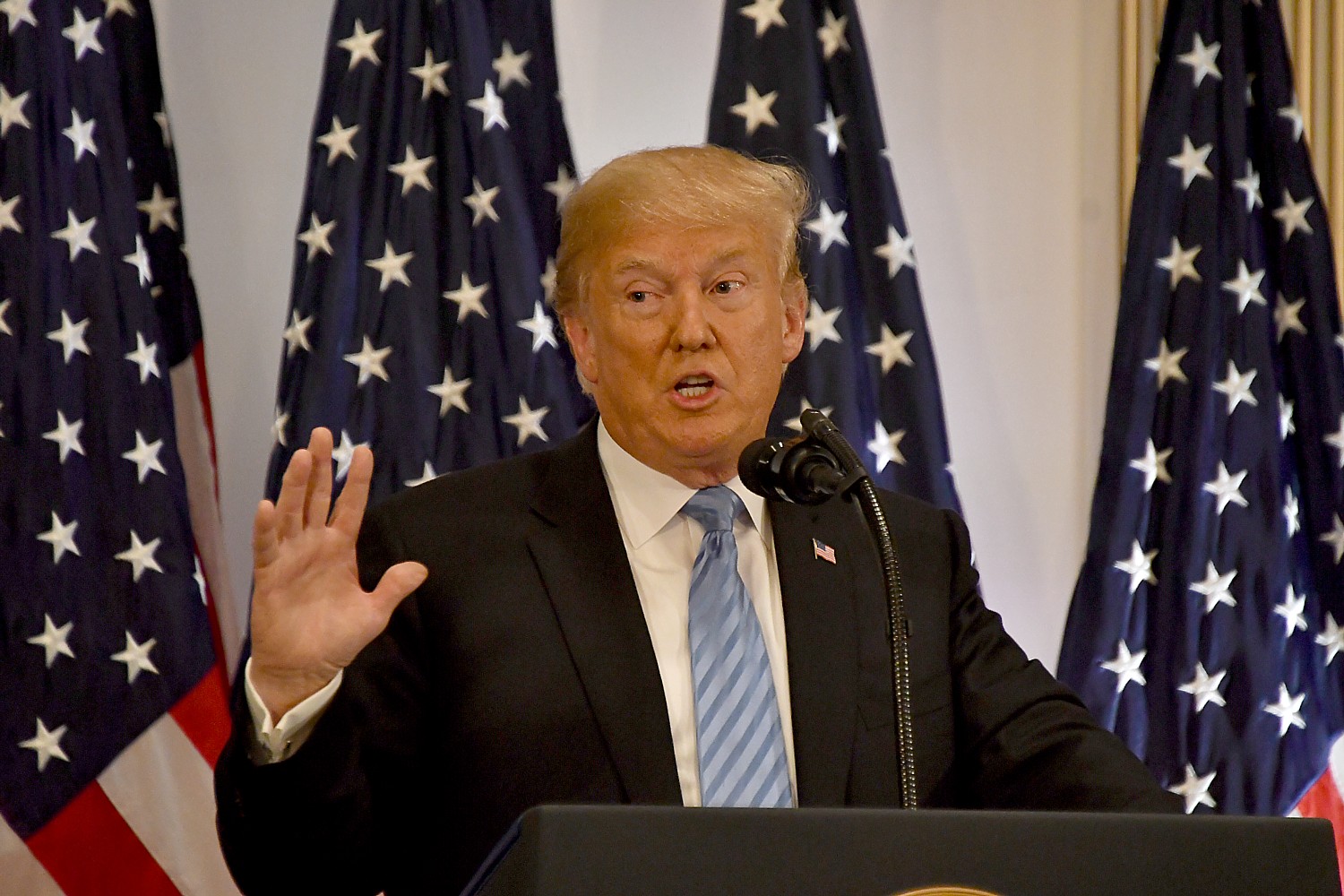
Laughter in General Assembly? Fake News
Q Yesterday, you were talking about your administration’s accomplishments at the United Nations, and a lot of the leaders laughed. Why do you think they were laughing?
THE PRESIDENT: Well, that’s fake news.
Q And what was that experience like for you?
THE PRESIDENT: Yeah. It was fake news. And it was covered that way. Okay. So, I said that, since my election, our economy has become the hottest in the world. Tax reductions, regulations, confidence levels are the highest in 18 years — really, soon to be historic. Unemployment is the lowest in the history of our country. You look at Black unemployment. You look at Asian unemployment. You look at women — 65 years. The unemployment numbers are among the best we’ve ever had ever. The numbers of new companies pouring into our country, which nobody thought was possible.
And I said this. And I was in front of a large group of highly professional people, most of whom are from either other countries or the United Nations — people that aren’t big into clapping, applauding, smiling. And I heard a little rustle, as I said our country is now stronger than ever before. It’s true. I mean, it is true. And I heard a little rustle. And I said, “It’s true.” And I heard smiles. And I said, “Oh, I didn’t know there there’d be that kind…” They weren’t laughing at me. They were laughing with me. We had fun. That was not laughing at me.
So the fake news said, “People laughed at President Trump.” They didn’t laugh at me. People had a good time with me. We were doing it together. We had a good time. They respect what I’ve done.
The United States is respected again. The United States was not respected. Everybody was taking advantage of us. From jobs, and taking our companies, and not paying the price — to so many other things, even military protection.
I told a number of countries over the last few days, I said, “Listen, you’re a very rich country. We protect you. Without our protection, you would have real problems. You would have real problems.”
THE PRESIDENT: I said, “You should reimburse us for this protection. Why are we protecting you?” And do you want to know what they said after about two minutes of talking? They agreed with me. And you can ask this group of very talented people — they agreed with me.
But they said — one of them said, “But Mr. President, nobody ever asked us for that. They never asked us for that.” Nobody has ever said, “You should pay.” These are really wealthy countries.
I mean, I’ll be honest, I just asked Japan. I said, “We’re defending you. You’re a very wealthy country. You’re sending us millions of cars. You’re making a fortune. We have a tremendous trade deficit with you. And we’re defending you, and we’re subsidizing your military with a massive amount of money.”
I said it to South Korea. We have 32,000 soldiers in South Korea. They’re a very wealthy — these are great countries. These are very wealthy countries. I said, “Why aren’t you reimbursing us for our costs?”
And you know what? They look at me, and they can’t even answer it, because there’s no answer. If they’re a poor country and they needed protection, and people were going to die, I’m all for protecting them; I don’t want 10 cents. But when wealthy countries that have massive trade surpluses with us — massive — and then on top of that, we’re paying for their military? Or we’re paying for a lot of their military? That doesn’t work.
Kinship with Kavanaugh?
Q Mr. President, you said you feel a kinship — you said you feel a kinship with Brett Kavanaugh and you — Mr. President, really quickly, you said you felt a kinship with Brett Kavanaugh. You said that you also — your false allegations that you feel like were made against you make you feel like you don’t want to believe these women. What message do you think that –
THE PRESIDENT: No, I didn’t say that. Why do you say that?
Q So, please explain —
THE PRESIDENT: Fake news.
Q Please explain —
THE PRESIDENT: Why — did I say that?
Q Well, can you please explain then what you’re talking about in your own false allegations?
THE PRESIDENT: I said, exactly, “I look forward to watching her.” I do want to hear what she says. And maybe she’ll say — I could be convinced of anything. Maybe, if she’ll say something — but in the meantime, I have to tell you, he’s one of the highest quality human beings.
He’s a tremendous man. He’s a tremendous genius. He’s a great intellect. He was, I believe, number one at Yale. Is that a correct statement? Number one in his class at Yale.
Q So you don’t feel a kinship with him?
THE PRESIDENT: He was a great student in law. He was — you know, I’ve heard his name. I didn’t know him. Didn’t know him. Until this whole thing, I didn’t know him. But I heard his name for 10 years.
And you know how I heard his name? Everybody was saying he should be on the Supreme Court. I said, “Who is he?” “His name is Brett Kavanaugh. And he should be — he’s the most brilliant person. He’s the most brilliant lawyer.” They were talking about him on the Supreme Court 10 years ago. With all of that, I want to hear what she has to say. Okay?
Q But you said that you don’t feel — but you said that you feel like there have been numerous false allegations against you, and that because of that–
THE PRESIDENT: Oh, I’ve had many false —
Q — you feel that you understand what he might be going through.
THE PRESIDENT: I’ve had many false statements against me. And if the press would have reported it, I would have been very happy. I think John Roberts would tell you that — you covered the story where the women were paid to say bad things about me. Sean Hannity covered it.
I will tell you, when I saw that on Sean Hannity, I actually called him. Believe it or not, I don’t speak to him very much, but I respect him. I called him. I said, “This is the biggest story. This is a big, big story.” He agreed with me. The next day, I picked up the papers. There wasn’t one word about it. The next day, I watched ABC news. John, I watched NBC. I watched CBS. I didn’t watch CNN, but, next time, I’m going to. (Laughter.)
THE PRESIDENT: I watched everything. There wasn’t one story other than Fox. And it’s a big story. It’s a shame. Okay. Enough. Thank you, though.
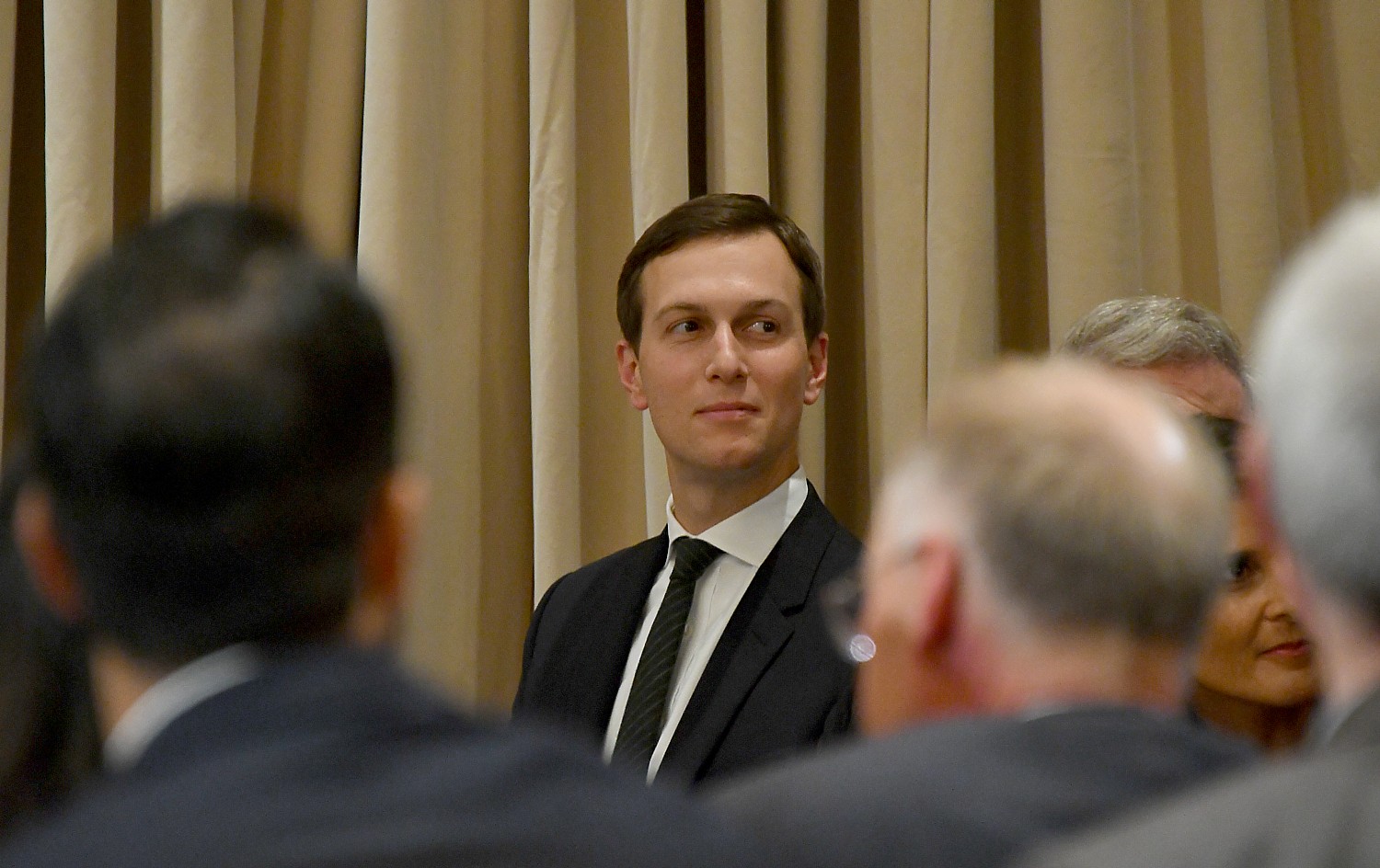
Israel & Two-State Solution: US Embassy in Jerusalem a Bargain
Q Today, you met with Bibi Netanyahu, from Israel. And you brought up, actually, that you support a two-state solution for the Palestinian-Israeli crisis there.
THE PRESIDENT: I do.
Q Can you give us any more preview of what this great deal, the peace deal (inaudible) —
THE PRESIDENT: Well, I’d love to be able to make a deal with the Israelis and the Palestinians. You know, my whole life, I was told that’s the toughest deal. And I disagree. I think healthcare is probably tougher, okay? You want to know the truth. But it is tough. But we’re going to take care of that, too. And that’s going to get taken care of. We’ve already taken care of a lot of it.
But the whole — my life, I’ve always heard the deal between, as you know, Israel and the Palestinians, that’s like the toughest deal. Every possible thing is tough about that. I think we’re going to make a deal. I think we’re going to make a deal.
So, at one of our many meetings today, I was with Bibi Netanyahu, a man who I have a lot of respect for. A man who has been extremely nice to me — very happy that I did the whole thing with Jerusalem and the embassy, which, by the way, we’re going to open in four months for less than $500,000. And the budget was over $1 billion, right?
Q Yes. That’s correct.
THE PRESIDENT: So we saved, let’s say, a billion dollars. That’s not so bad. And it’s open. And it’s beautiful, by the way. Jerusalem stone, one of my favorite stones.
I will tell you, the question — somebody said today, “Well, this is the first news conference in a long time.” I said, “What do you mean? I did like, five today.” Every time I sit, I take a lot of questions from people that are screaming like maniacs in the back of the room — meaning, reporters.
And one of the reporters — I won’t say that it was John Roberts that said that, I refuse. But one of the — it was, but that’s okay. Don’t feel guilty, John. But of the reporters that was screaming asked about the one-state, two-state. And I said, “I think the two-state will happen. I think it’s, in one way, more difficult because it’s a real estate deal — because you need metes and bounds, and you need lots of carve-outs and lots of everything. It’s actually a little tougher deal. But in another way, it works better because you have people governing themselves.
So, they asked be about that. I said, “Well, I think the two-state will happen. I think we’re going to go down the two-state road.” And I’m glad I got it out. And Jared, who is so involved — he loves Israel. He loves Israel. But he’s also going to be very fair with the Palestinians. He understands it takes two people to be happy — two groups of people to be happy. Everybody has got to be happy. And that’s why it’s so tough, because there’s been so much hatred and anger for so many years. That’s what, probably, the number-one ingredient of toughness is. But they asked me — I said I think it’s going to be a two-state.
And you know what I did today? By saying that, I put it out there. And if you ask most of the people in Israel, they agree with that. But nobody wanted to say it. It’s a big thing to put it out. It’s a very big thing to put it out.
Now, the bottom line: If the Israelis and the Palestinians want one state, that’s okay with me. If they want two states, that’s okay with me. I’m happy if they’re happy. I’m a facilitator. I want to see if I can get a deal done so that people don’t get killed anymore.
When we had — in Saudi Arabia, we had one of the great conferences in history. Many of you were there; probably all of you were there. It was one of the most beautiful two days. That, and China — two of the most incredible events I’ve ever seen. I’ve never seen anything like it.
And we had, I believe, 58 Muslim countries — the leaders. The kings, the emirs, the absolute leaders from every — there was nobody in second place. They were the leaders of the whole thing.
And unbeknownst to anybody else, people would come up to me, individually — it wasn’t a setup. They’d come up to me and say, “Sir, you can’t have peace in the Middle East without peace between the Israelis and the Palestinians.” I said, “Why? What difference? Why does that matter so much?” They said, “It just is impossible to make peace in the Middle East unless you have between the Israelis…”
So, I heard that from one — the King of Saudi Arabia, who is a great guy — King Salman. And then, somebody else came up. And he wasn’t told, “Oh, go up and say it.” I know where they’re coming from. And I must have had 12 leaders say it. And they just said it.
And I started to realize that peace between Israel and the Palestinians, for the Middle East, is a very important thing. And we’re trying very hard to get it. I think, probably, two-state is more likely. But you know what? If they do a single, if they do a double, I’m okay with it if they’re both happy. If they’re both happy, I’m okay with either. I think the two-state is more likely.
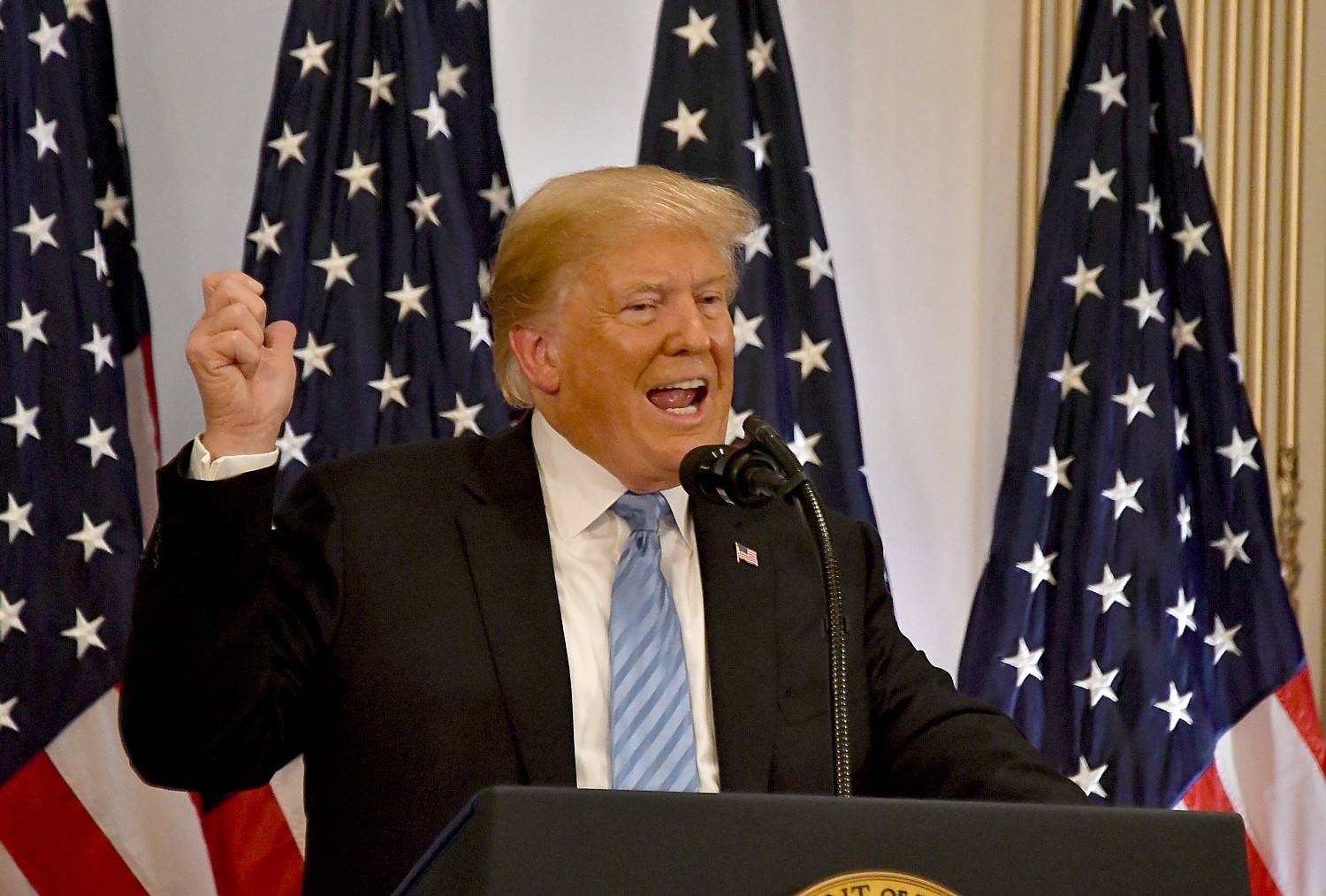
Okay, how about one — go ahead.
Q New York Times? New York Times?
THE PRESIDENT: Oh, okay.
Q Thank you, sir.
THE PRESIDENT: I would have gotten bad story in the New York Times. But I will anyways, so I guess it doesn’t matter.
Q We’re — we’re kind of, uh —
THE PRESIDENT: Okay, we’ll do you after that.
Q We’re kind of, uh —
THE PRESIDENT: And then we’ll call it quits.
Q We’re kind of thriving, not failing these days.
THE PRESIDENT: You’re doing very well.
Q Yeah.
THE PRESIDENT: Say, “Thank you, Mr. Trump.” (Laughter.)
Q (Laughs). I think I’ll stop short of that. (Laughter.)
THE PRESIDENT: I wonder how you do — you know, all my life, I’ve had very few stories — but I’ve had some on the front page of the New York Times. Now, I think I think I average about three or four a day, right?
THE PRESIDENT: And, of the three or four, they’re all negative. No matter what I do, they’re negative. But you know what? That’s okay. I still love the paper.
Go ahead. (Laughter.)
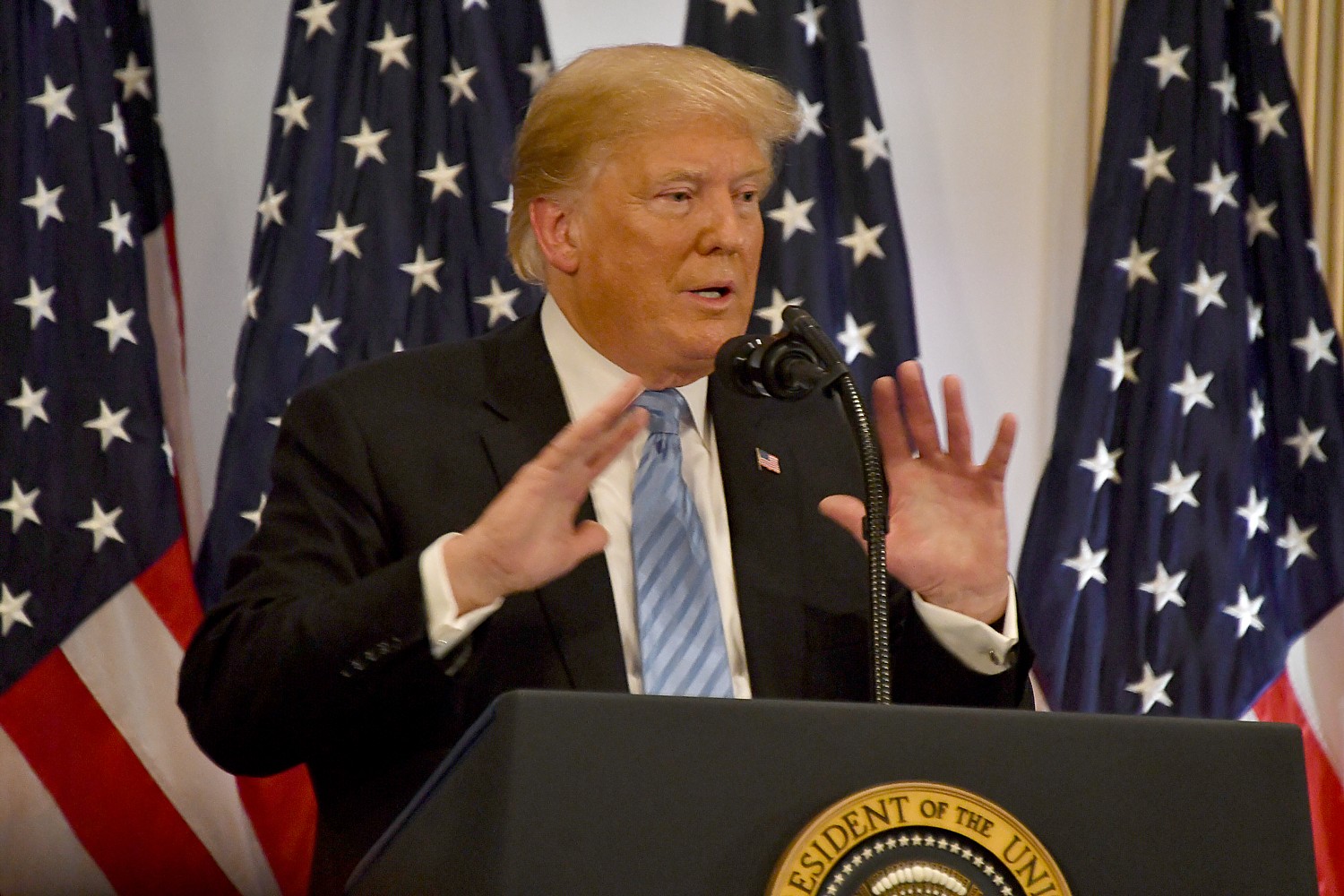
China Trade War
Q I wanted to come back to China, because I think what you announced today was really important.
THE PRESIDENT: I agree.
Q You talk about this friendship you have with Xi Jinping, and yet, essentially, what you did today is accused his government —
THE PRESIDENT: That’s right.
Q — of interfering in our internal affairs —
THE PRESIDENT: That’s right.
Q — subverting our Democratic process, and doing it to hurt you, the Republican Party —
THE PRESIDENT: Doing it to help them.
Q — and your backers.
THE PRESIDENT: You know what? Yeah. Doing it to help them.
Q So how can a guy who does that be your friend?
THE PRESIDENT: I think that we are able to — and maybe he’s not anymore. I’ll be honest with you, I think we had a very good friendship. I think we had a very good relationship; we understand each other. They are doing studies on Donald Trump. They’re trying to figure it all out because this has never happened to them before. It’s never happened.
Think of it, you’ve never seen — you’ve covered very well — you’ve never seen this happen. They’re having big problems. I don’t want them to have problems, but they got to make a fair deal. Just like Canada has got to make a fair deal.
I believe that he and I have a very good chemistry together. And I can tell you that about many leaders. I can also tell you a few where I don’t feel I’ll ever have a chemistry with them. I don’t want to have a chemistry with them. And for those people, I’ll have Pompeo, Nikki, Bolton, Jared. I can go — our general; I’ll have our general. Or if they can’t do it, I’ll have Sarah Huckabee do it. Right?
But for the most part, I have very good — very good with Prime Minister Abe. Very good with President Moon.
By the way, what President Moon said last night — I know you won’t report it — but Bret Baier interviewed him last night and he asked him about me. I can’t say — because you would say I’m too braggadocios — but what he said about me last night was an unbelievable thing. “Couldn’t have happened without President Trump, and it never would happen without President Trump. And nobody else could do it.” You know, I mean, you’ll take a look.
But I will tell you, China is very special. Very special. They’re incredible people. It’s an incredible country. What they’ve done is unbelievable.
Q How would —
THE PRESIDENT: And it all started with the WTO. It was a defective deal. And it all started — without the WTO, China is not China as we know it today.
And then it started also by — our people that are standing right in this position, that are in the Oval Office — another way of saying it — allowed them to get away with murder. Allowed a lot of countries to get away with murder.
I think we still probably have a very good relationship. But you know what? In honor of you, I will, tomorrow, make a call to him. Say, “Hey, how you doing?” Okay?
Q Can I — can I just ask —
THE PRESIDENT: “You don’t mind paying billions of dollars a month in tariffs.”
Q I just had two small follow-ups. One is, how would you compare the level of interference you see today from the Chinese to what Russia did in 2016?
THE PRESIDENT: Well, I think it’s different. If you look at the Des Moines Register, I mean, they have ads that are made to look like editorials. Saying about, “Oh, you got to stop Trump. You got to stop him. You got to vote against him.” My farmers are so incredible. These are patriots.
You know, on a network that doesn’t like me very much — which is most of them — but a network that didn’t — doesn’t really treat me very good, they interviewed farmers. And they got hurt because, you know, all of a sudden China stops buying.
By the way, they’ve started buying again. I don’t know if you’ve noticed. And soybeans are going up, and things are going up. And we’ve had very little hurt from what I’ve done. In fact, the markets have gone up. And the farmers are going to do great.
But, ultimately — but they had farmers, and these guys are amazing; I love them. And they voted for me and they love me. And they said, “We don’t care if we get hurt. He’s doing the right thing.” And, you know, a lot of people — it’s a complex game. A lot of people don’t know exactly what it is. They don’t know how to define “tariff.” They don’t know it is really different than a tax, although it’s getting close.
But they know that for the first time in many, many years, they have a President that’s fighting for them; that’s not letting their jobs be taken to other countries; that’s not allowing the kind of abuse that we — I mean, when you look at what happened, as an example, with NAFTA. And for years — because it was never changed — NAFTA was defective deal the day it was signed.
You know why? Because they had a VAT tax of 17 percent and nobody from this country knew that. And by the time they found out, which was about a week later, nobody went and changed it. So you went many years and they never changed it. There was a VAT tax that Mexico got. So we were 17 or 16 points behind, before we even started. NAFTA was a horrible thing.
So the farmers and — by the way, the steel workers — you know, I stopped the dumping. The dumping was horrible. And now if they want to dump, that’s okay, but they’ve got to pay the United States of America 25 percent on everything they dump. That’s okay. But as I told you before, steel is doing phenomenally well.
But the farmers say, “This man is fighting for us. No President has ever fought for us before.” And you really have to study what’s happened over the 15 years with the farm. The farmers have been decimated over a 15-year period. They’ve been decimated. The farmers are going to come out great. These are great people. They’re great, great patriots.

What Message Kavanaugh Hearings Sending Young Men?
Q You were asked earlier in the news conference by my friend from Sky News about the message that you are sending to the women of the country. What about the message that you may be sending to young men? You’re a father. What does this moment that we’re in — the cultural moment —
THE PRESIDENT: It’s a very big cultural moment.
Q Right. So what messages do you for young men of America?
THE PRESIDENT: It’s a very big — it’s also — you’re right. I think it’s a great question.
This is a very big moment for our country because you have a man who is very outstanding, but he’s got very strong charges against him — probably charges that nobody is going to be able be — to prove.
So I could have you chosen for a position. I could have you, or you, or you — anybody. And somebody could say things. And it’s happened to me many times, where false statements are made. And honestly, nobody knows who to believe.
I could pick another Supreme Court judge — Justice. I could pick another one. Another one. Another one. This could go on forever. Somebody could come and say, “Thirty years ago, twenty-five years ago, ten years ago, five years ago, he did a horrible thing to me. He did this. He did that. He did that.”
And honestly, it’s a very dangerous period in our country. And it’s being perpetrated by some very evil people. Some of them are Democrats, I must say. Because some of them know that this is just a game that they’re playing. It’s a con game. It’s at the highest level. We’re talking about the United States Supreme Court.
This can go on forever. I can pick five other people. At a certain point, the people are going to say, “No, thank you.” This is the most coveted job, probably, in the world.
And you know what? I would honestly say — because I interviewed great people for this job. He’s great, but I interviewed other great people for this job. I could conceivably imagine going to one of them and saying, “It’s too bad what happened to this wonderful man, but I’m going to choose you, number two. I want you to go.” And I could conceivably be turned down by somebody that desperately wanted this job two months ago.
THE PRESIDENT: So this is — this is — and this is beyond Supreme Court.
THE PRESIDENT: There’s nothing beyond Supreme Court; this is beyond Supreme Court. This has everything to do with our country.
When you are guilty until proven innocent, it’s just not supposed to be that way. Always I heard, “You’re innocent until proven guilty.” I’ve heard this for so long, and it’s such a beautiful phrase. In this case, you’re guilty until proven innocent. I think that is a very, very dangerous standard for our country.
With that being said, I look forward to what she has to say. I also look very forward to what Judge Kavanaugh has to say. I think it’s going to be a very, very important day in the history of our country.
END 6:19 P.M. EDT
____________________________
© 2018 News & Photo Features Syndicate, a division of Workstyles, Inc. All rights reserved. For editorial feature and photo information, go to www.news-photos-features.com, email [email protected]. Blogging at www.dailykos.com/blogs/NewsPhotosFeatures. ‘Like’ us on facebook.com/NewsPhotoFeatures, Tweet @KarenBRubin

